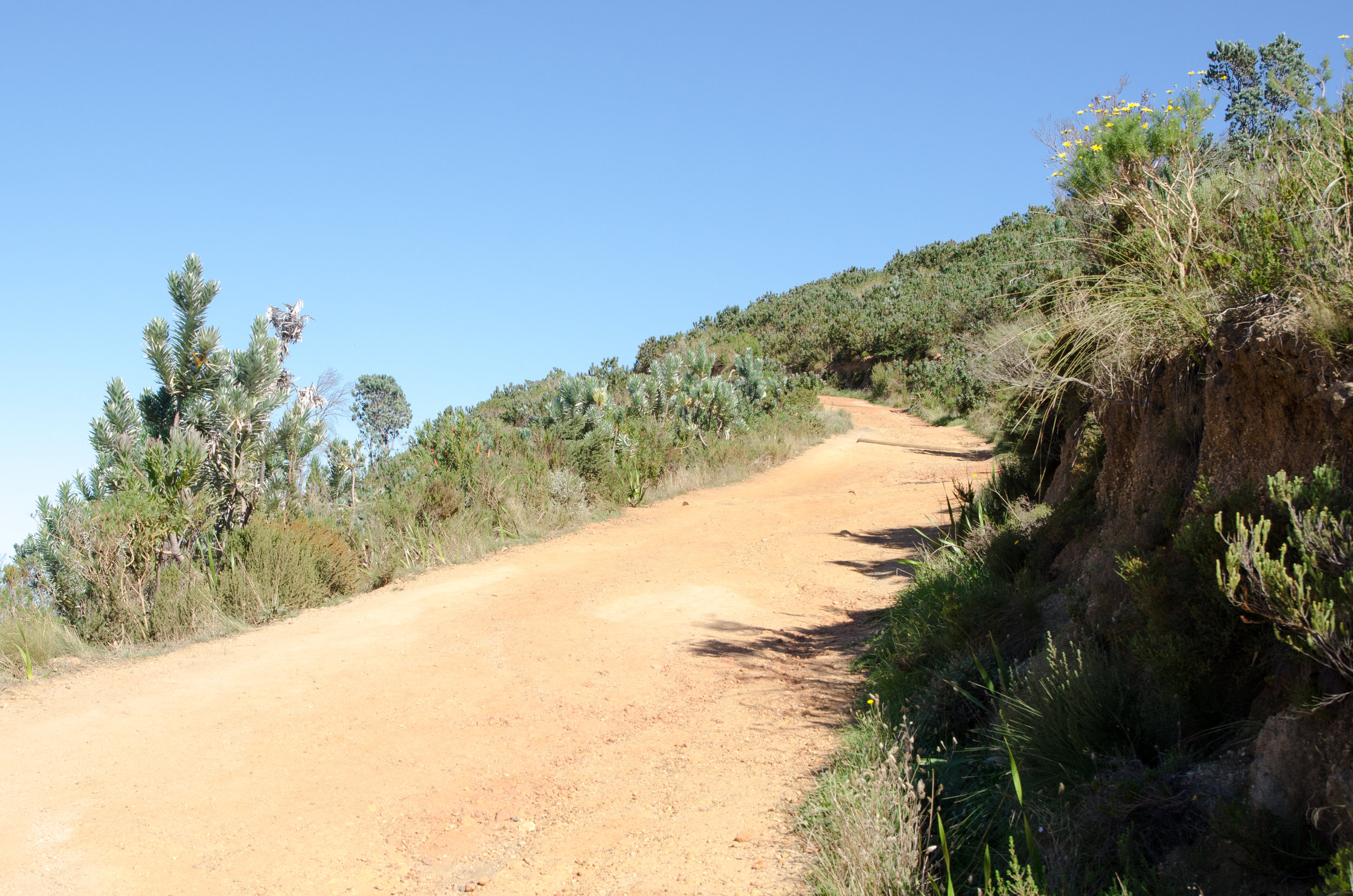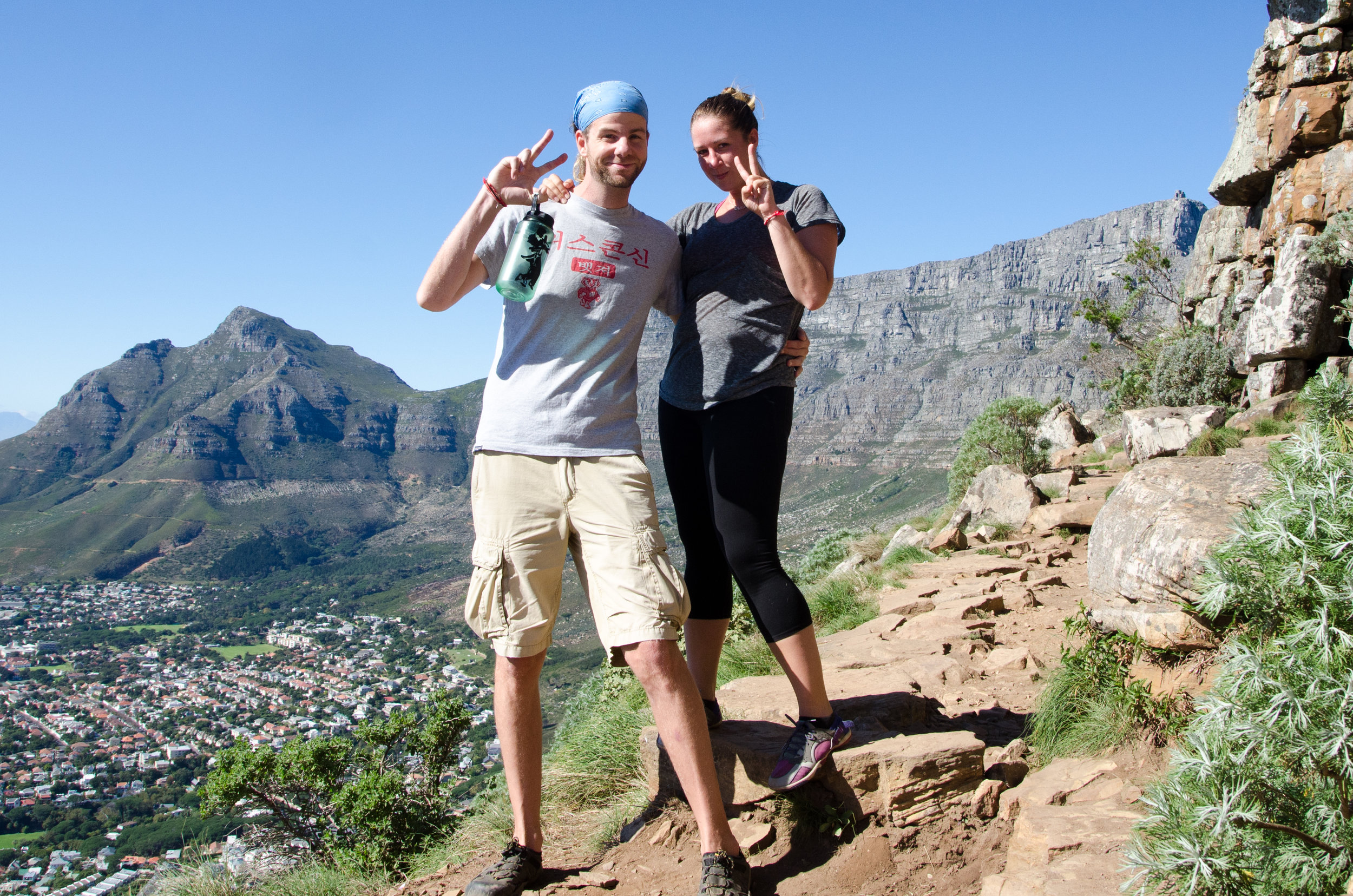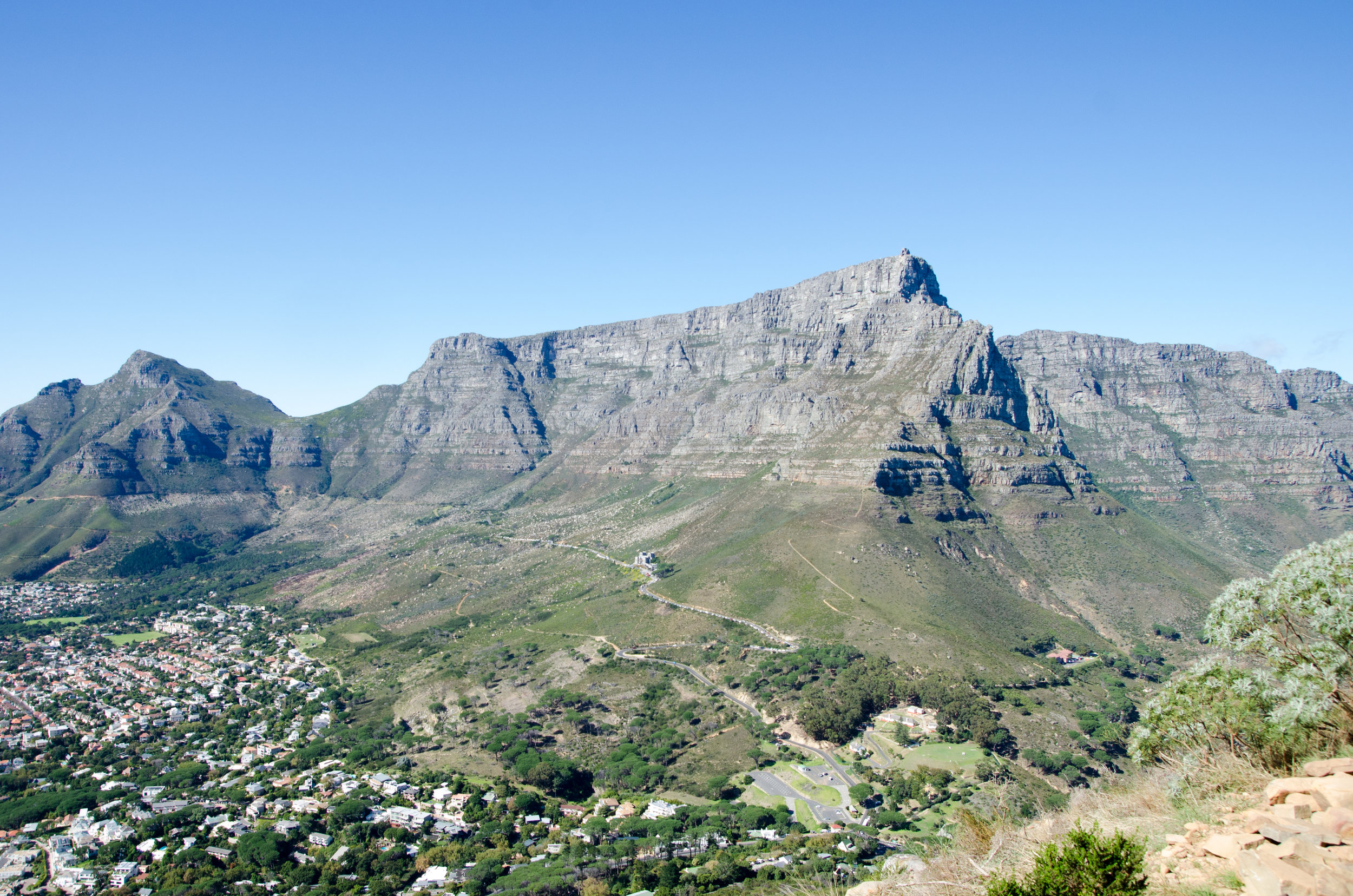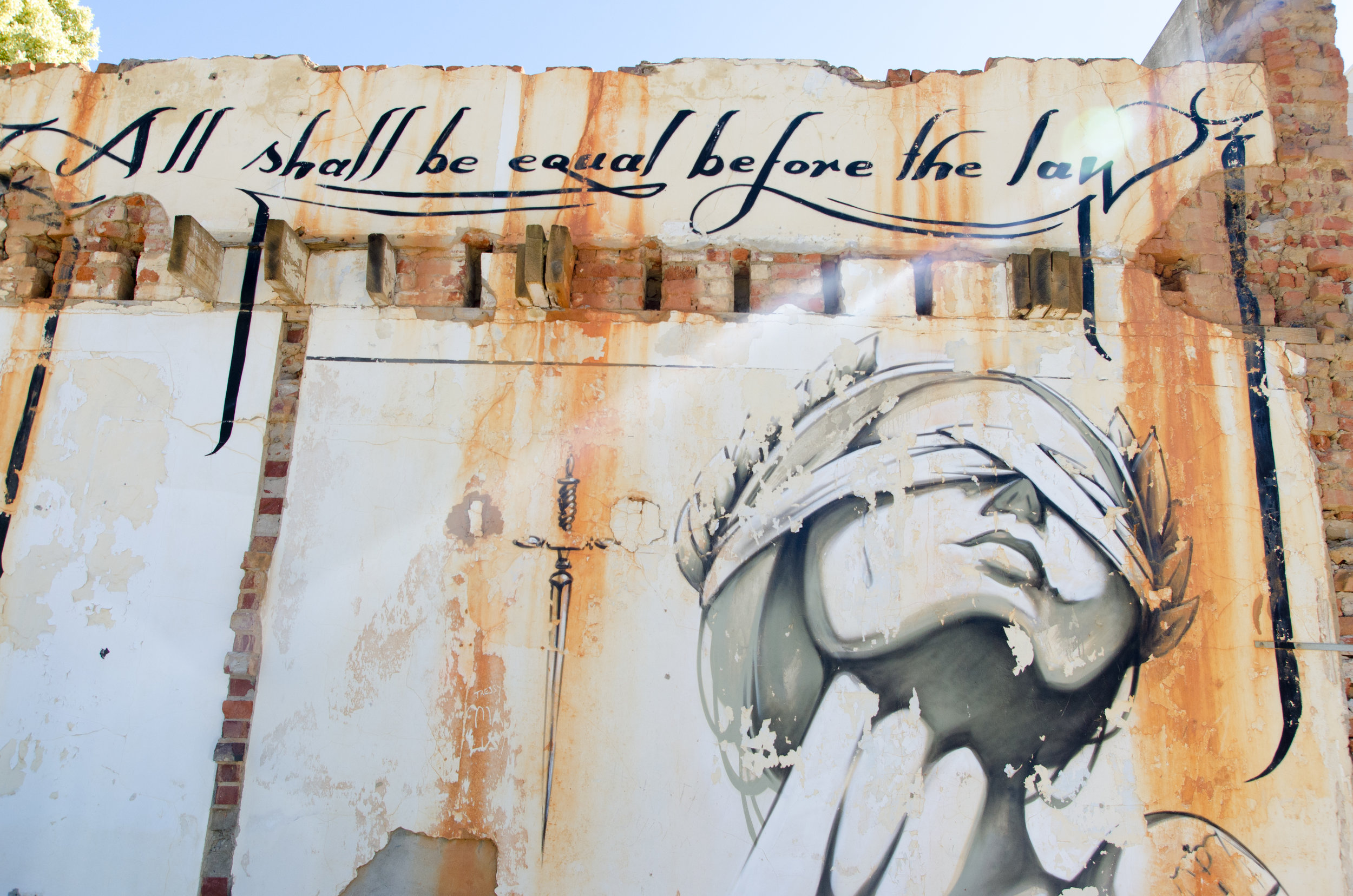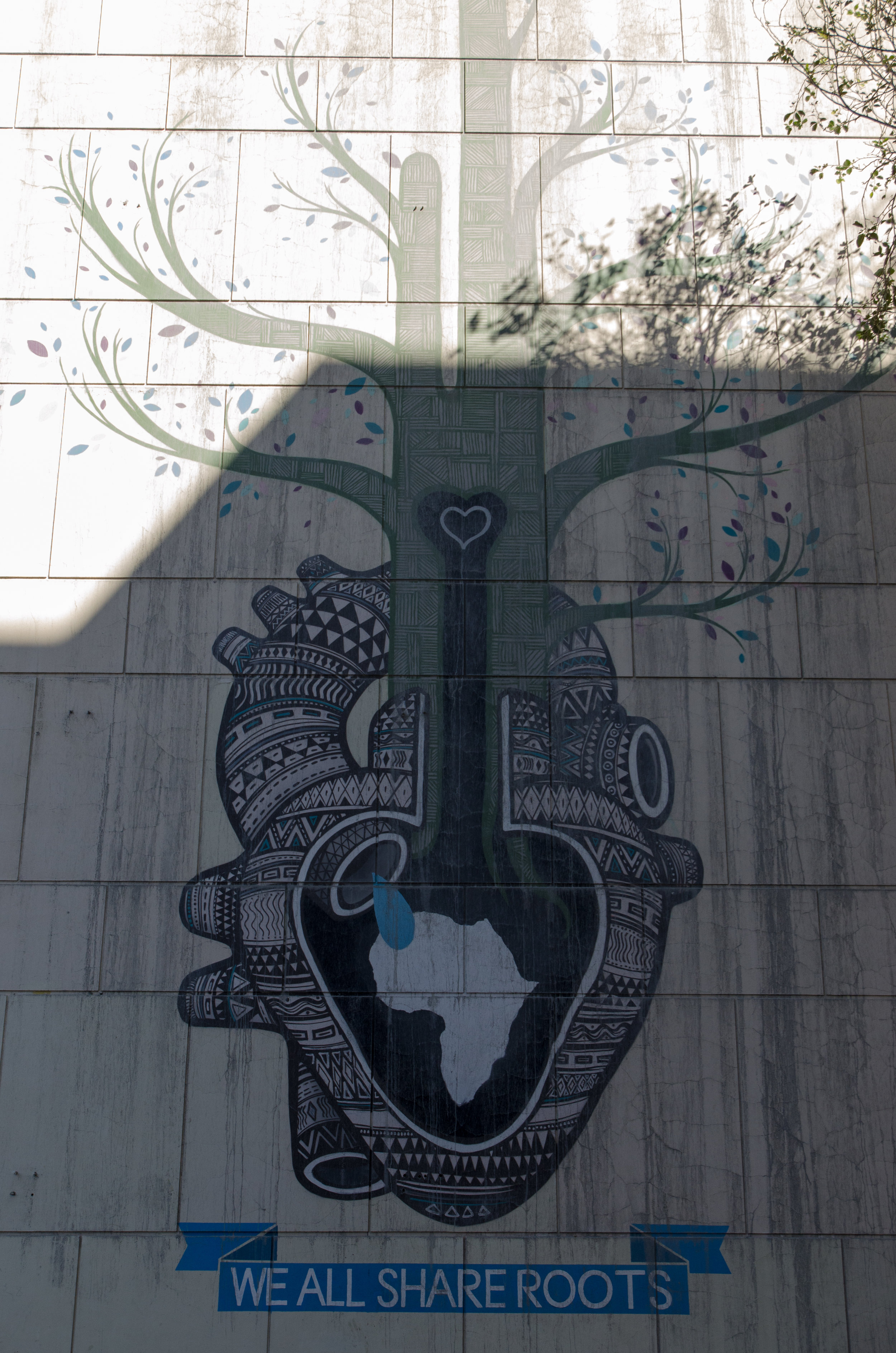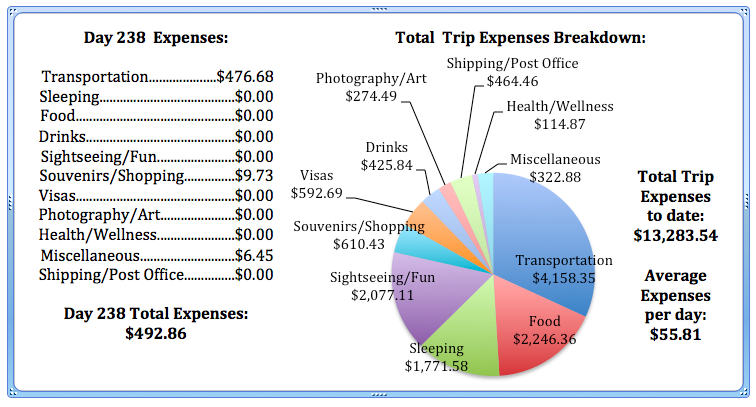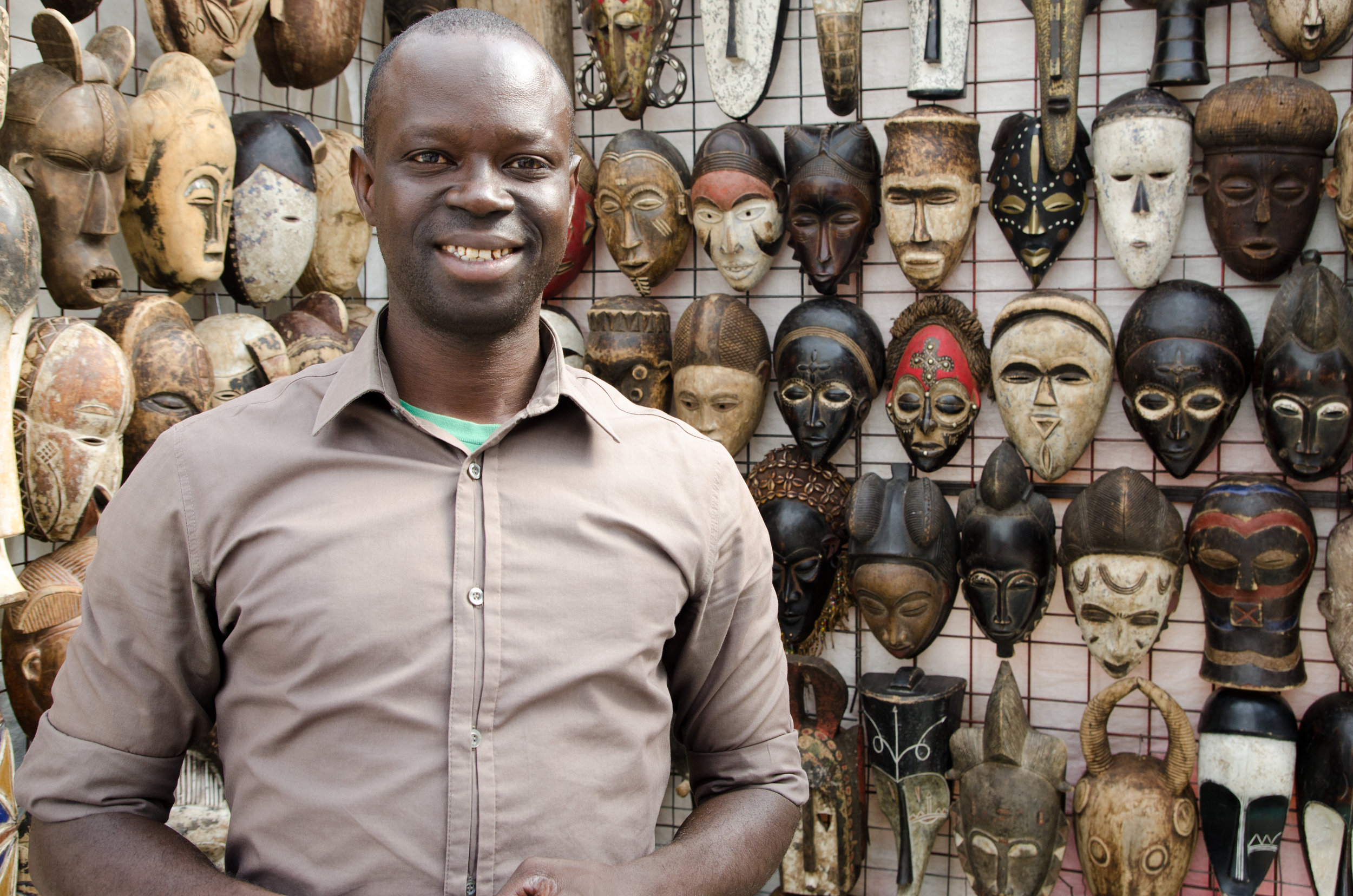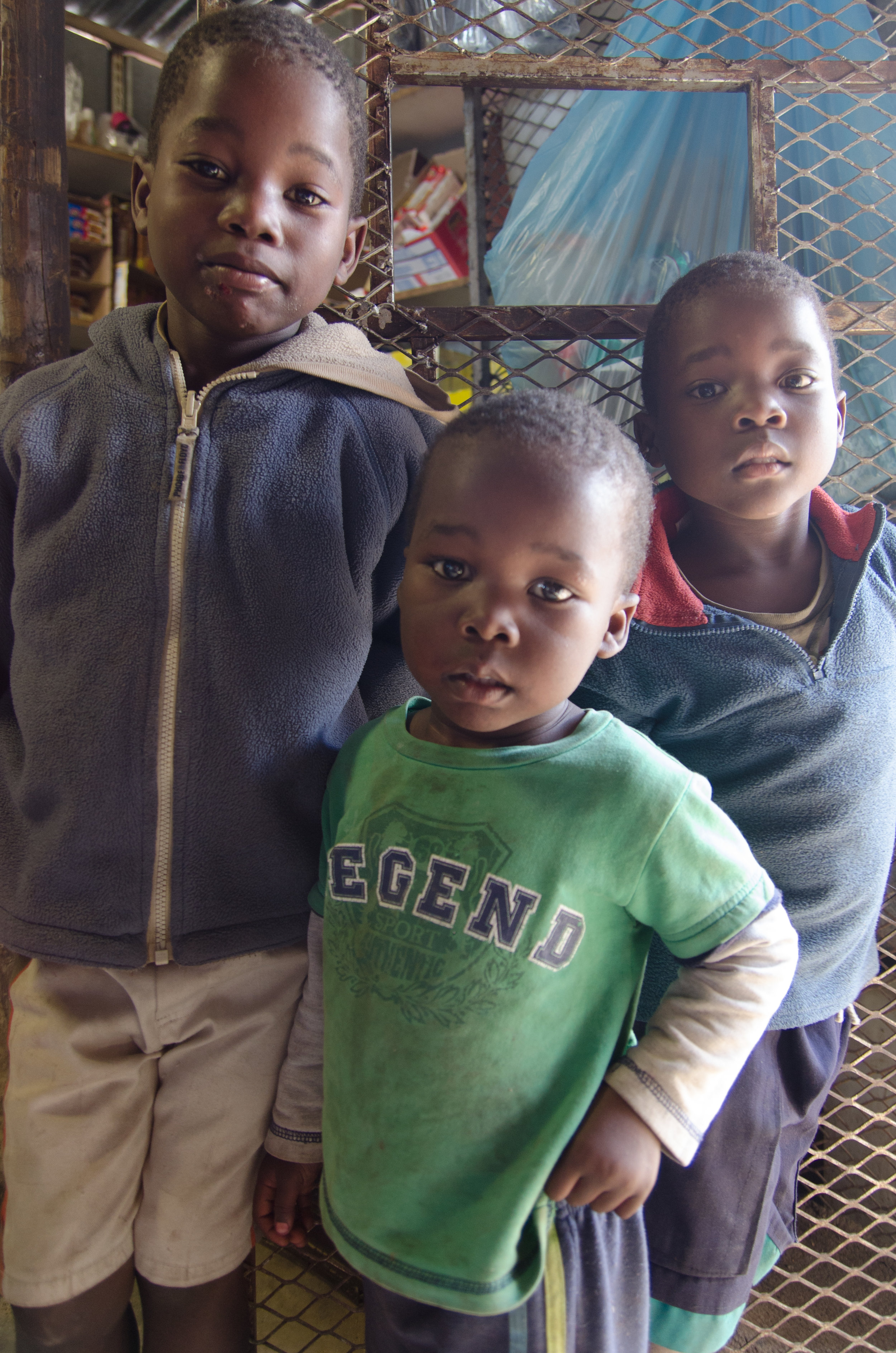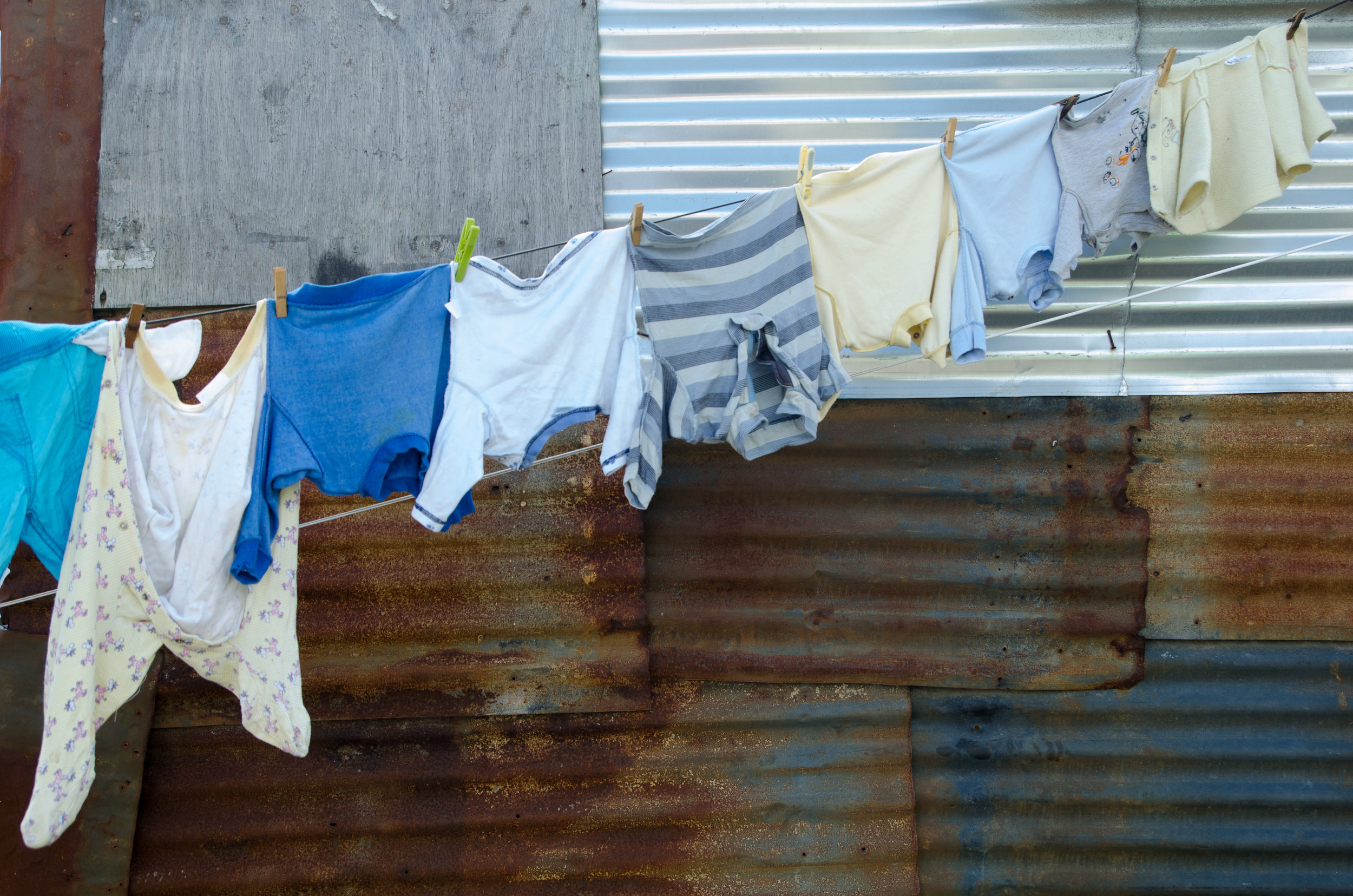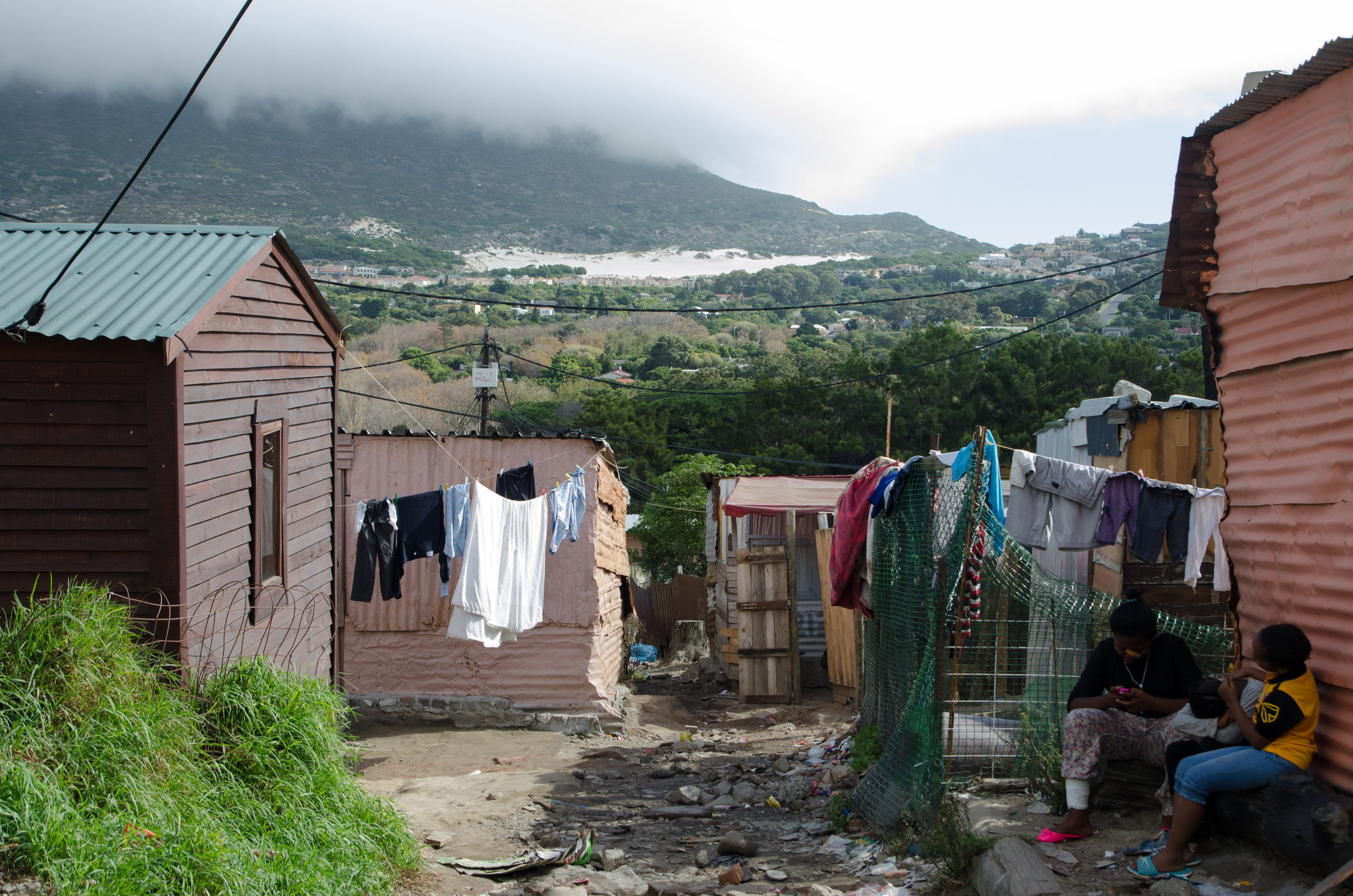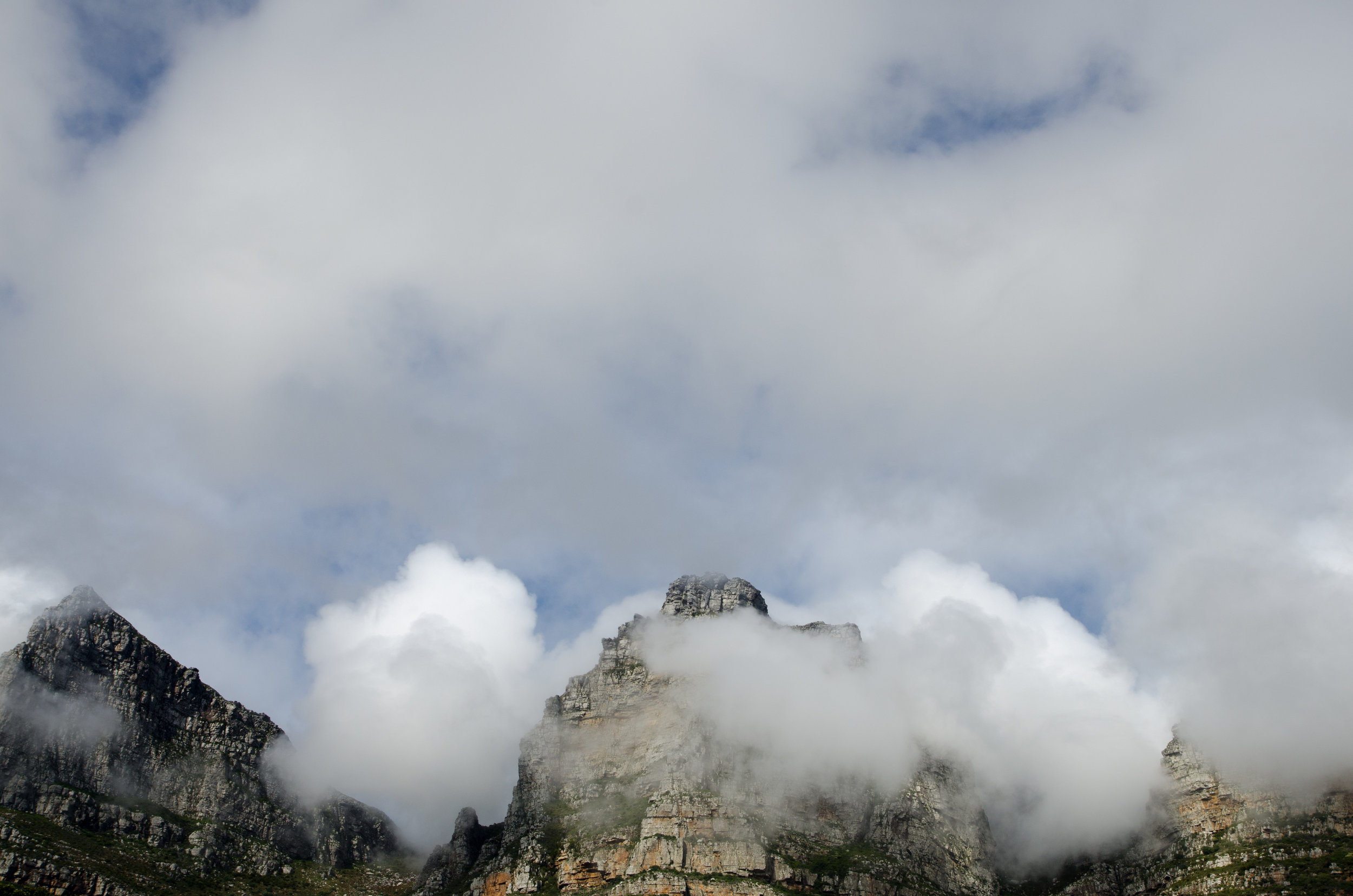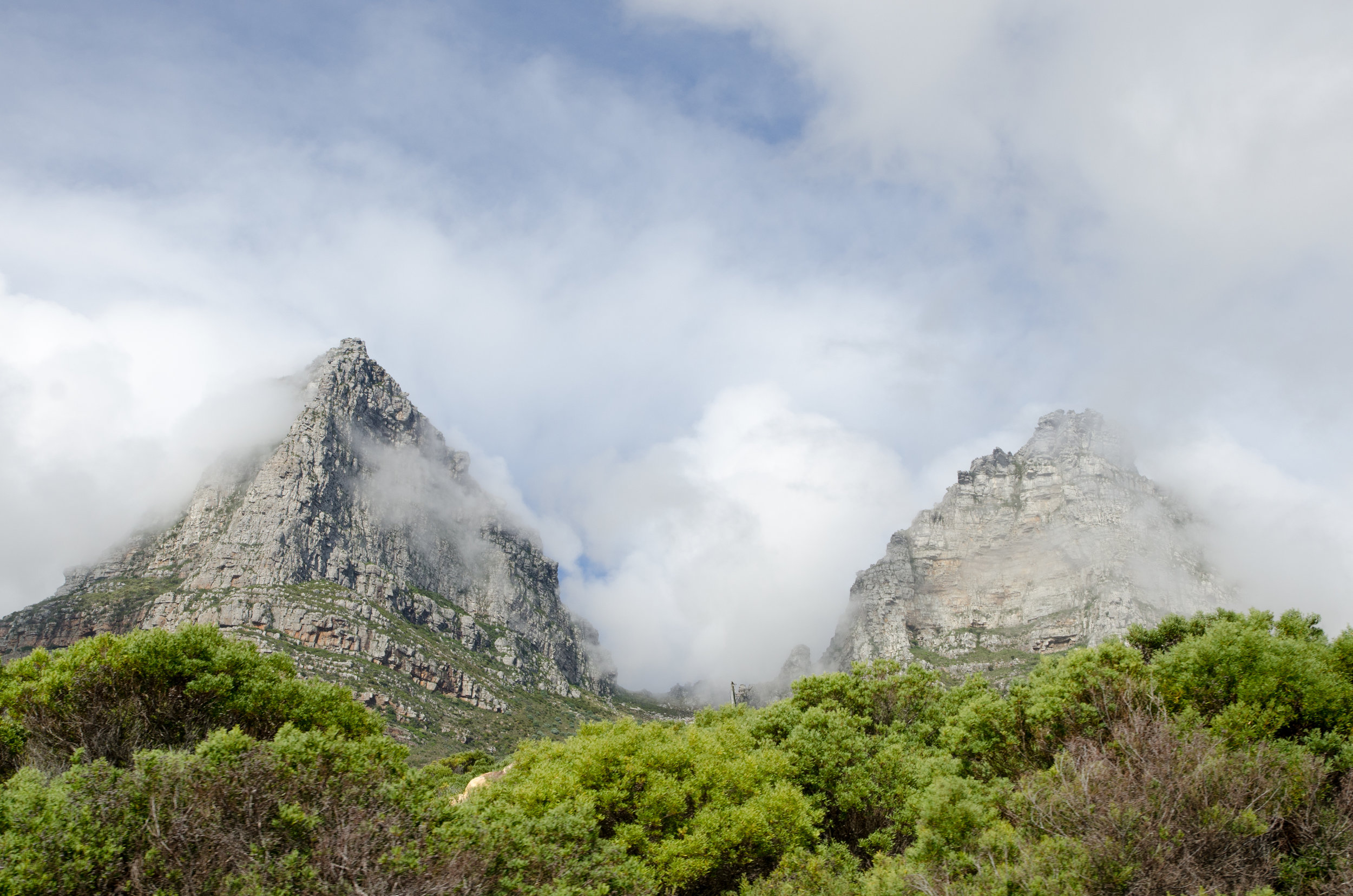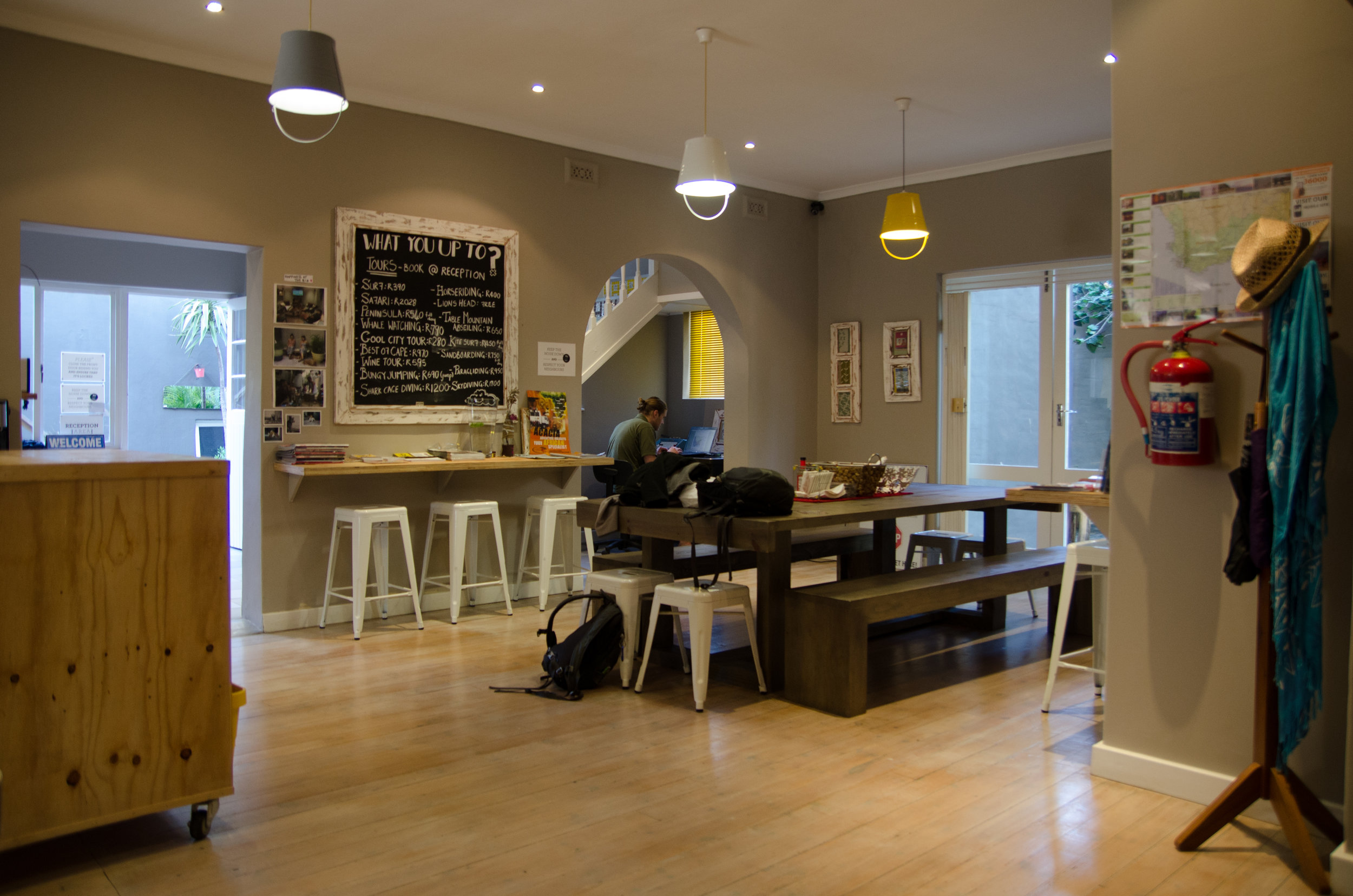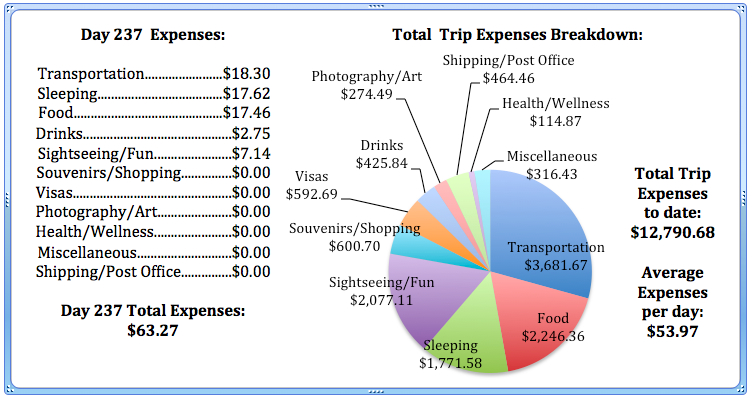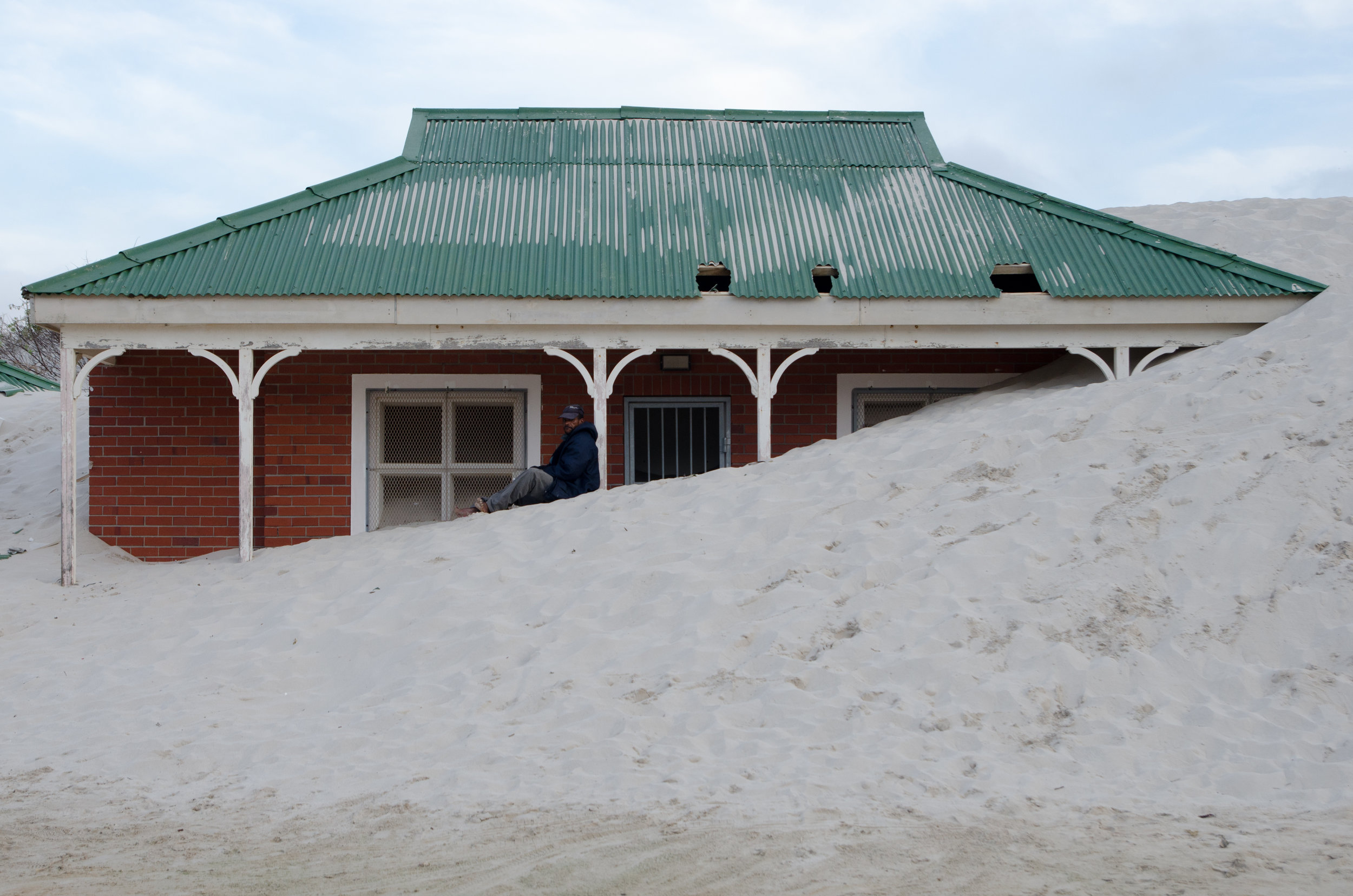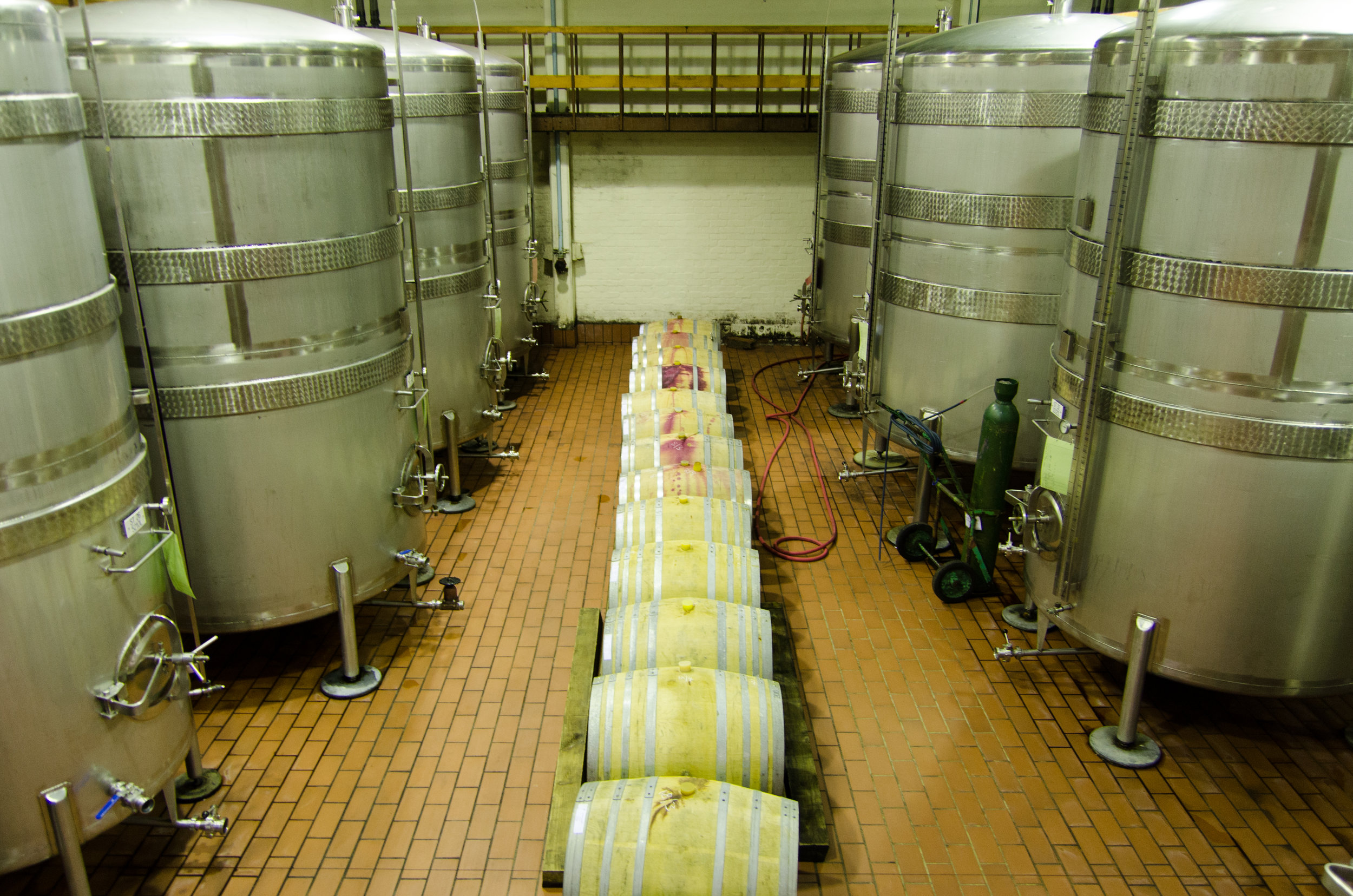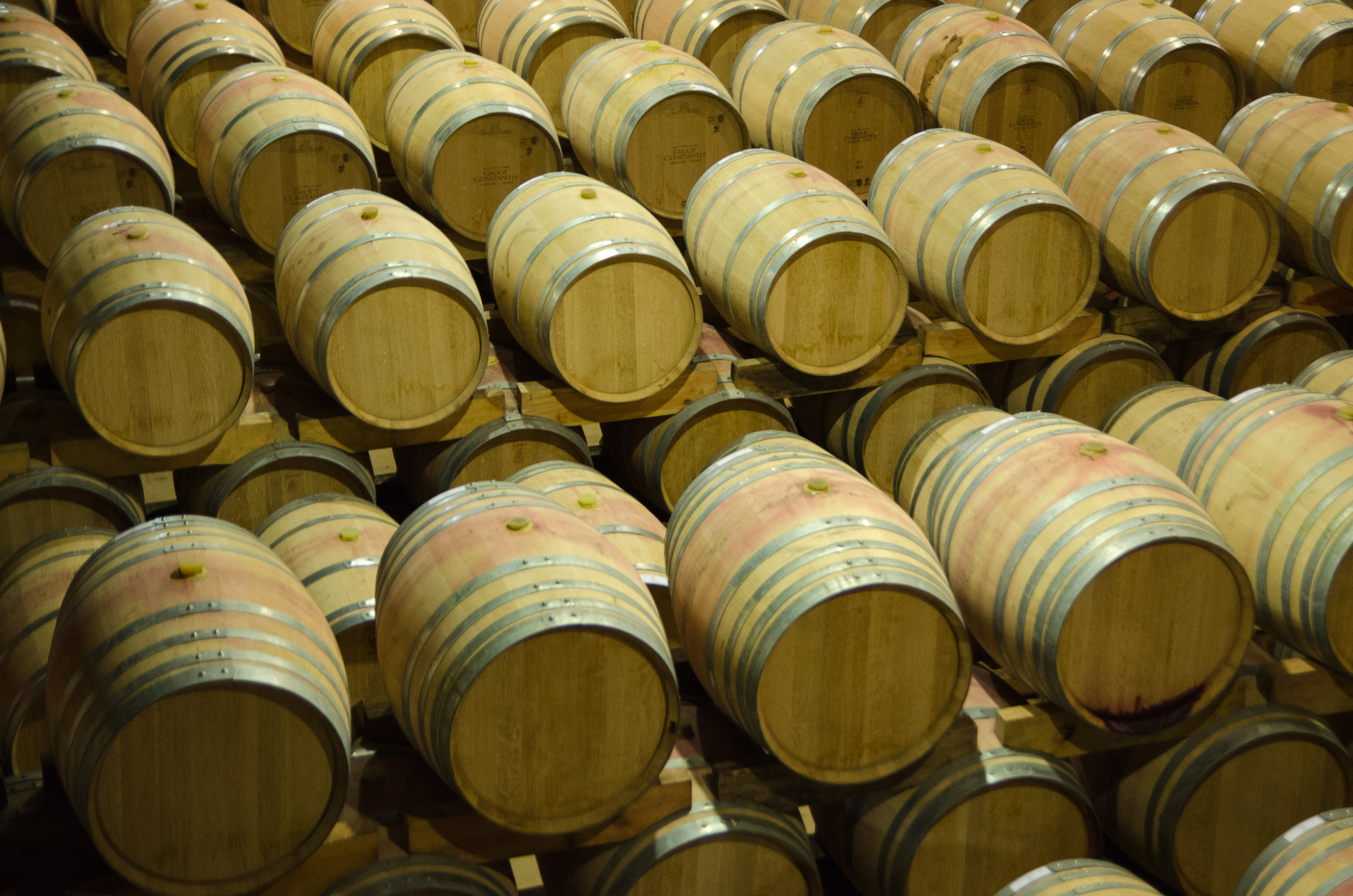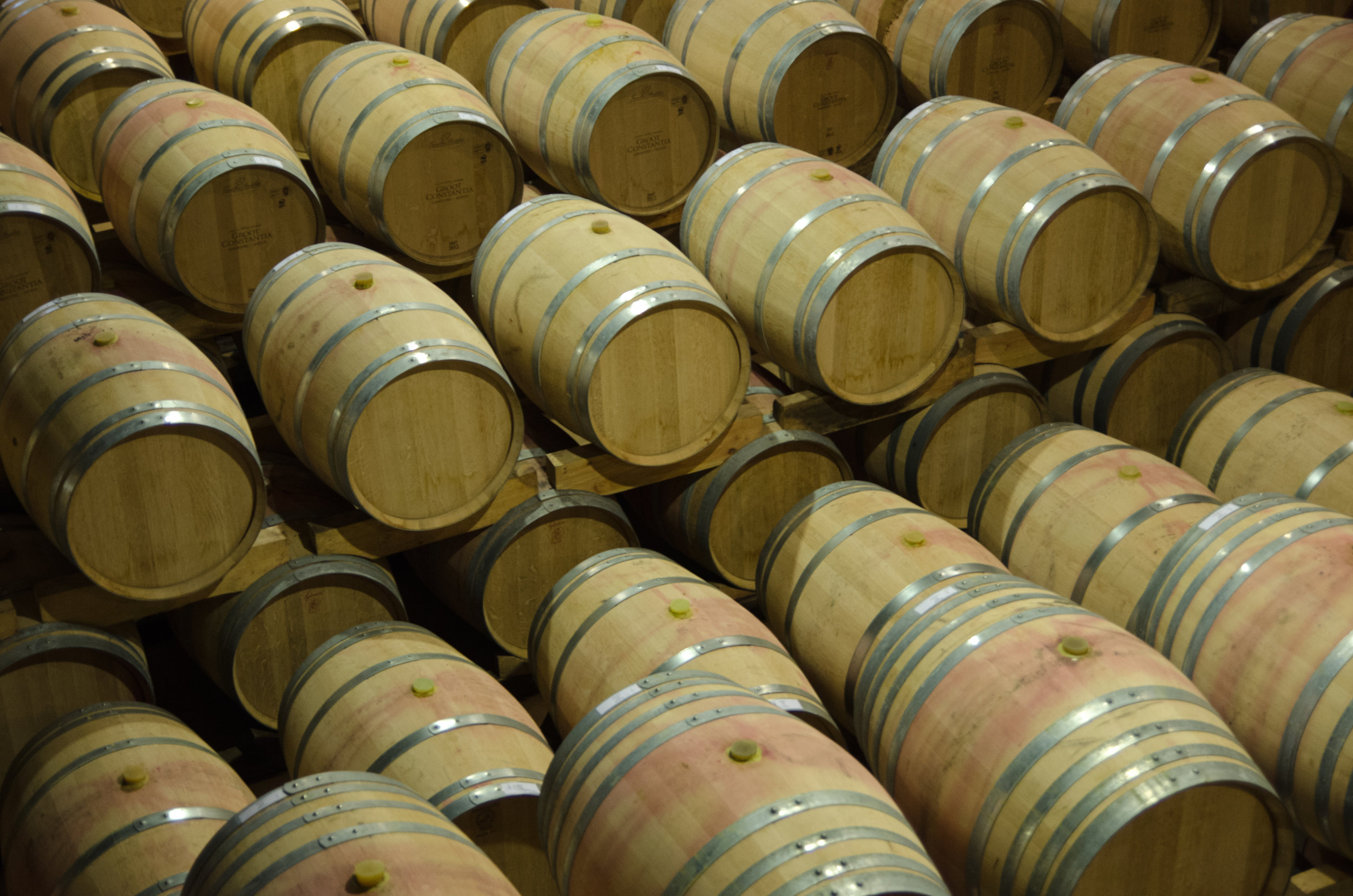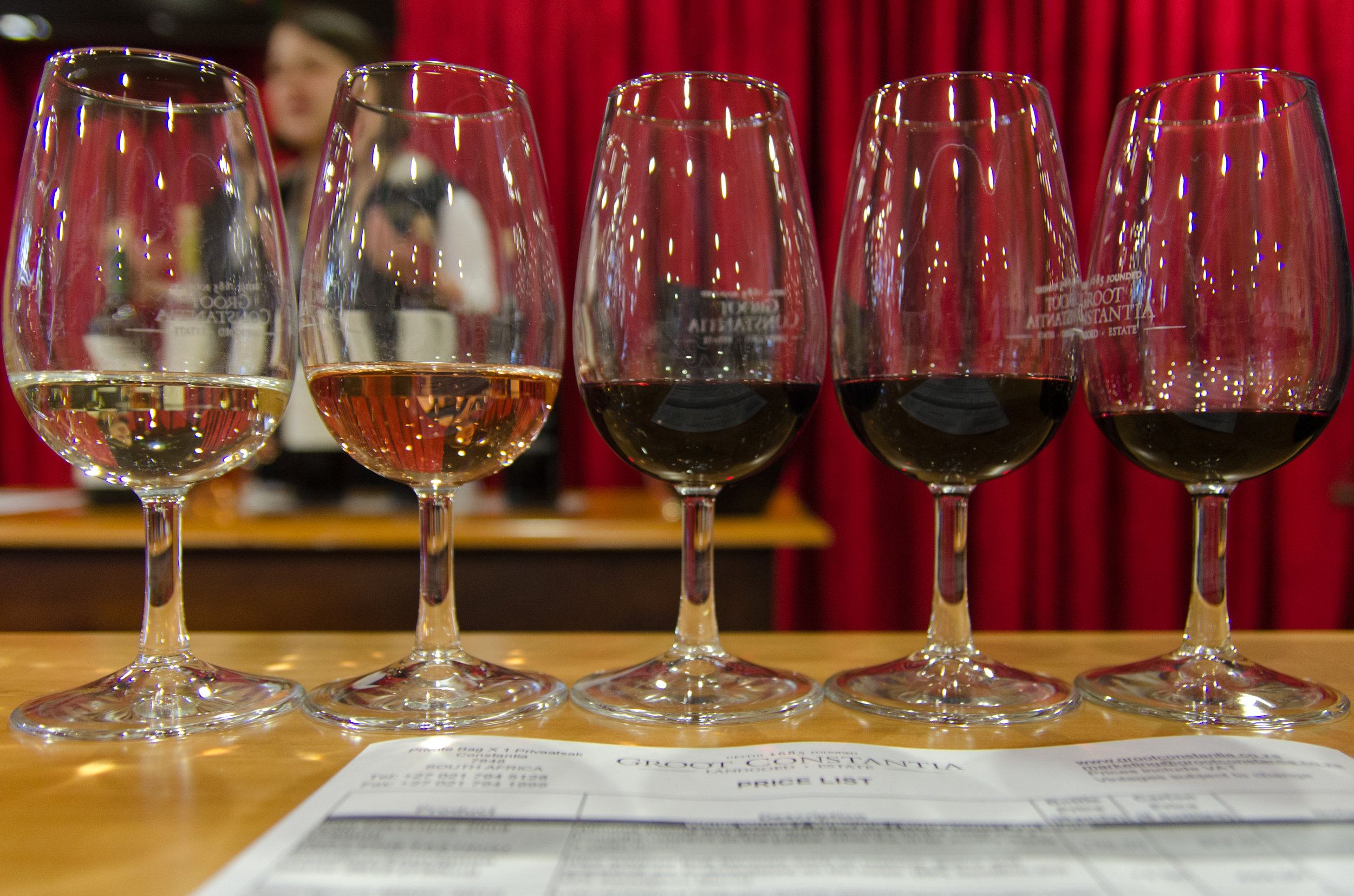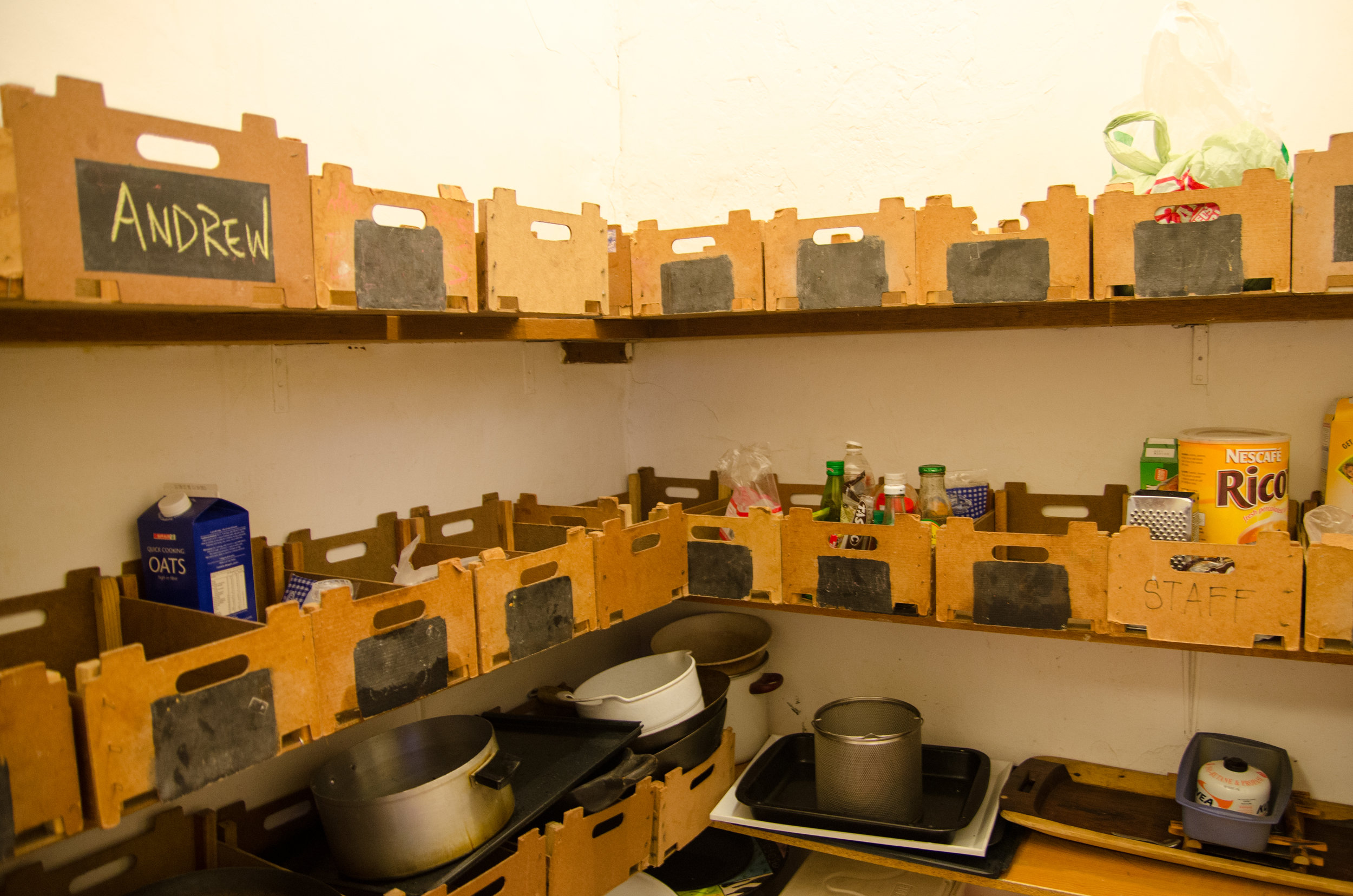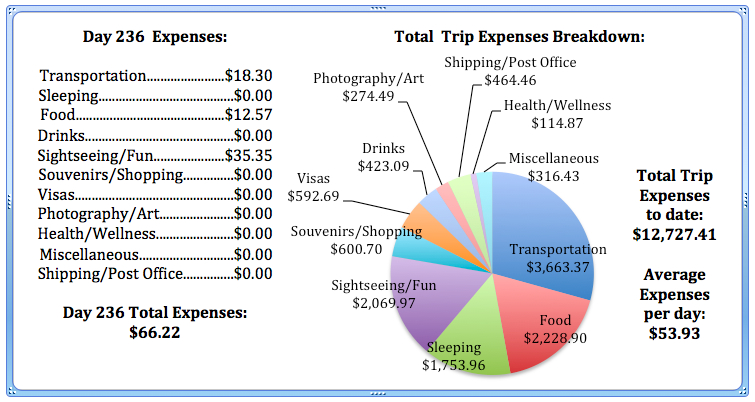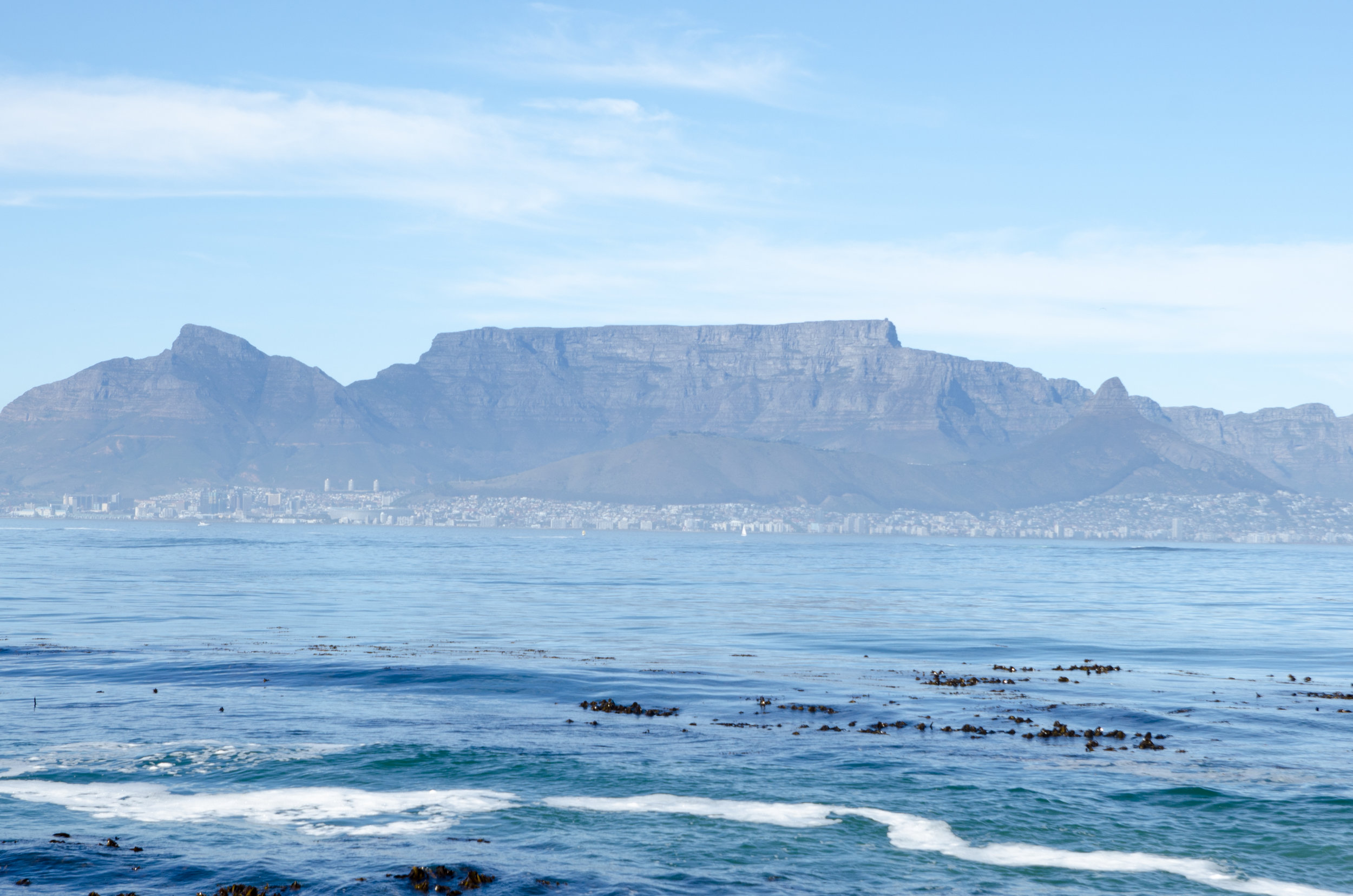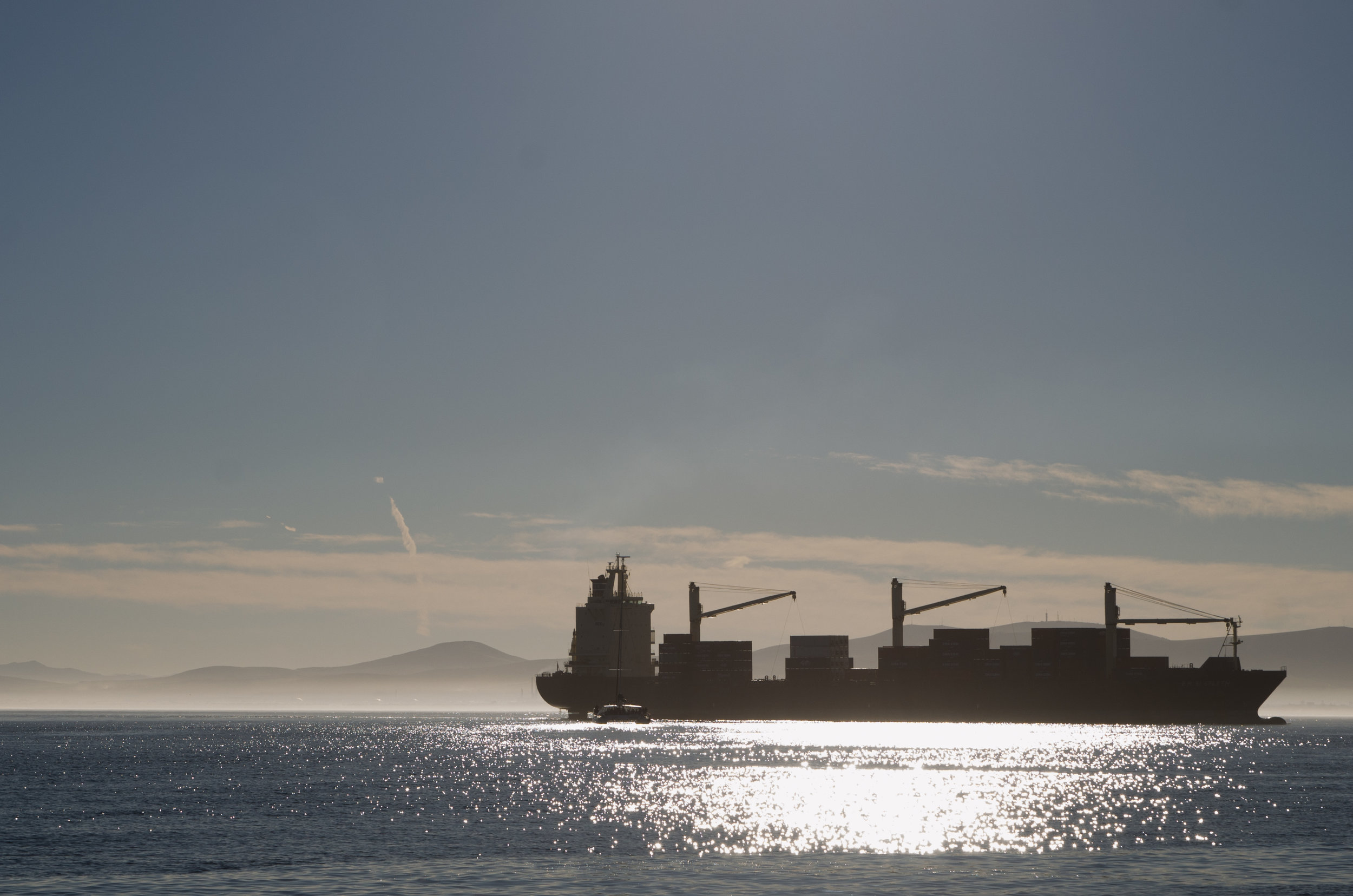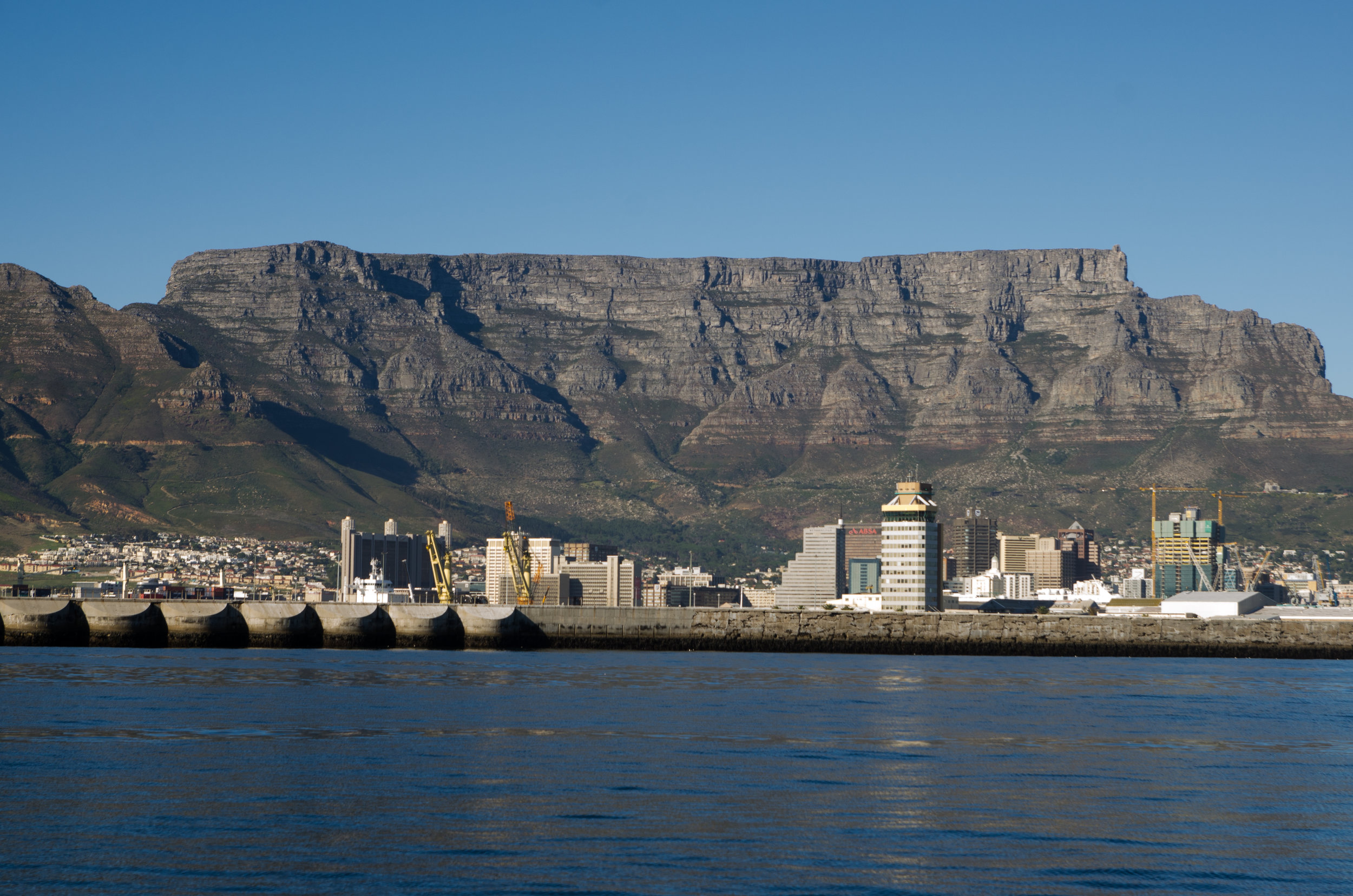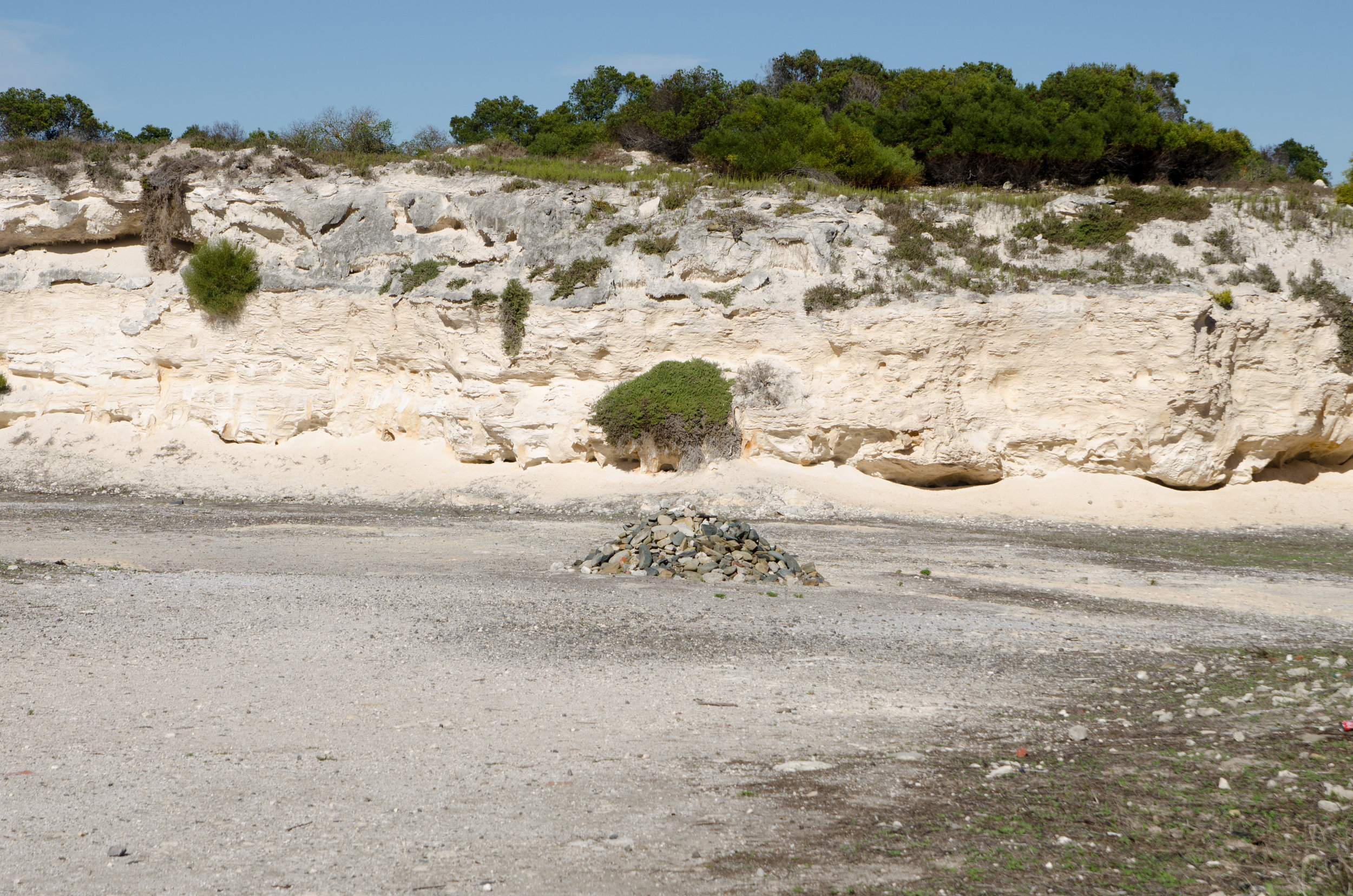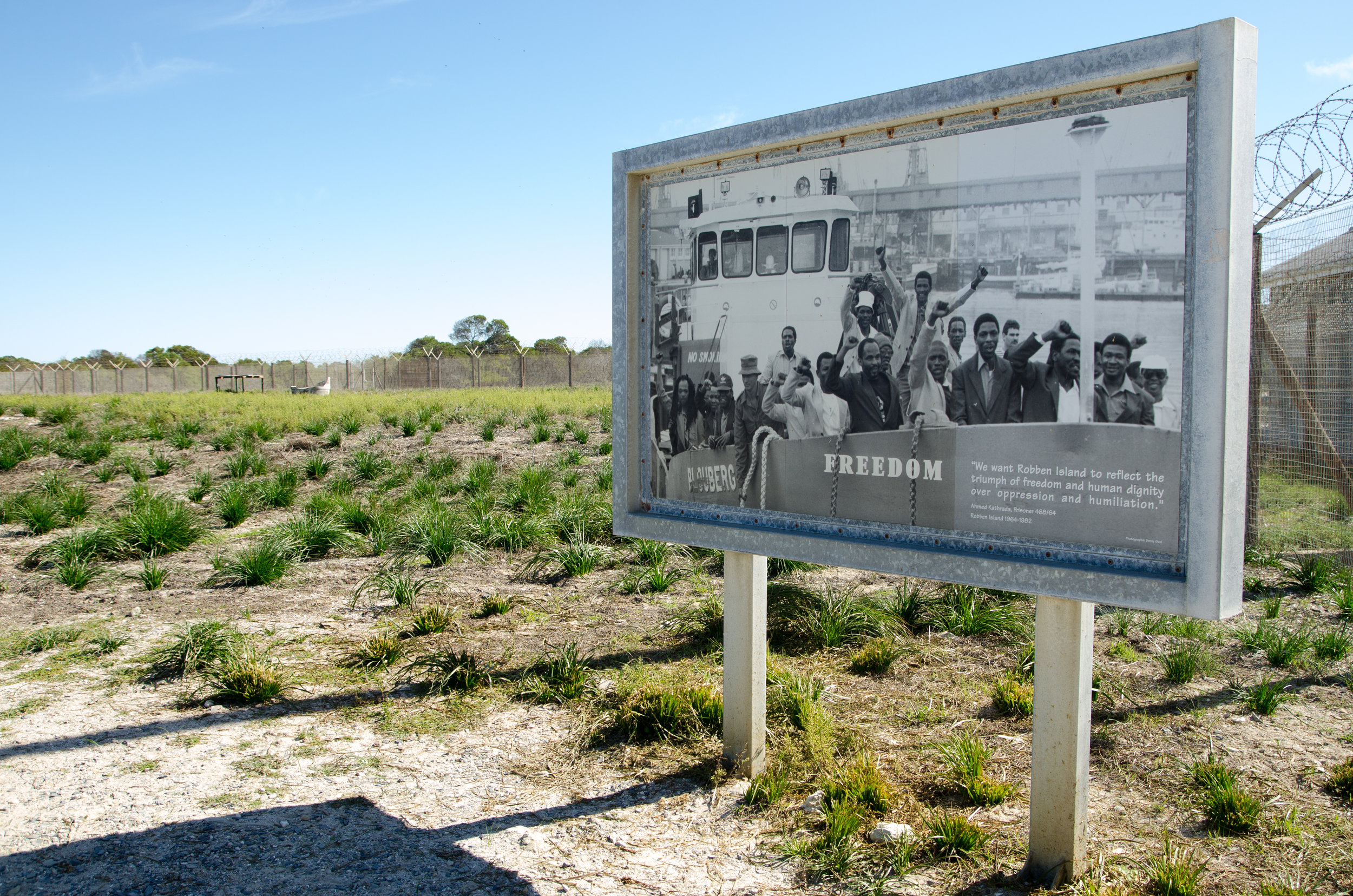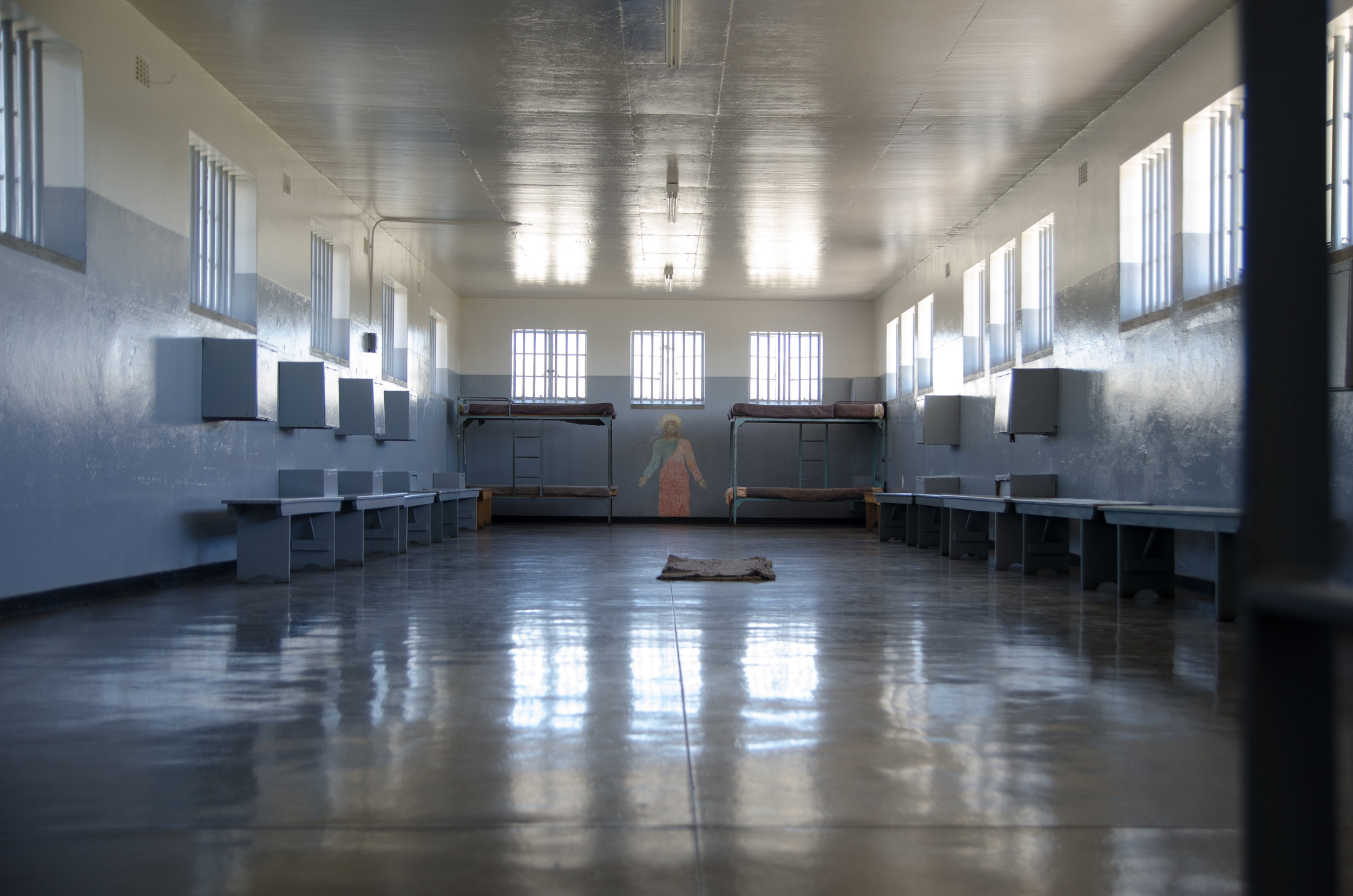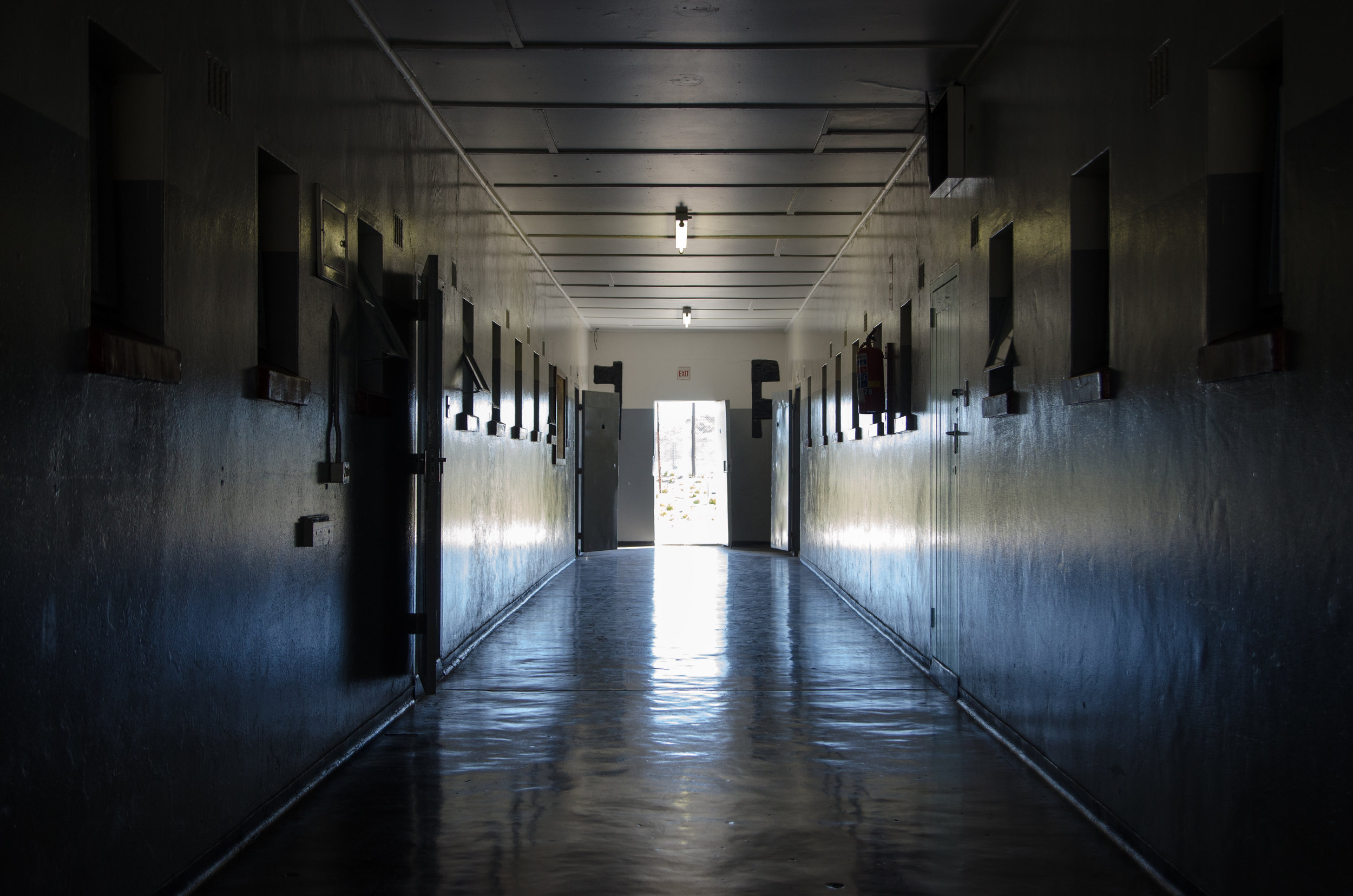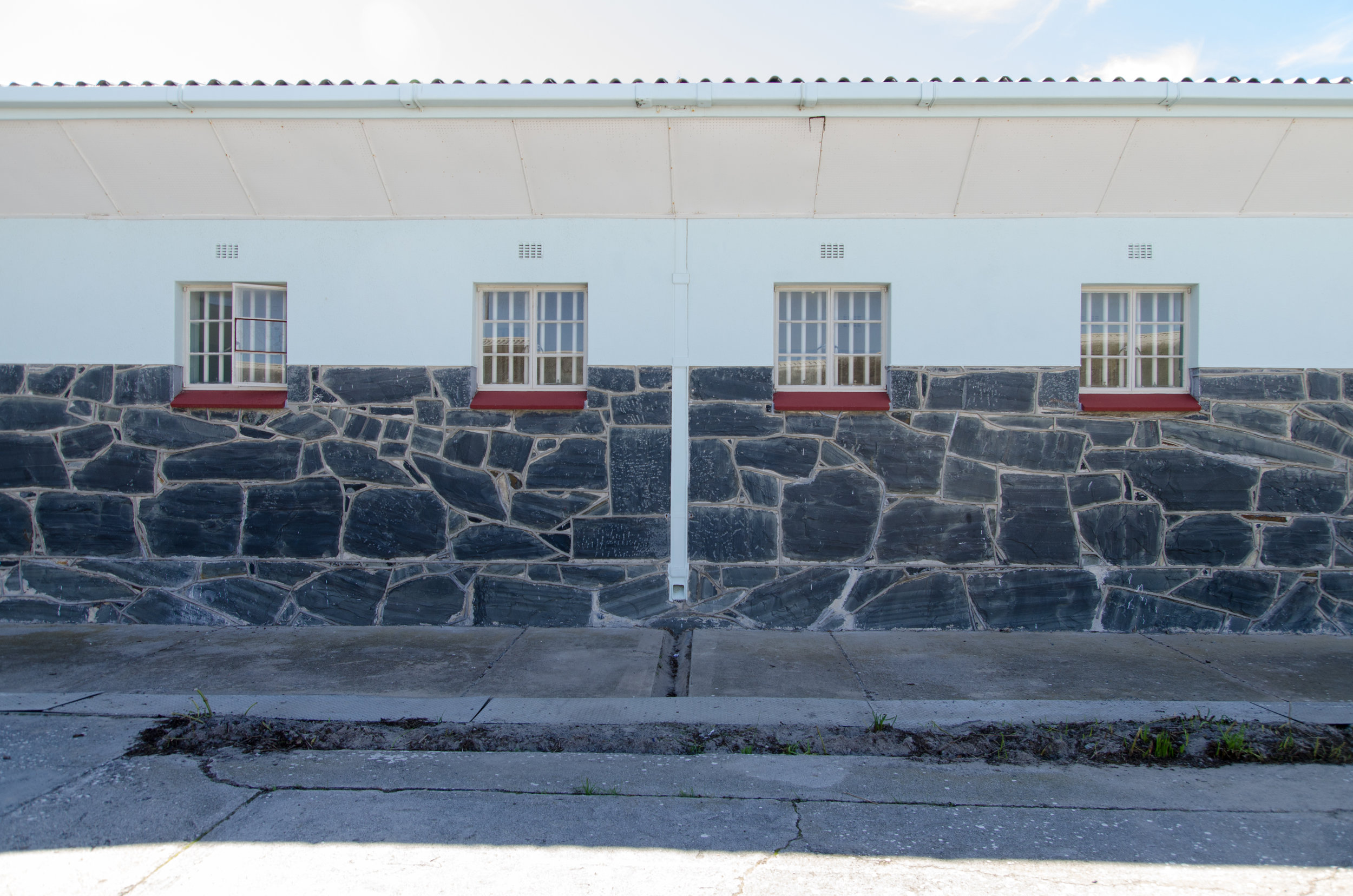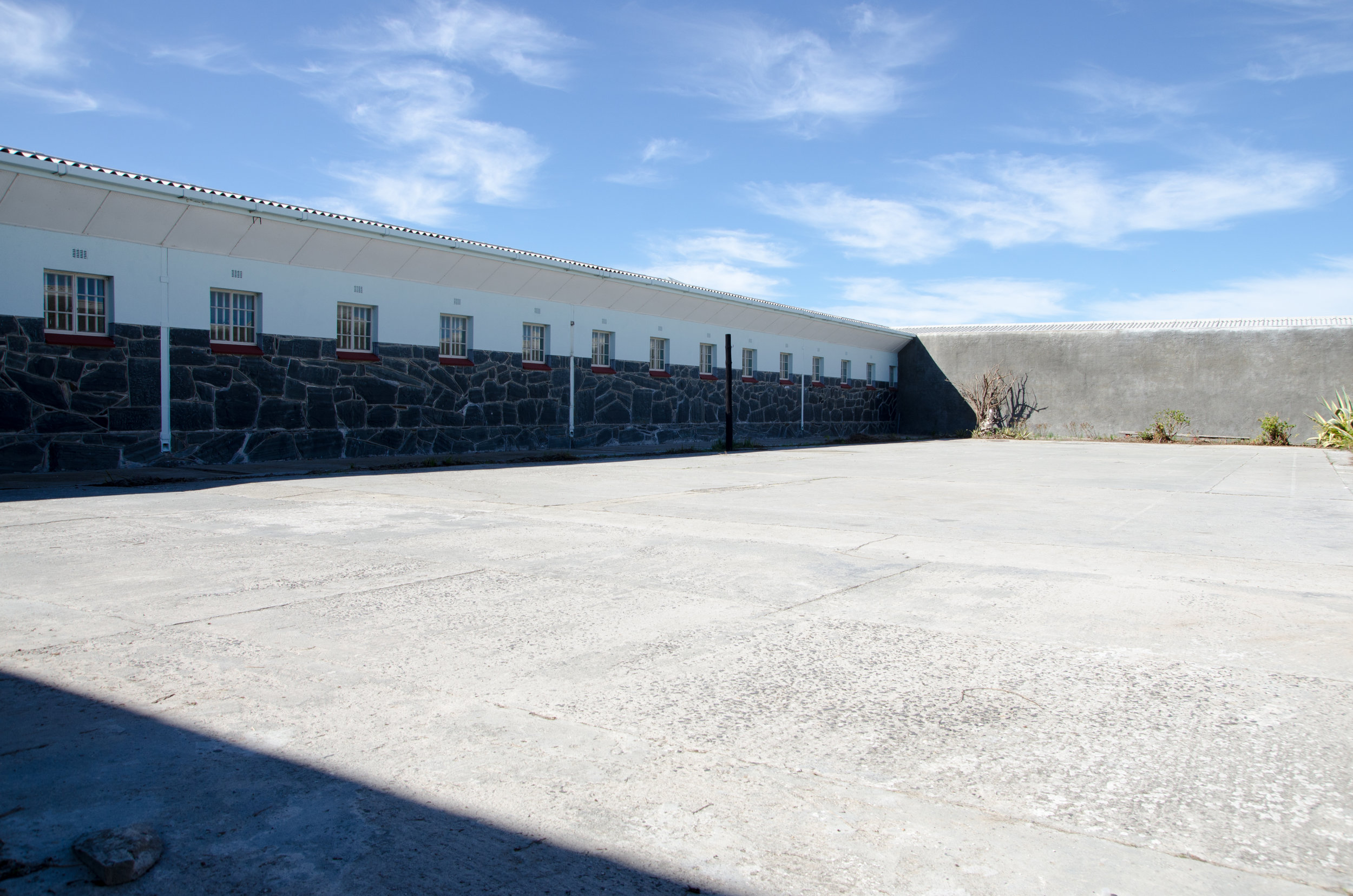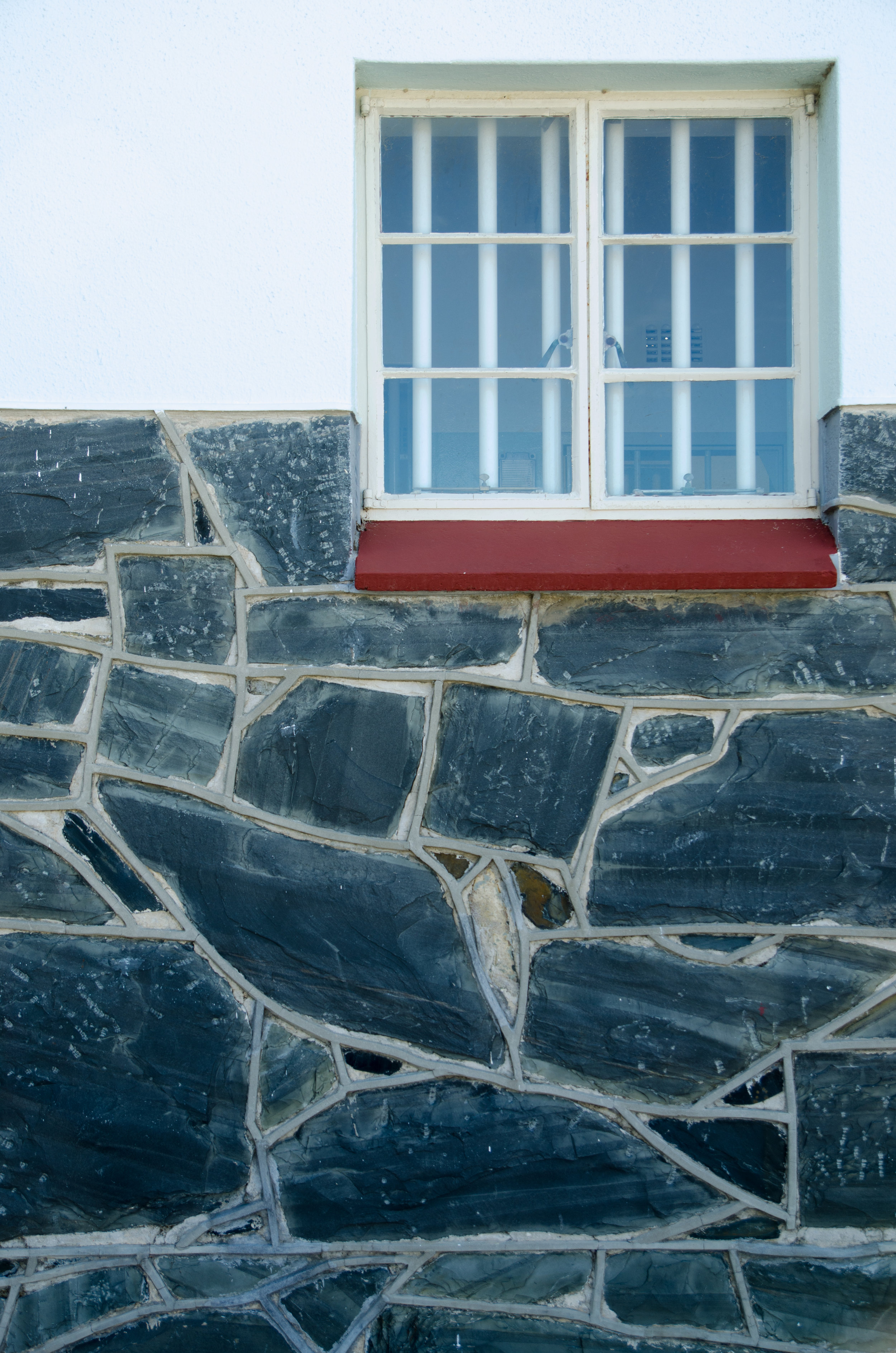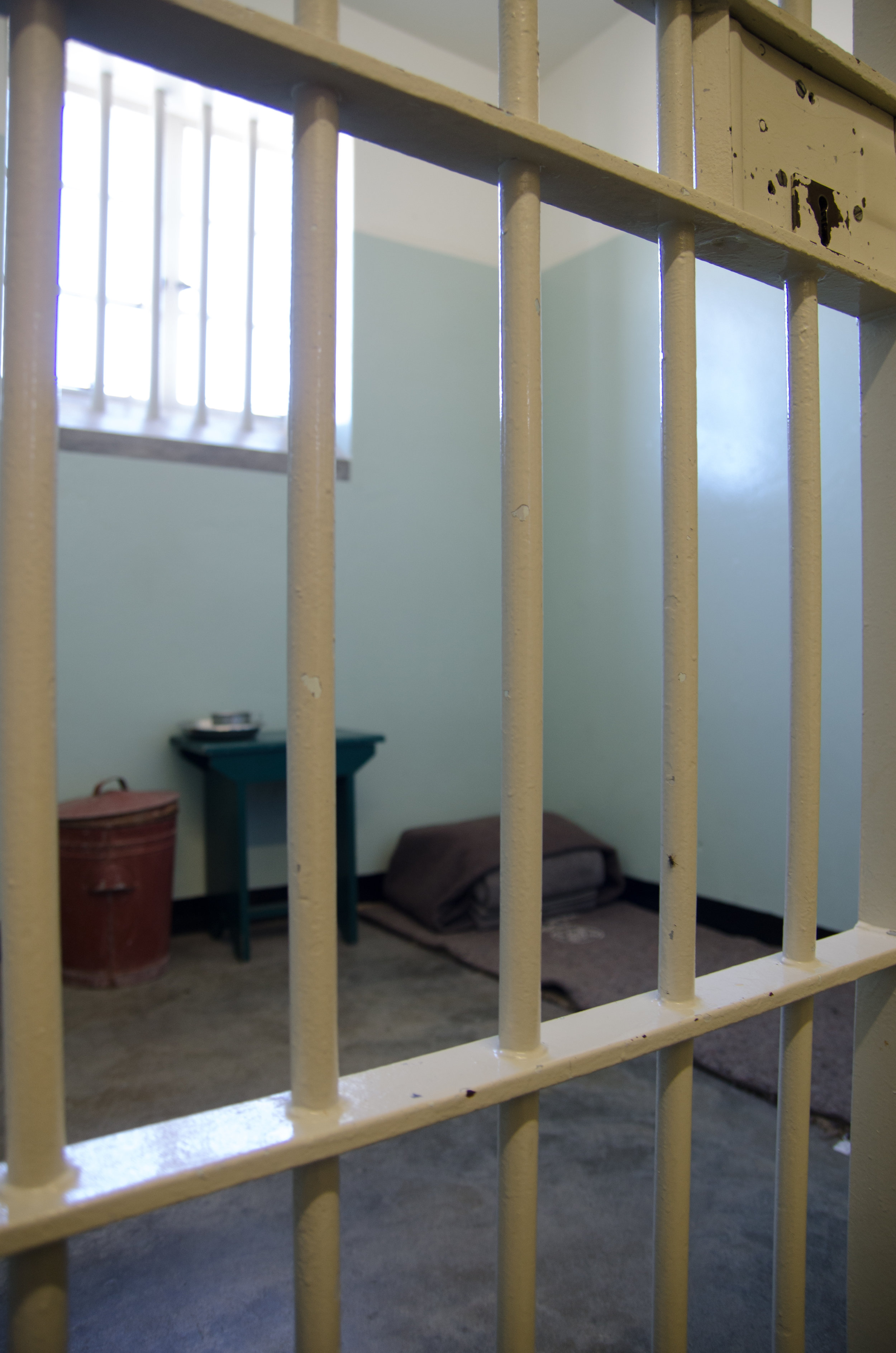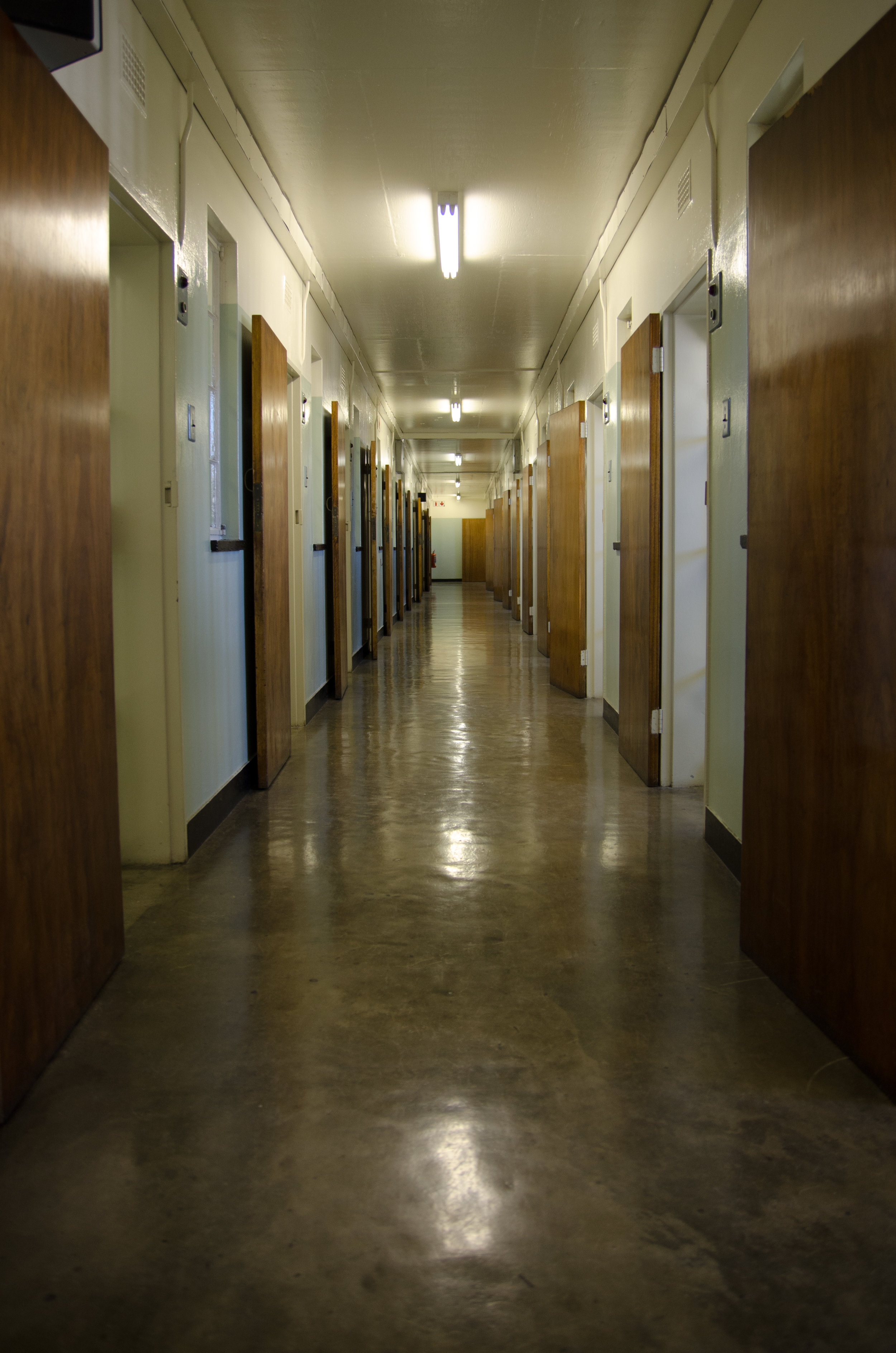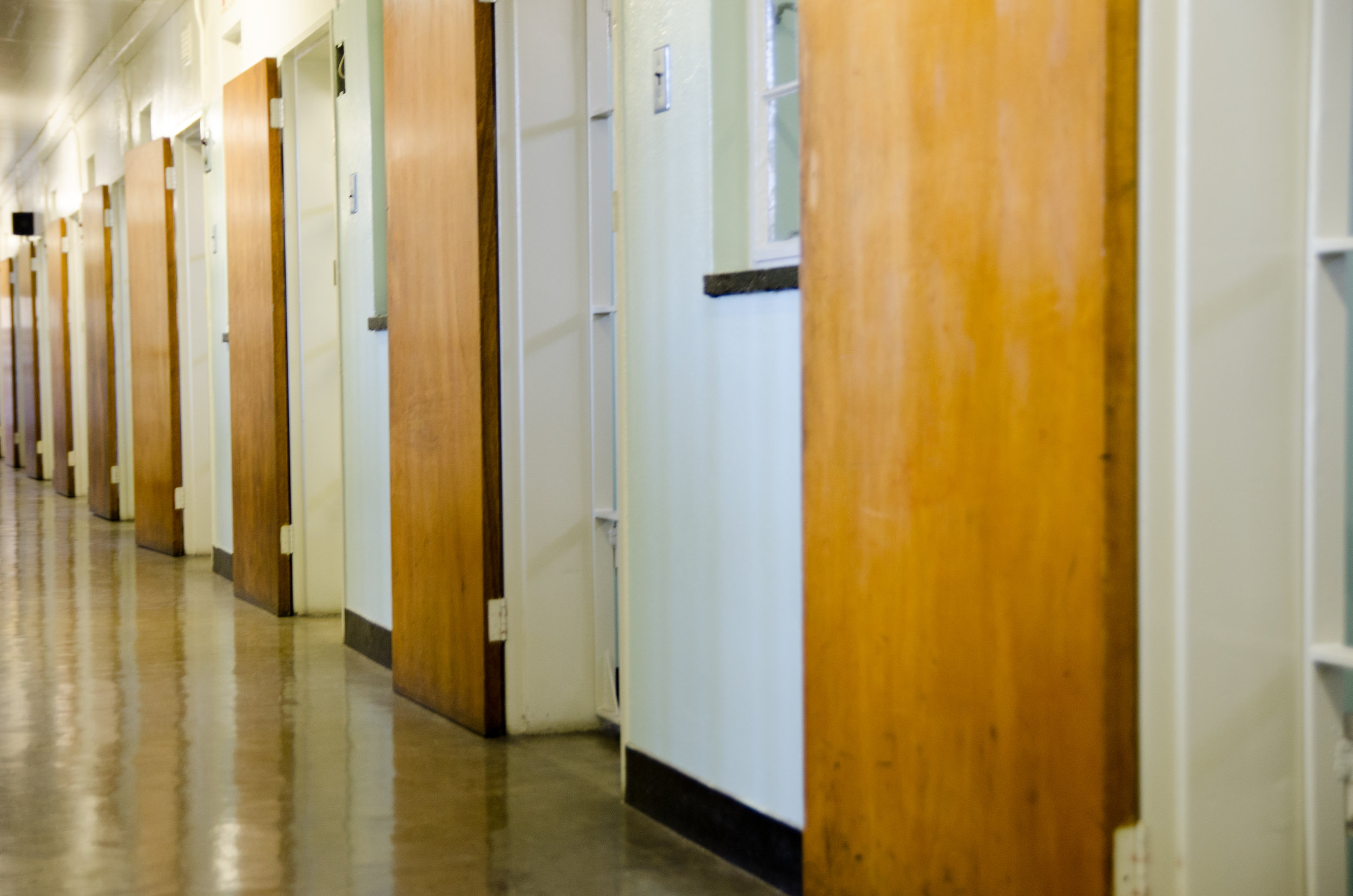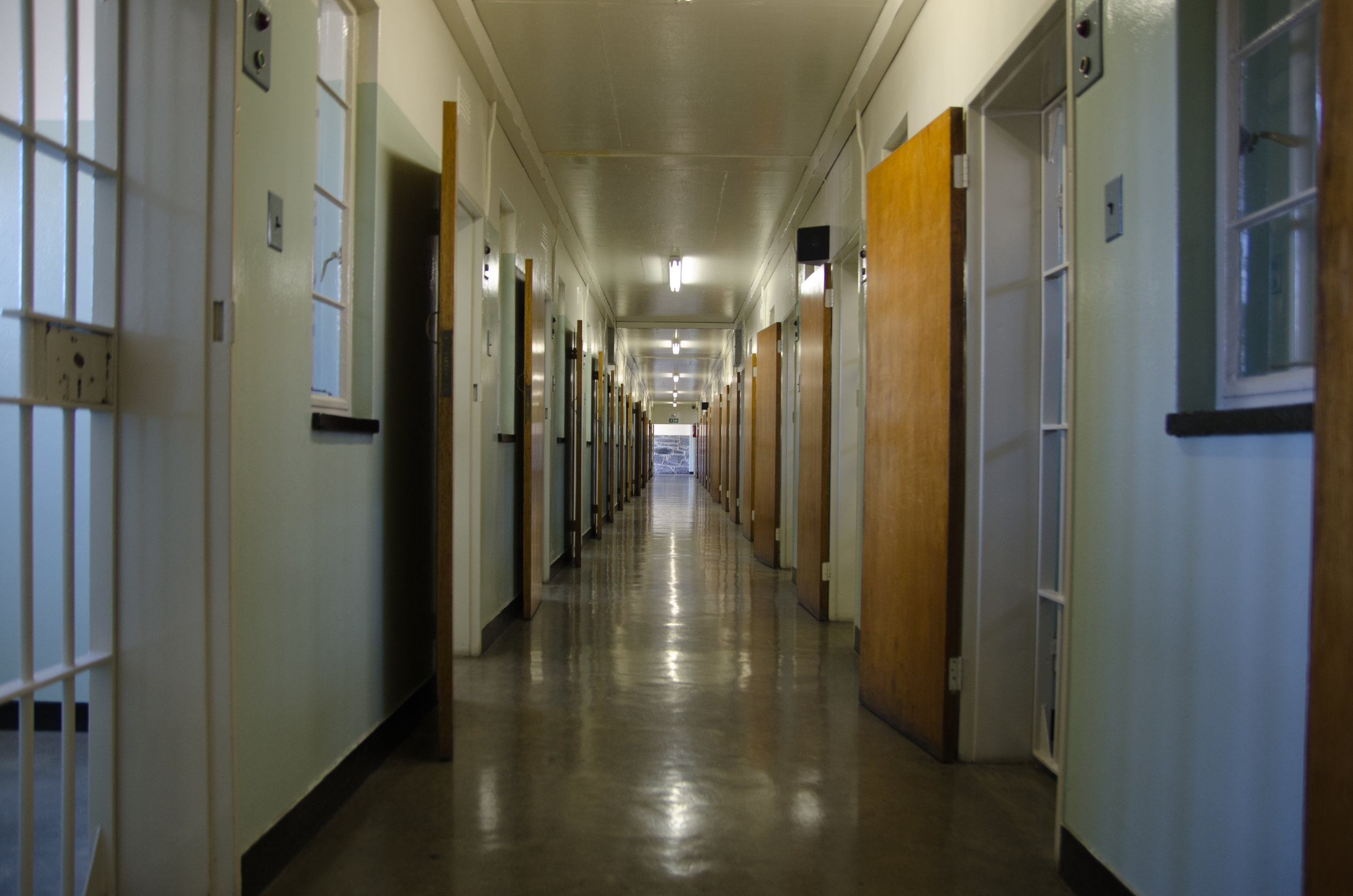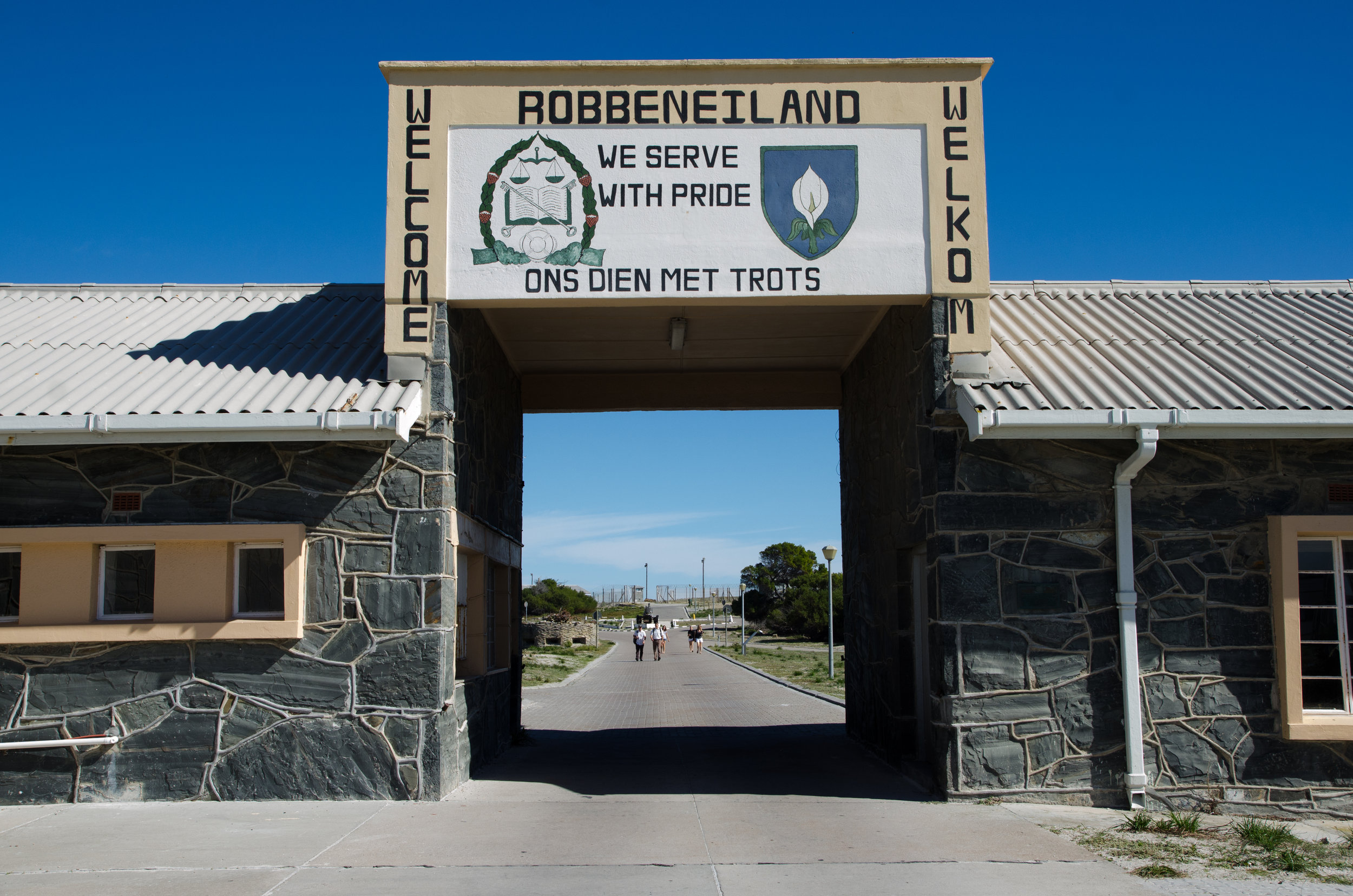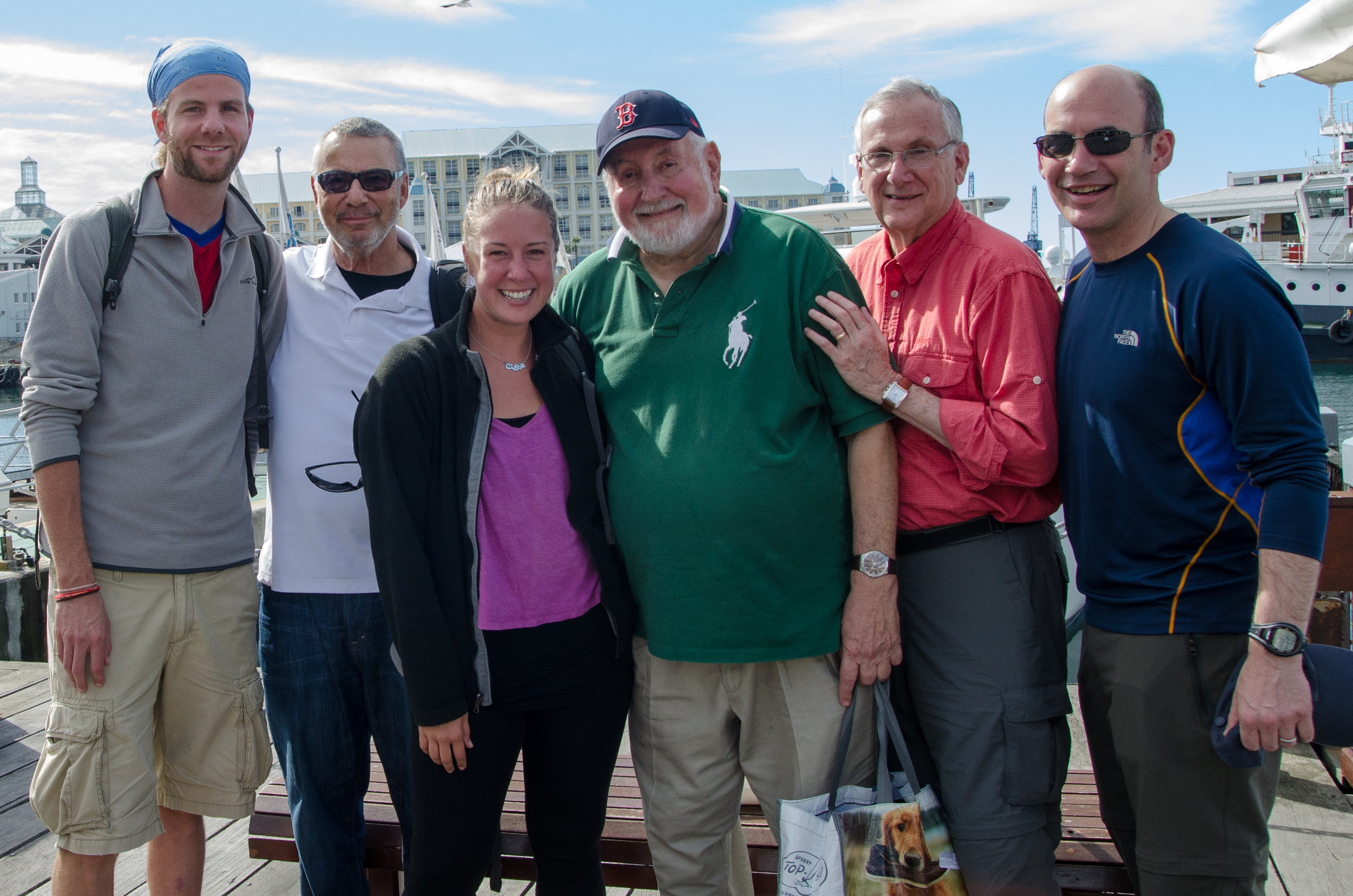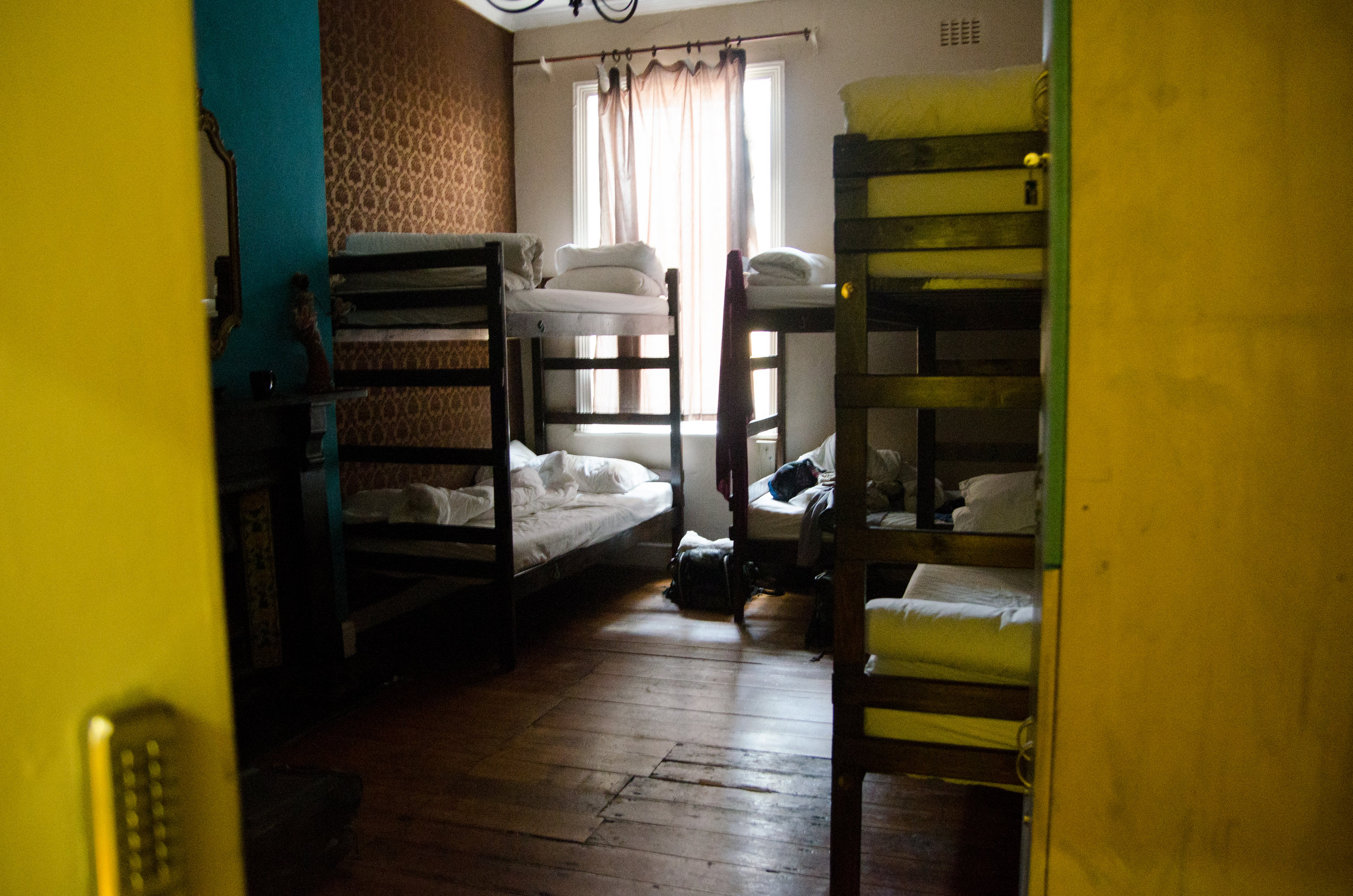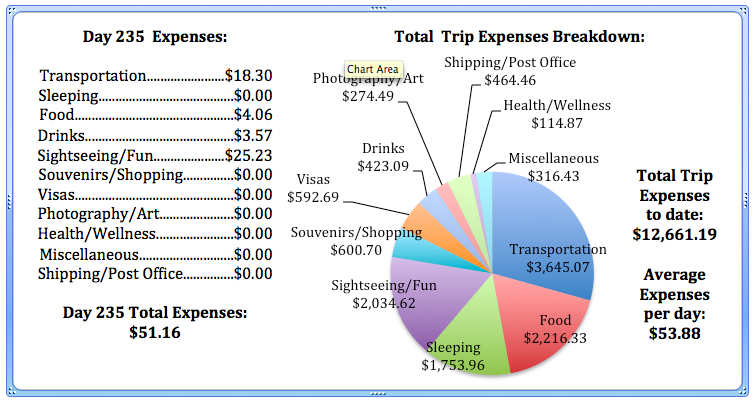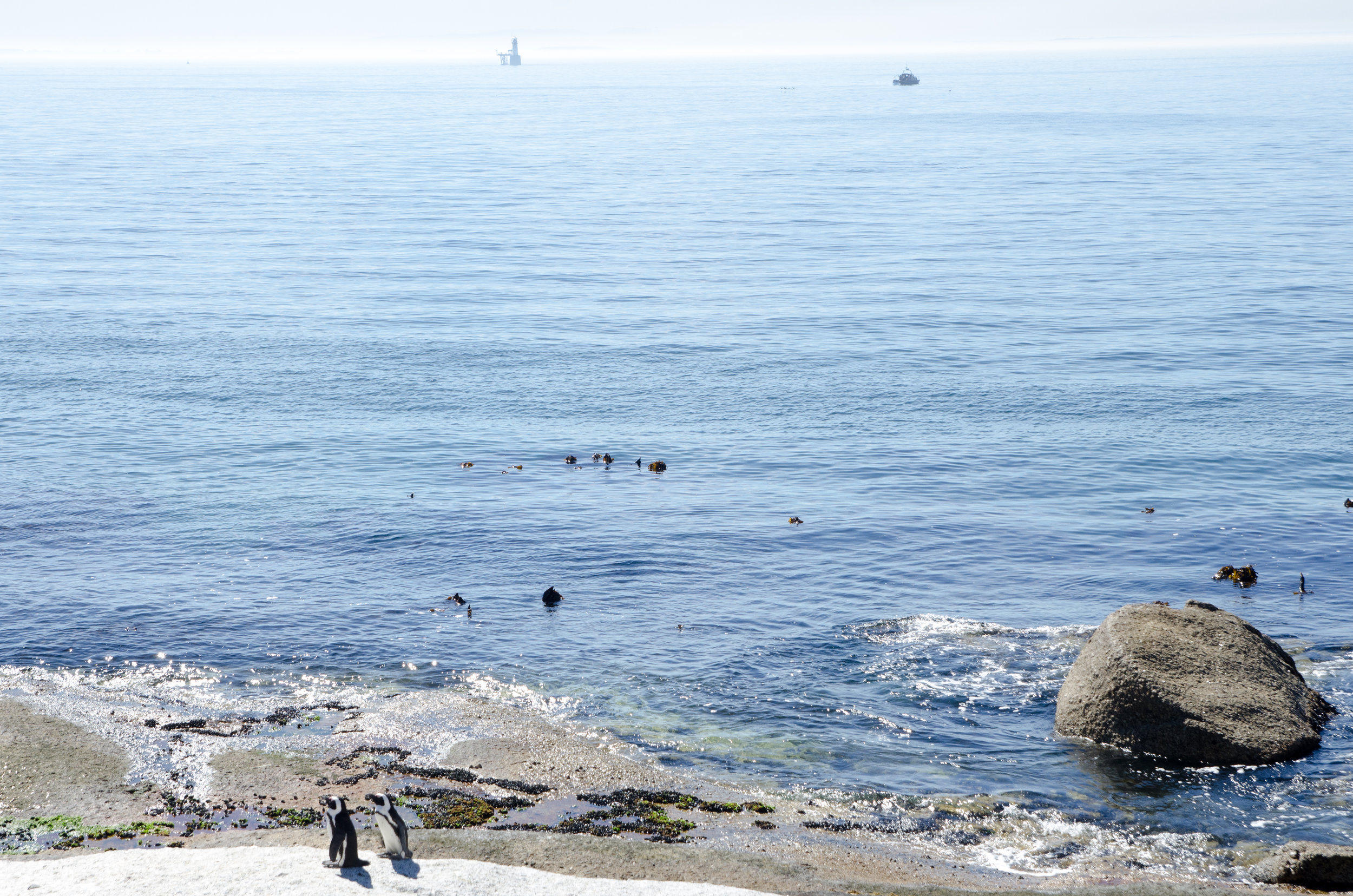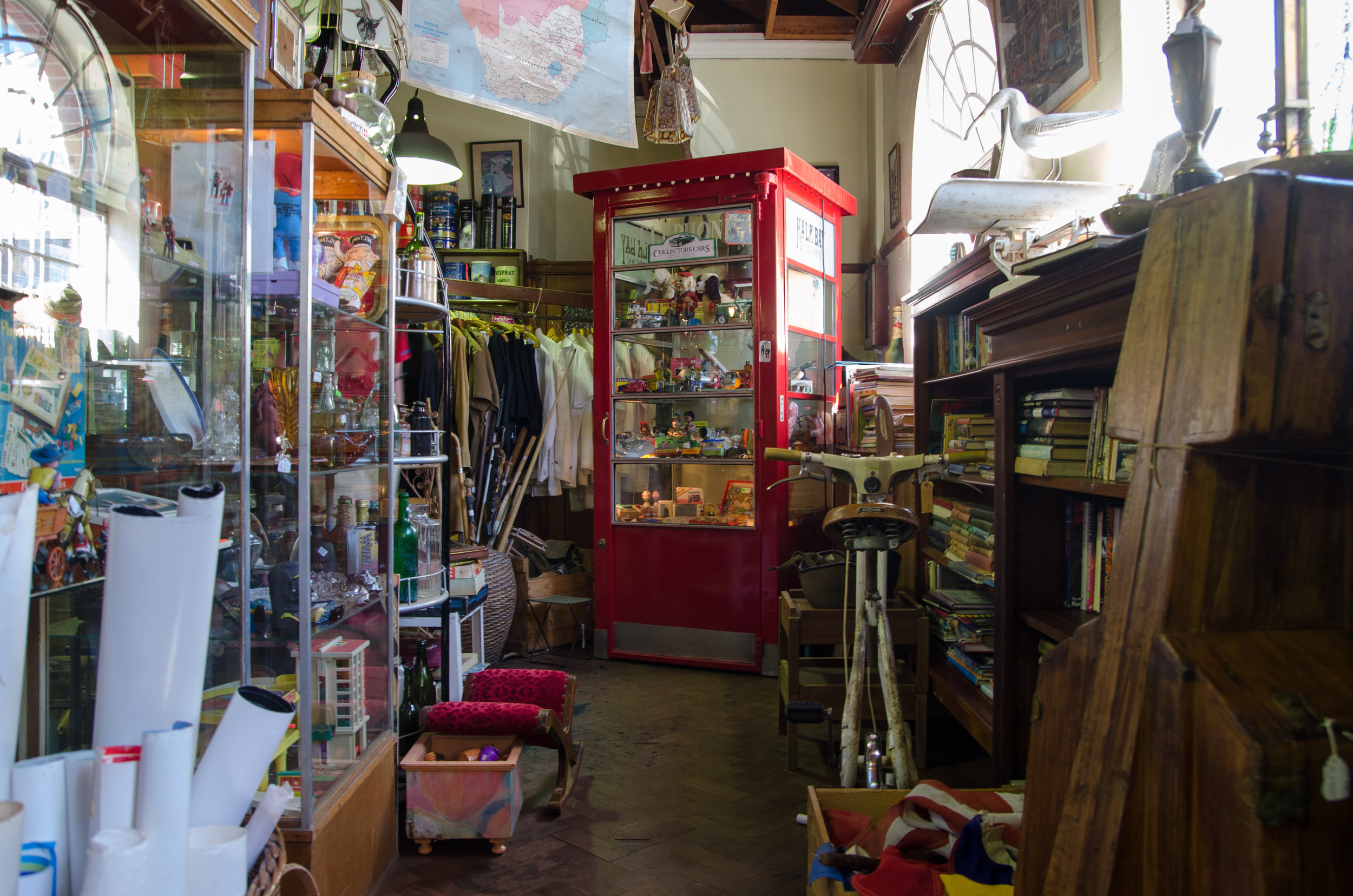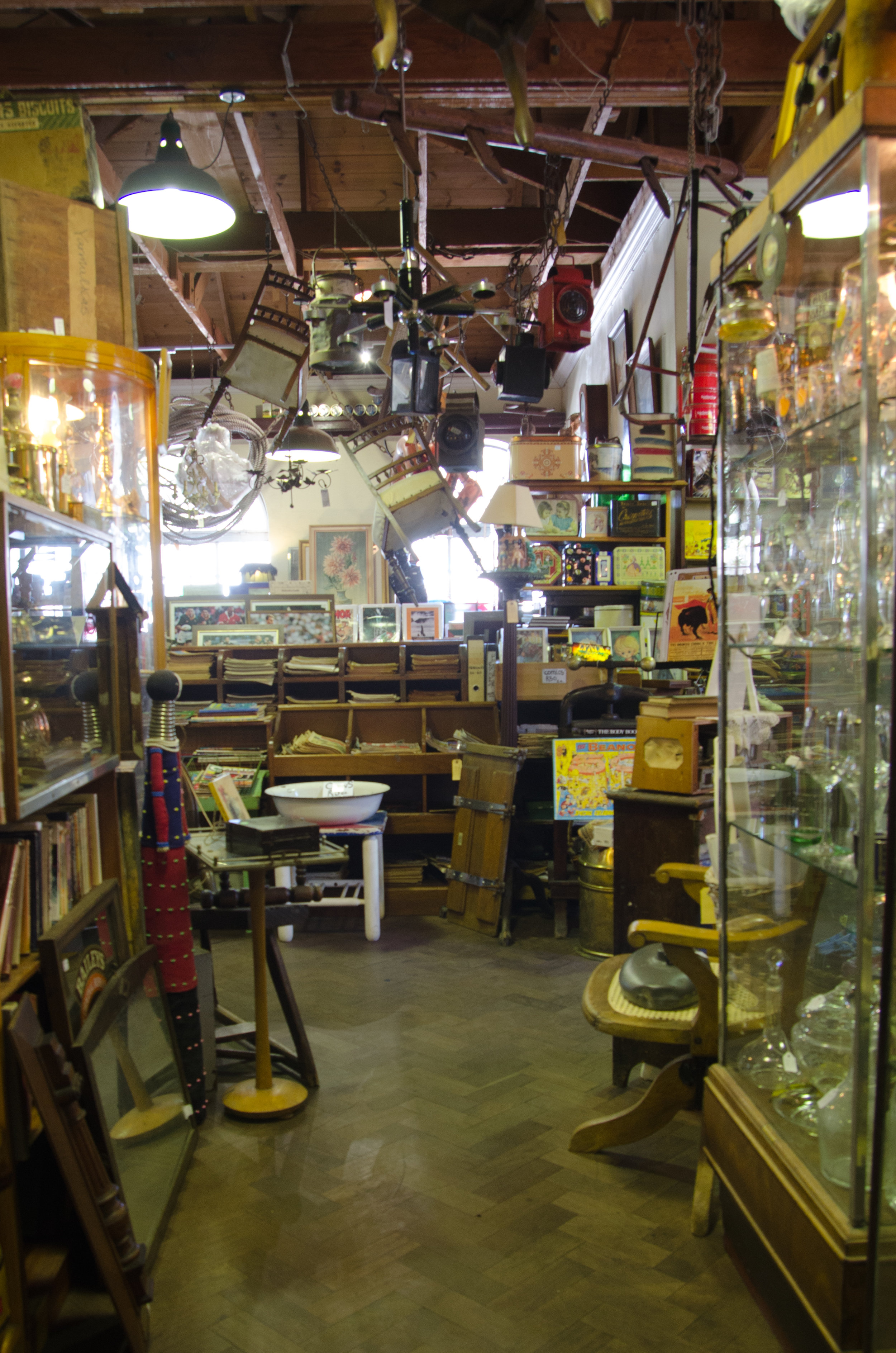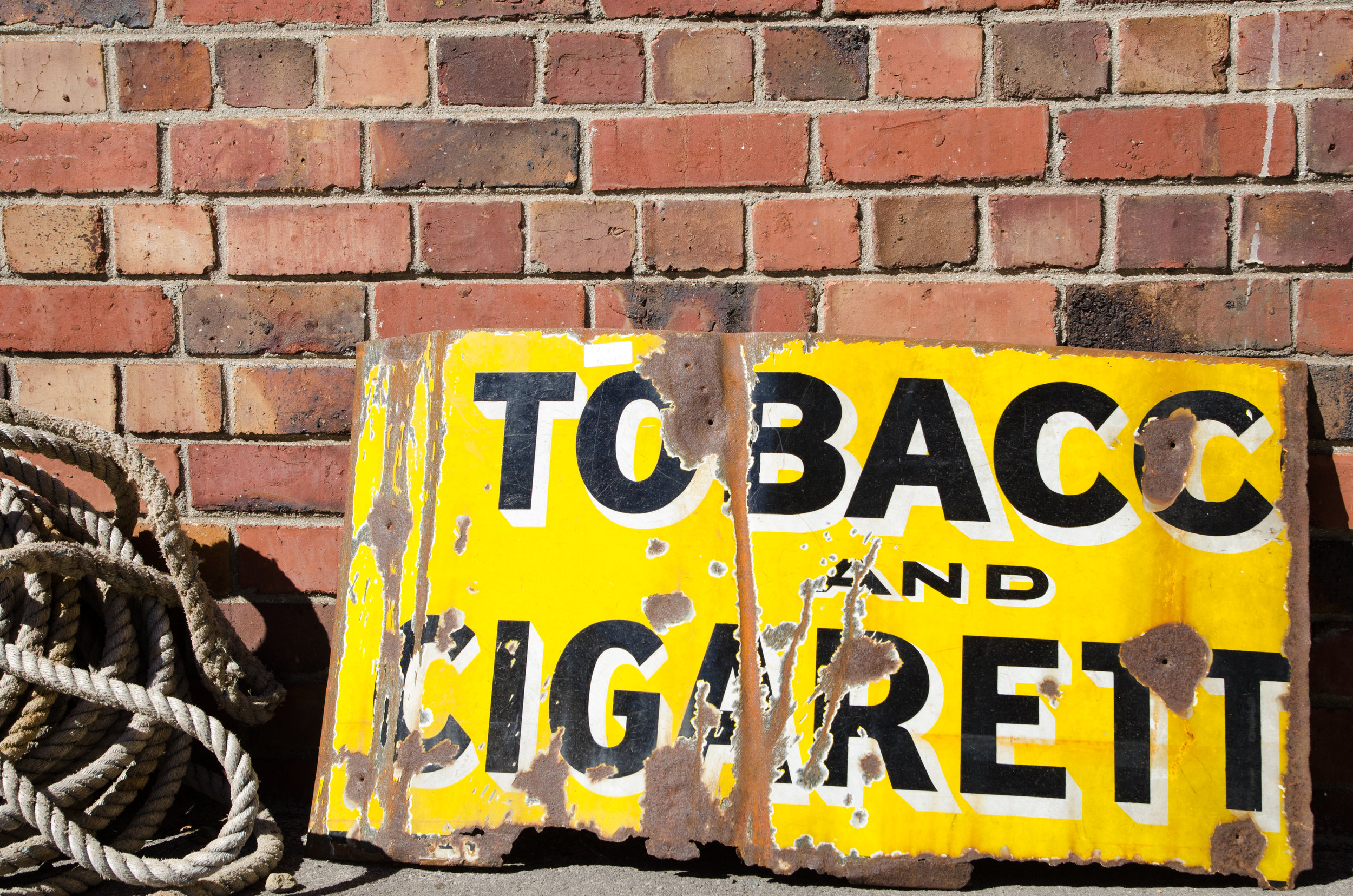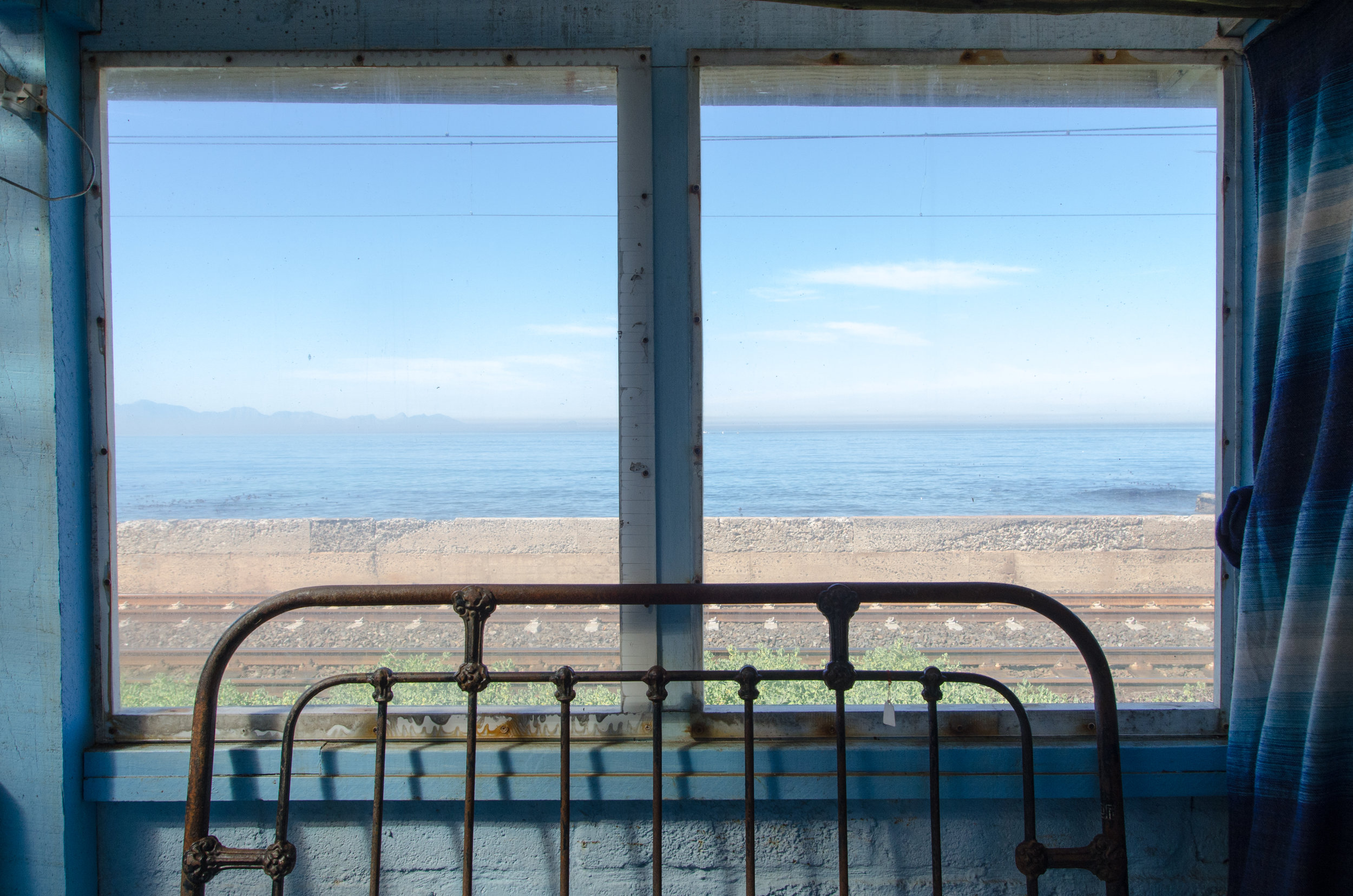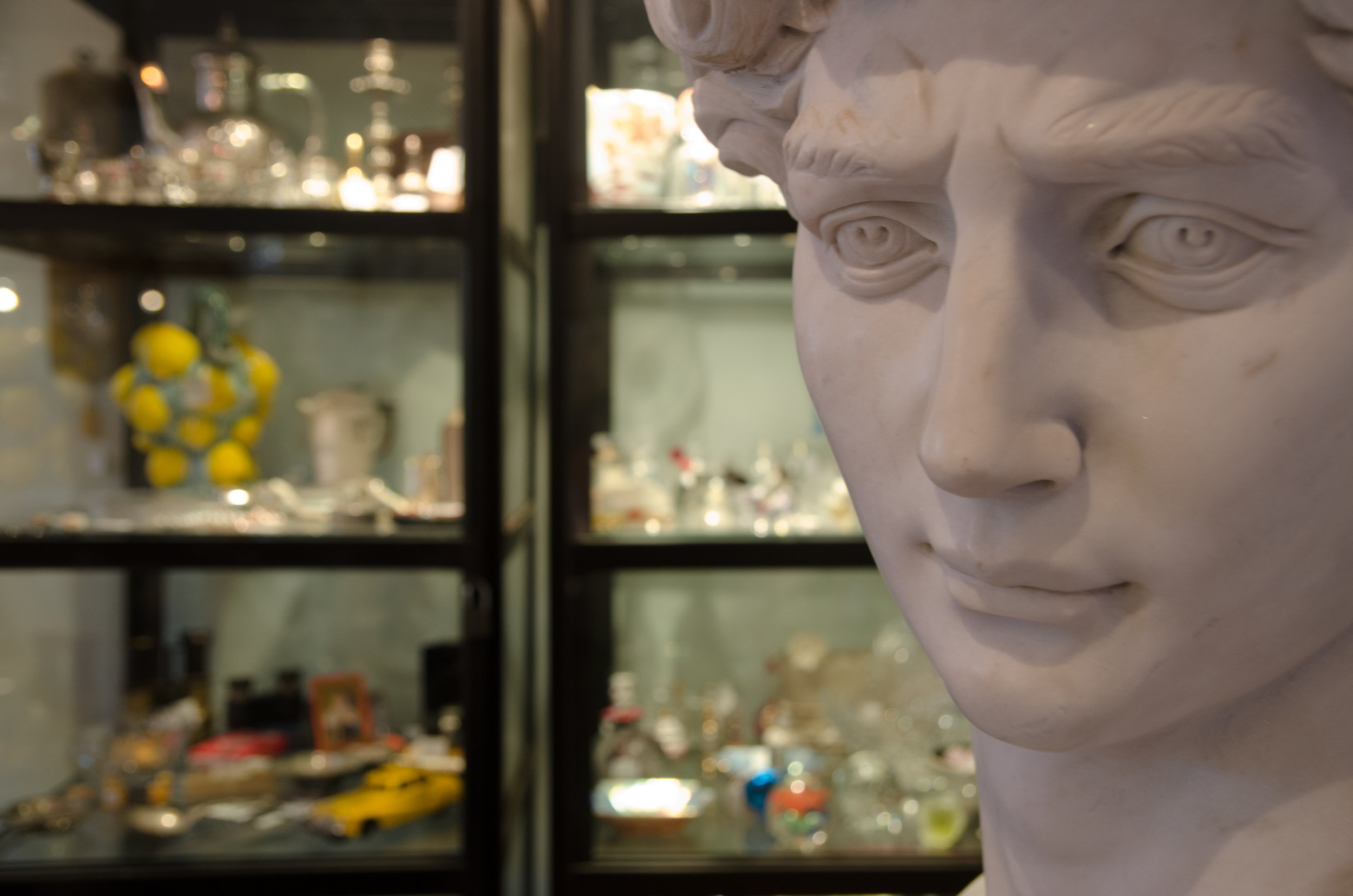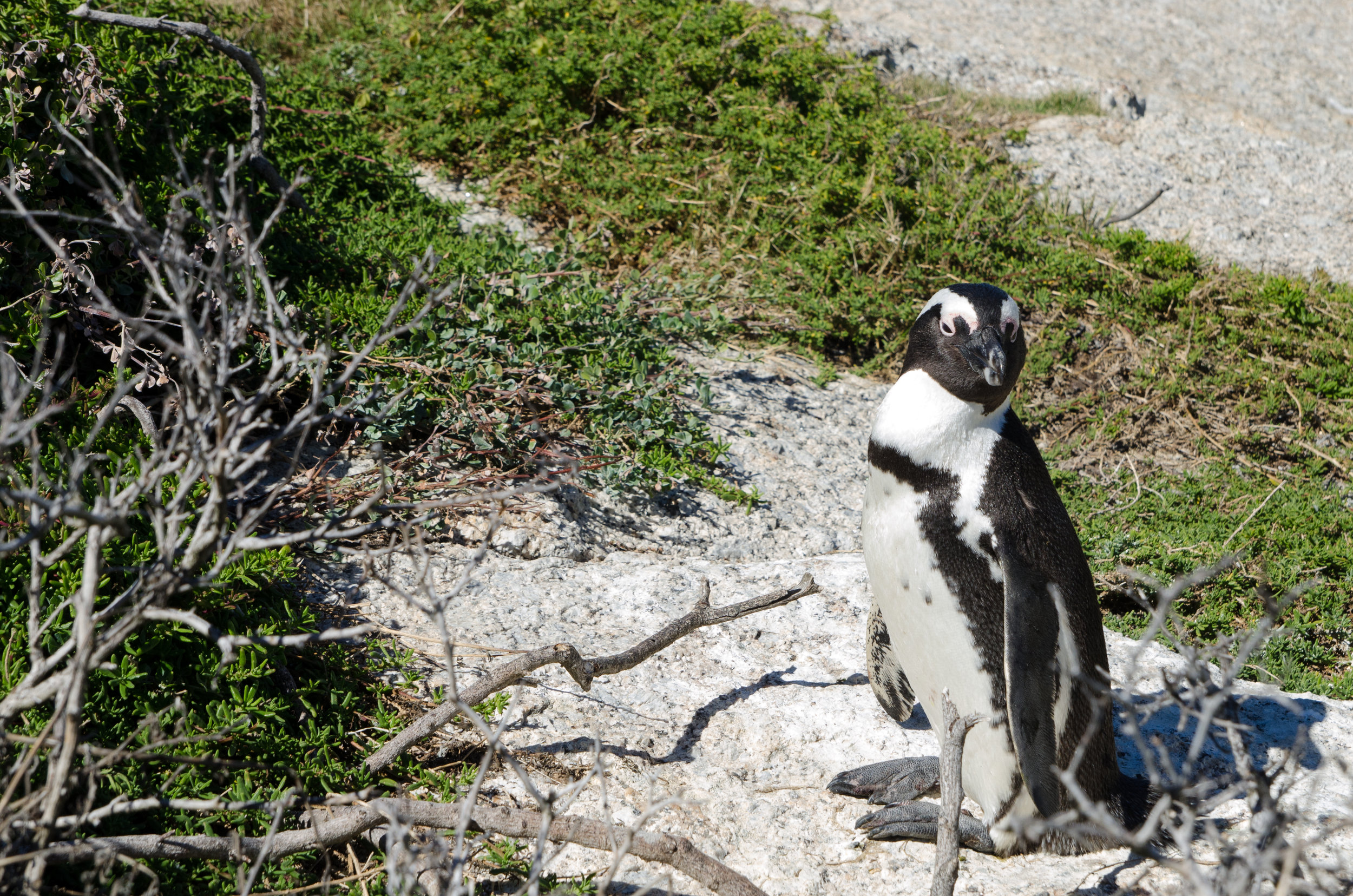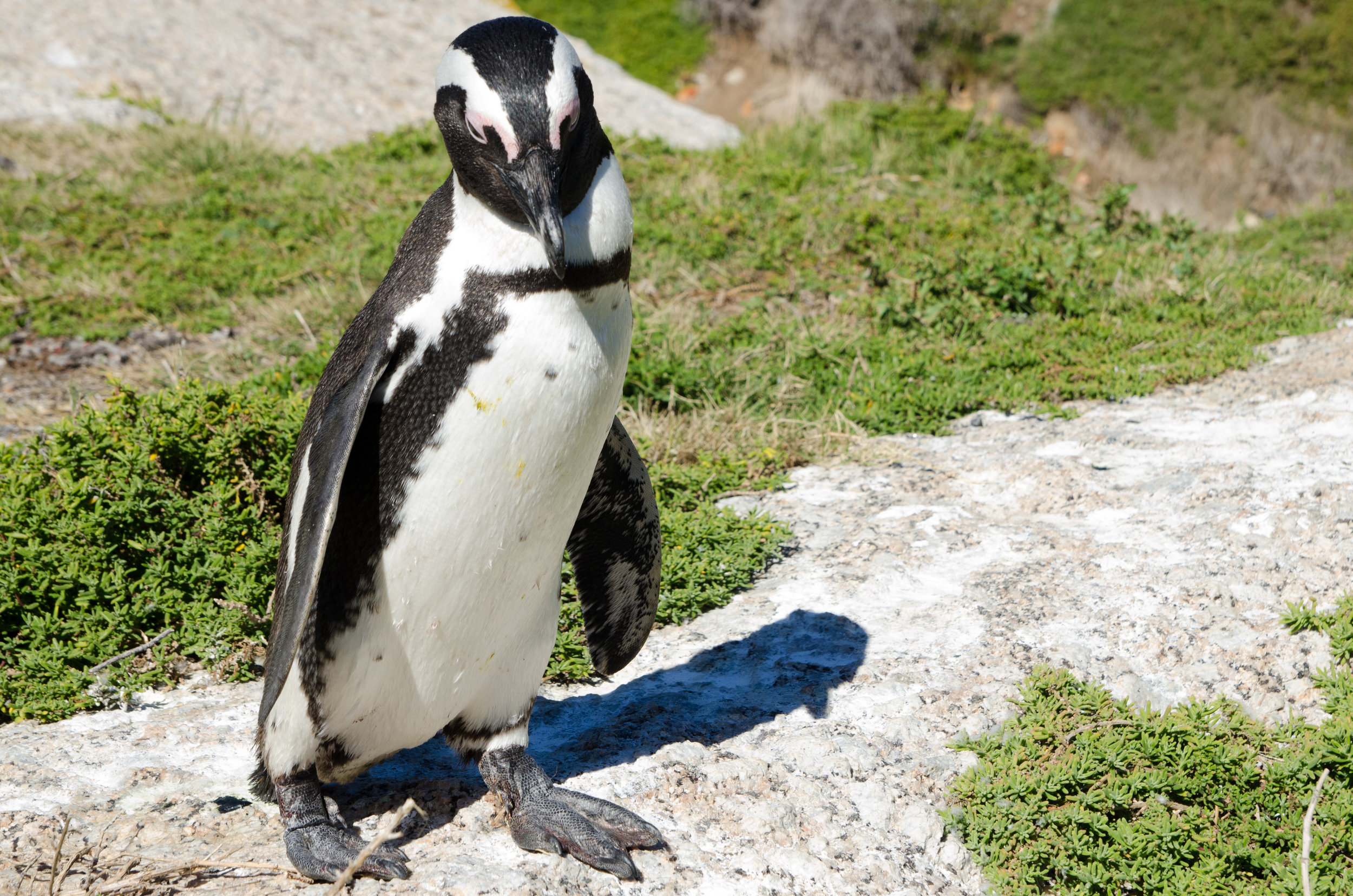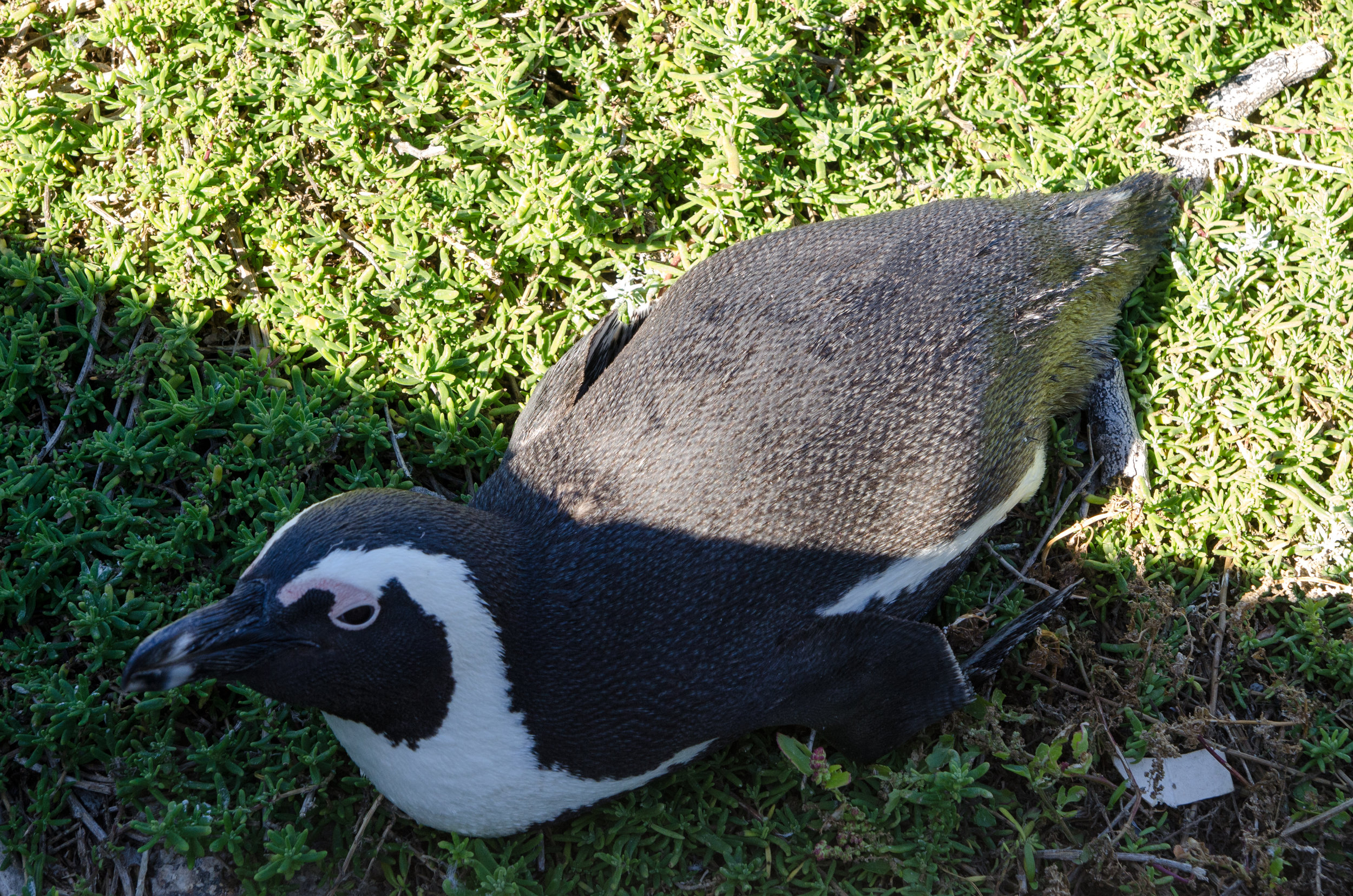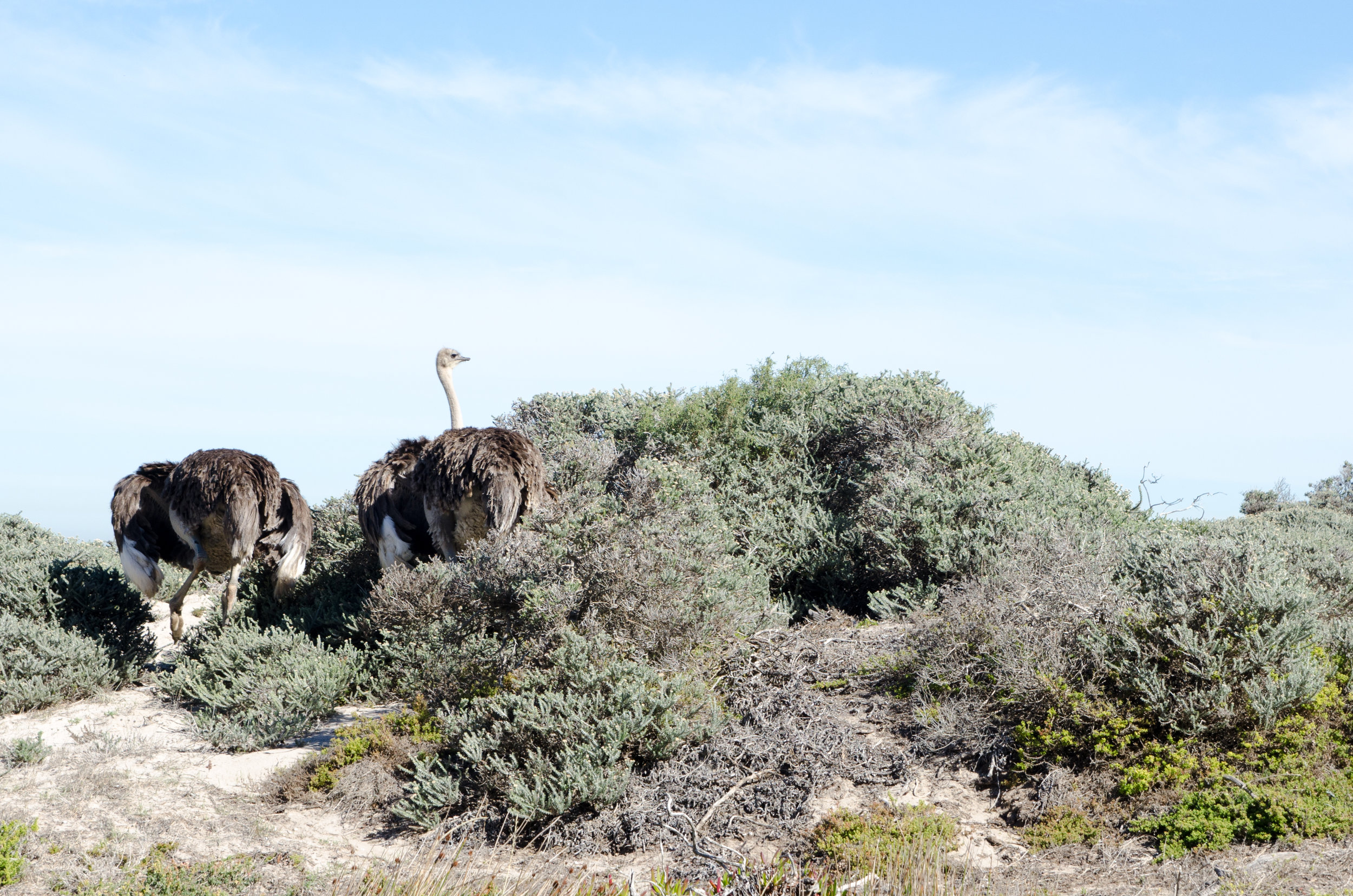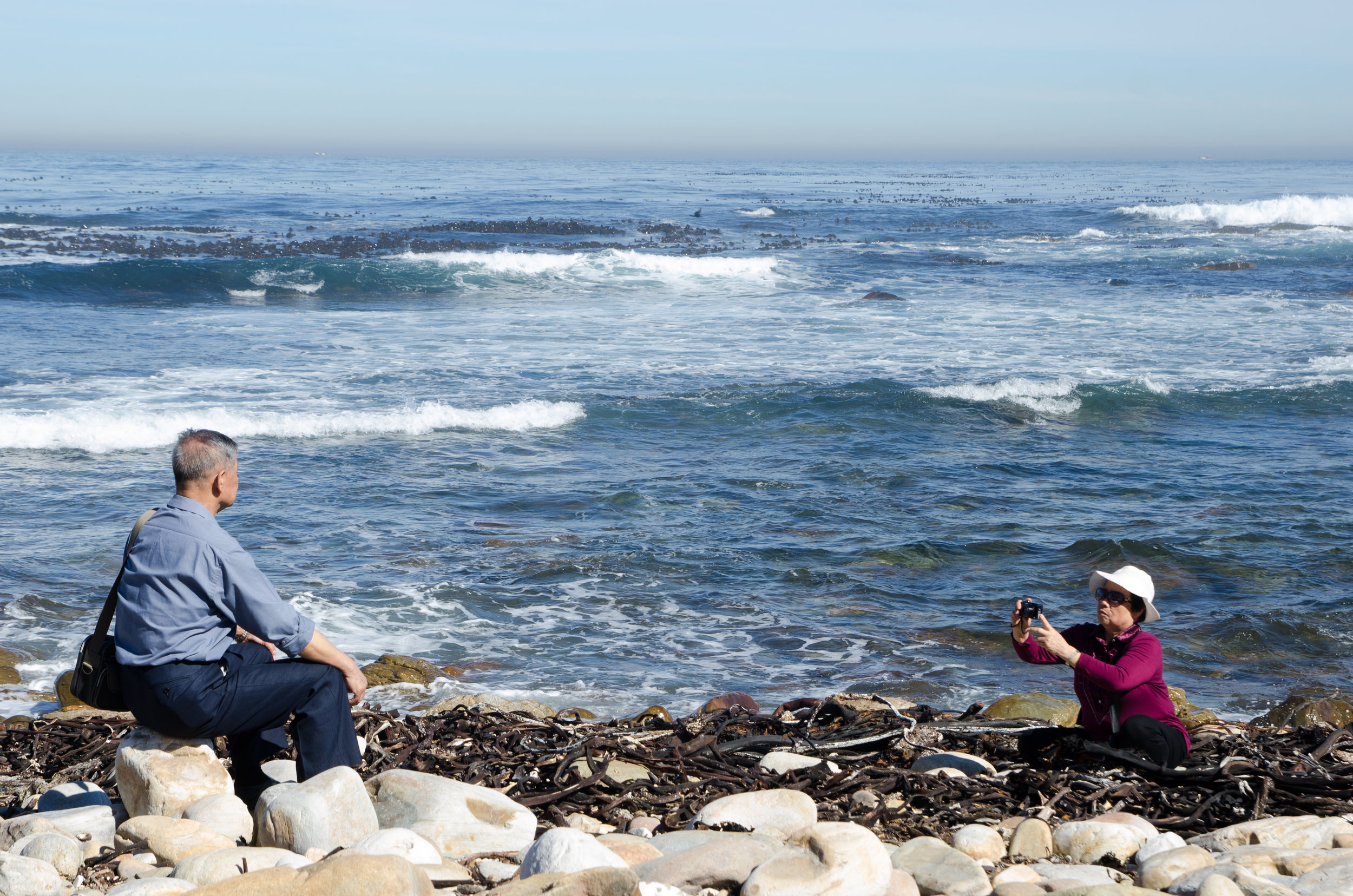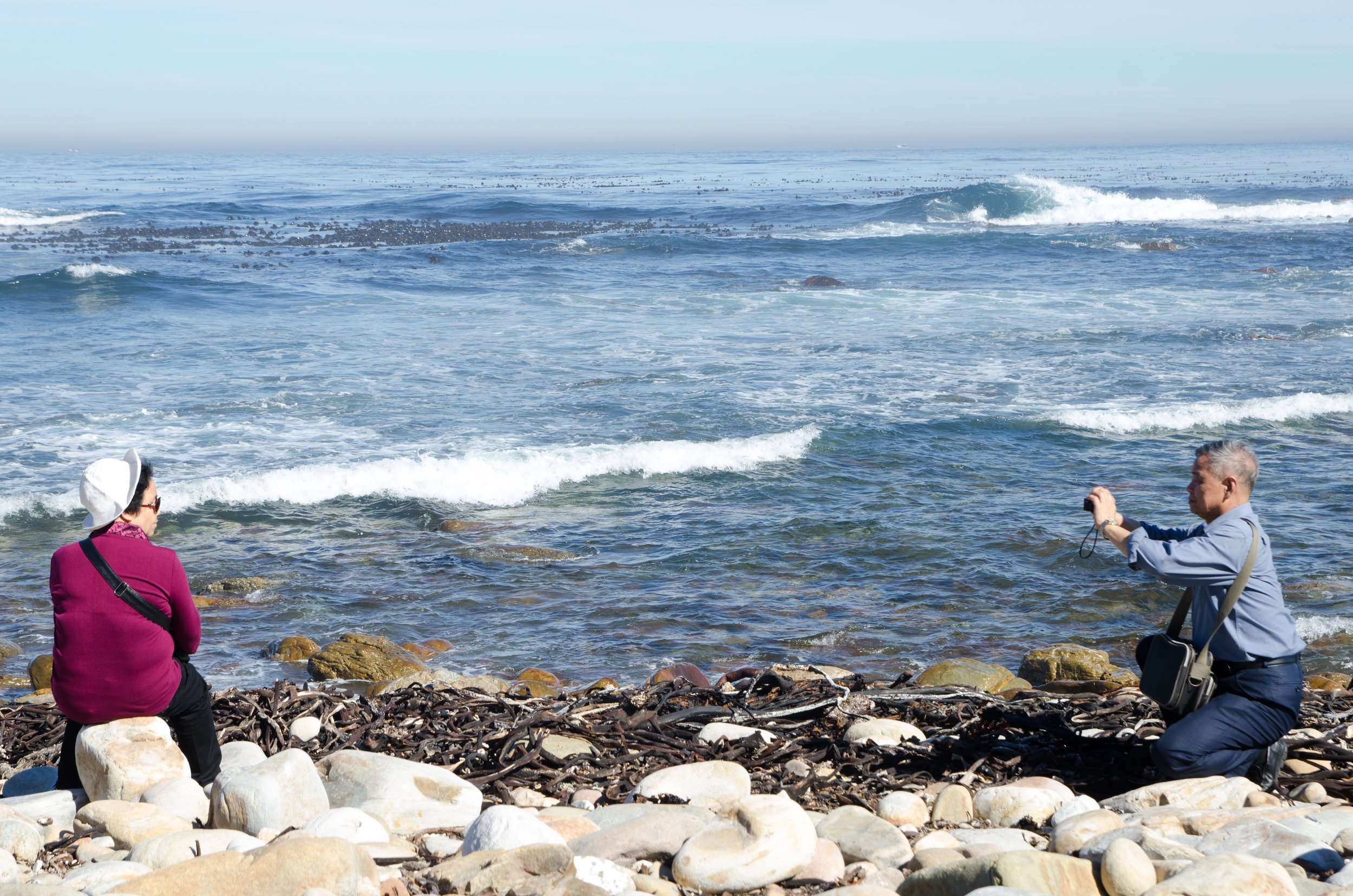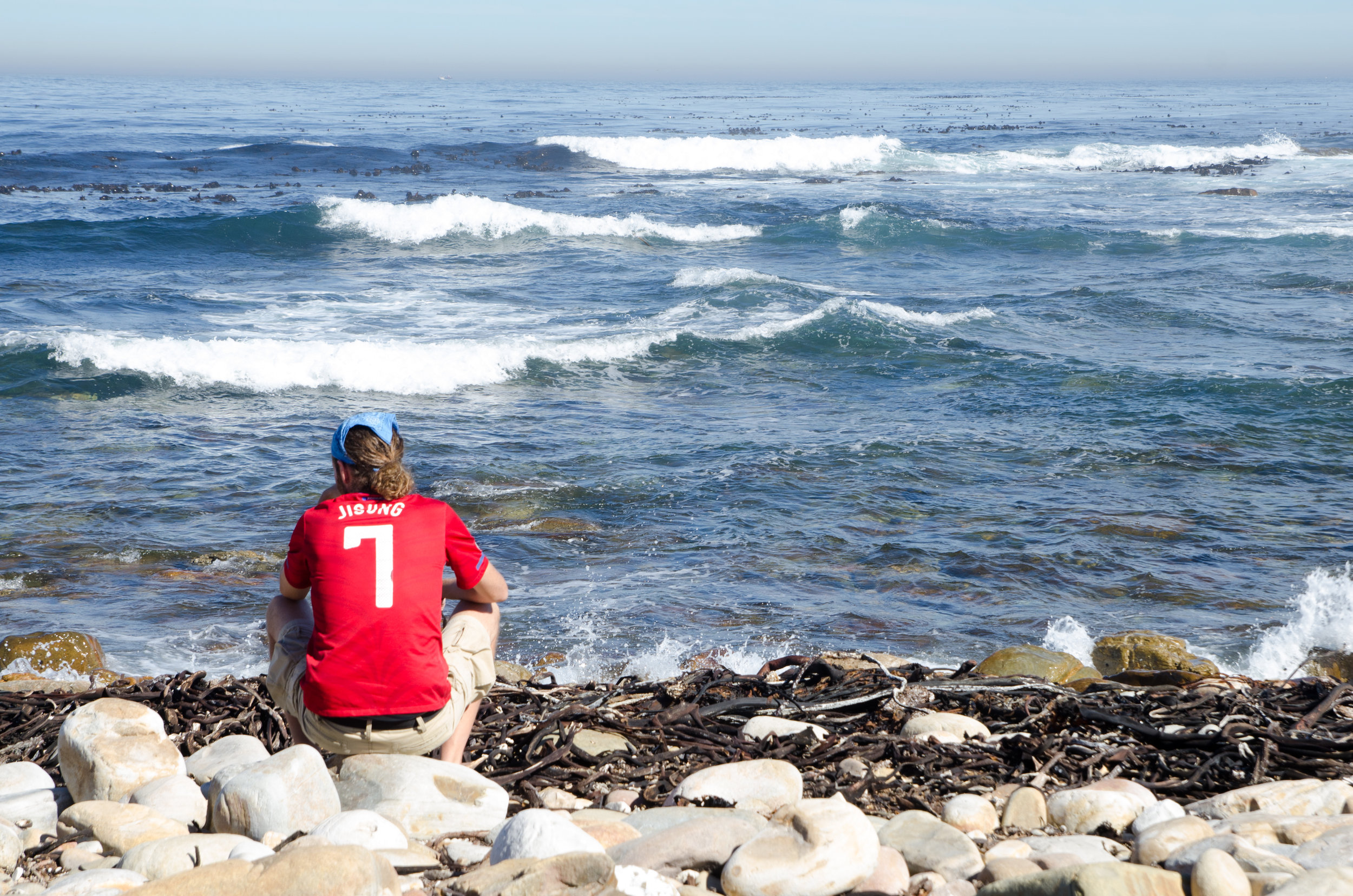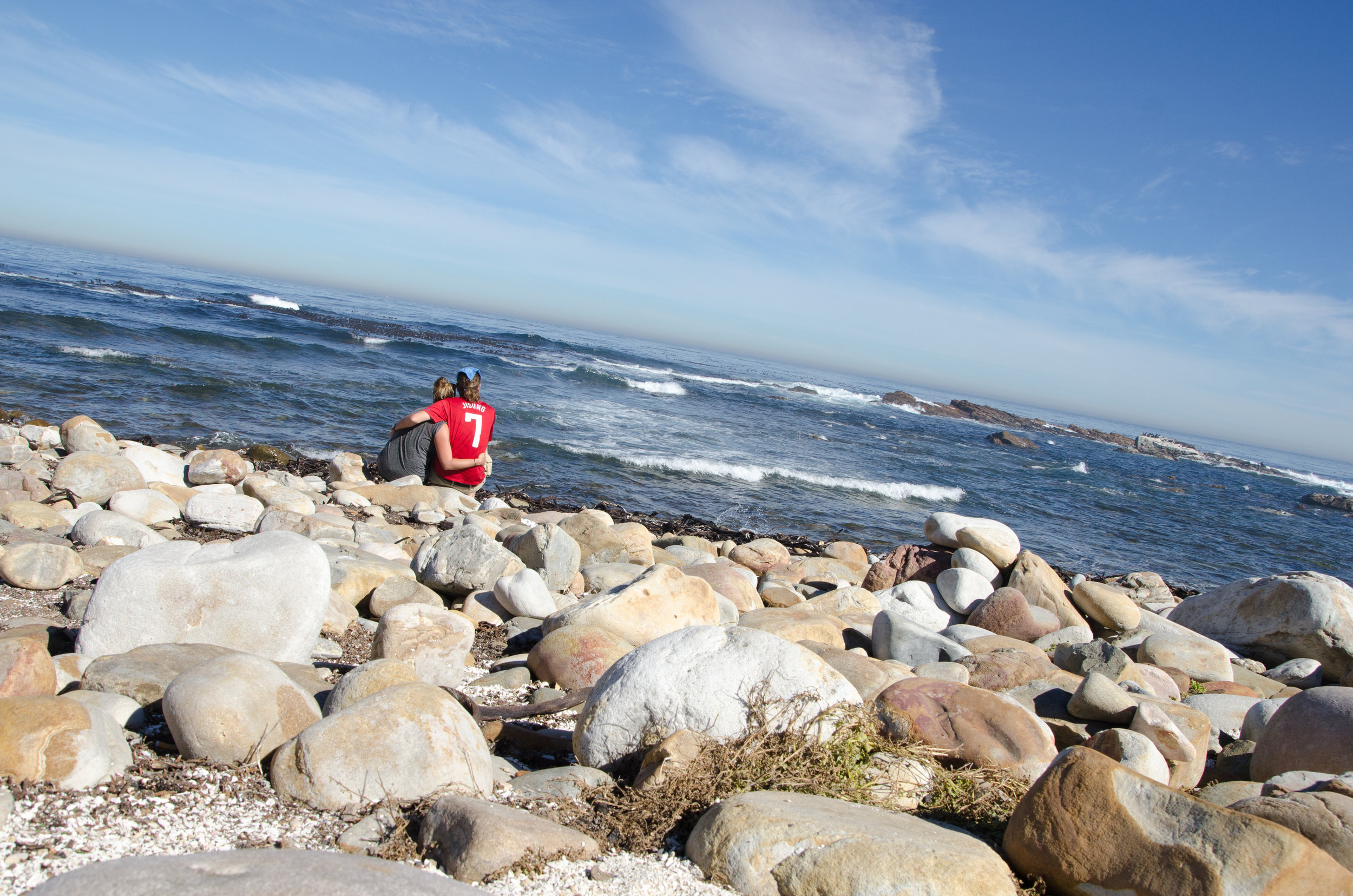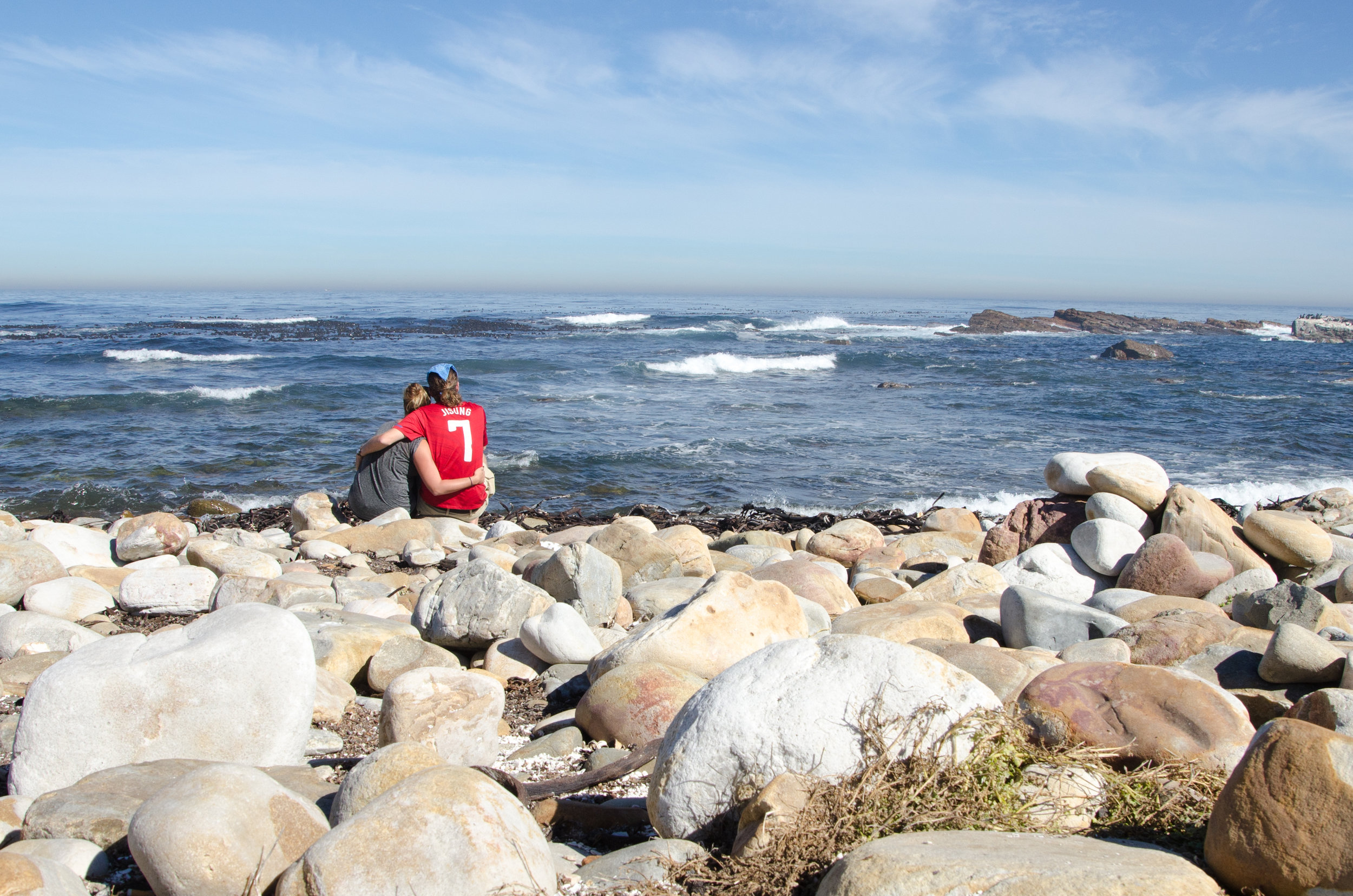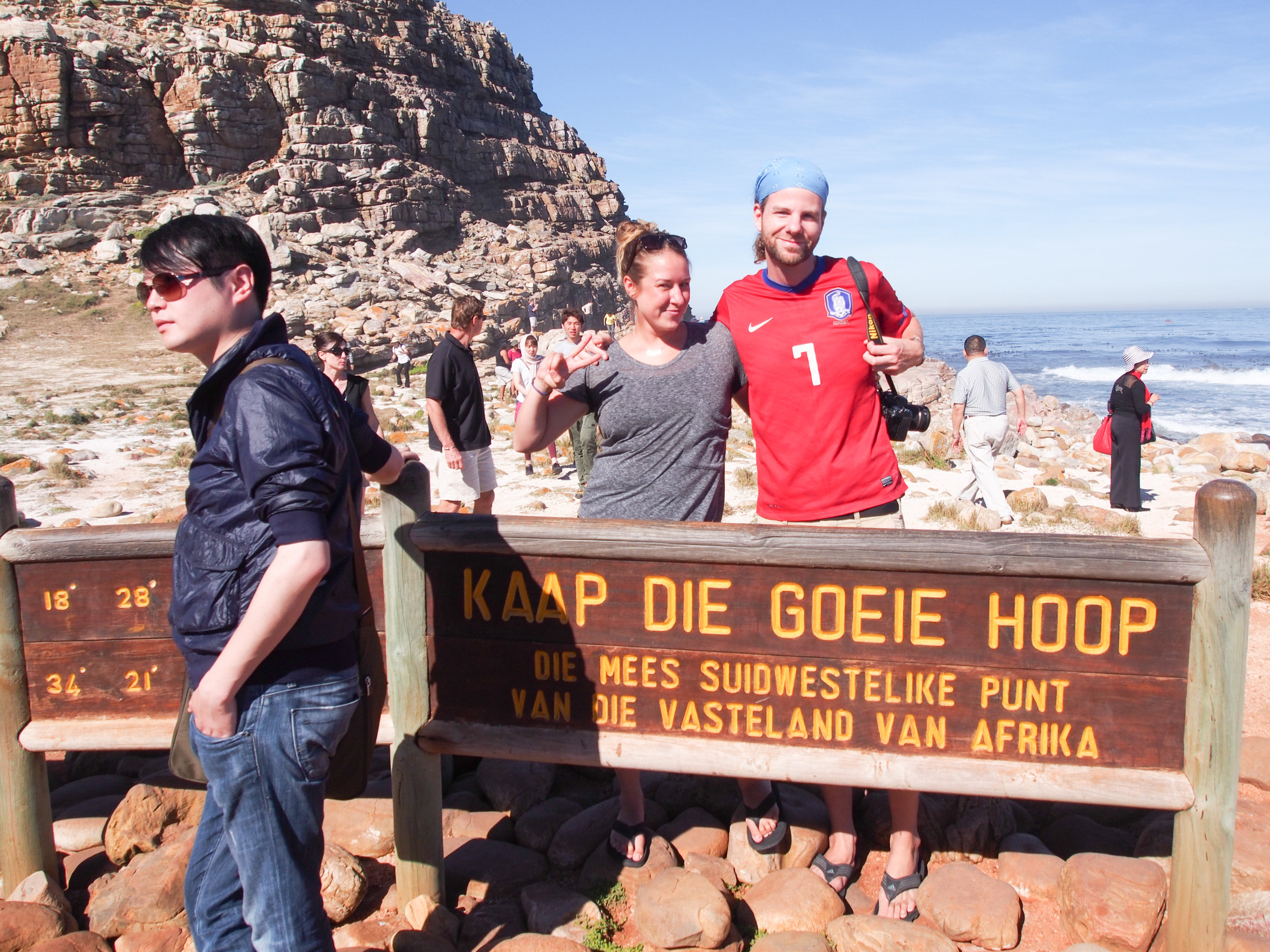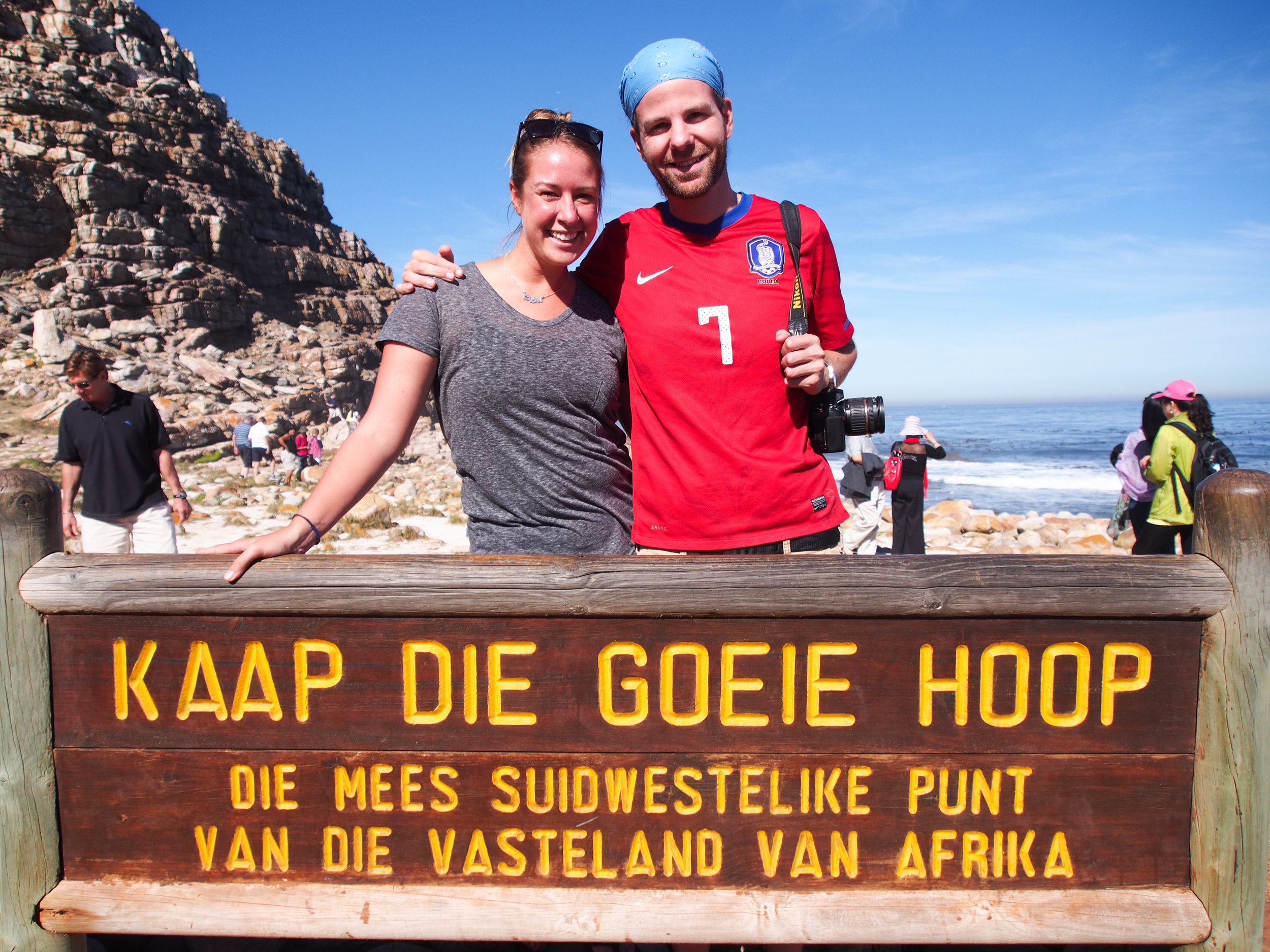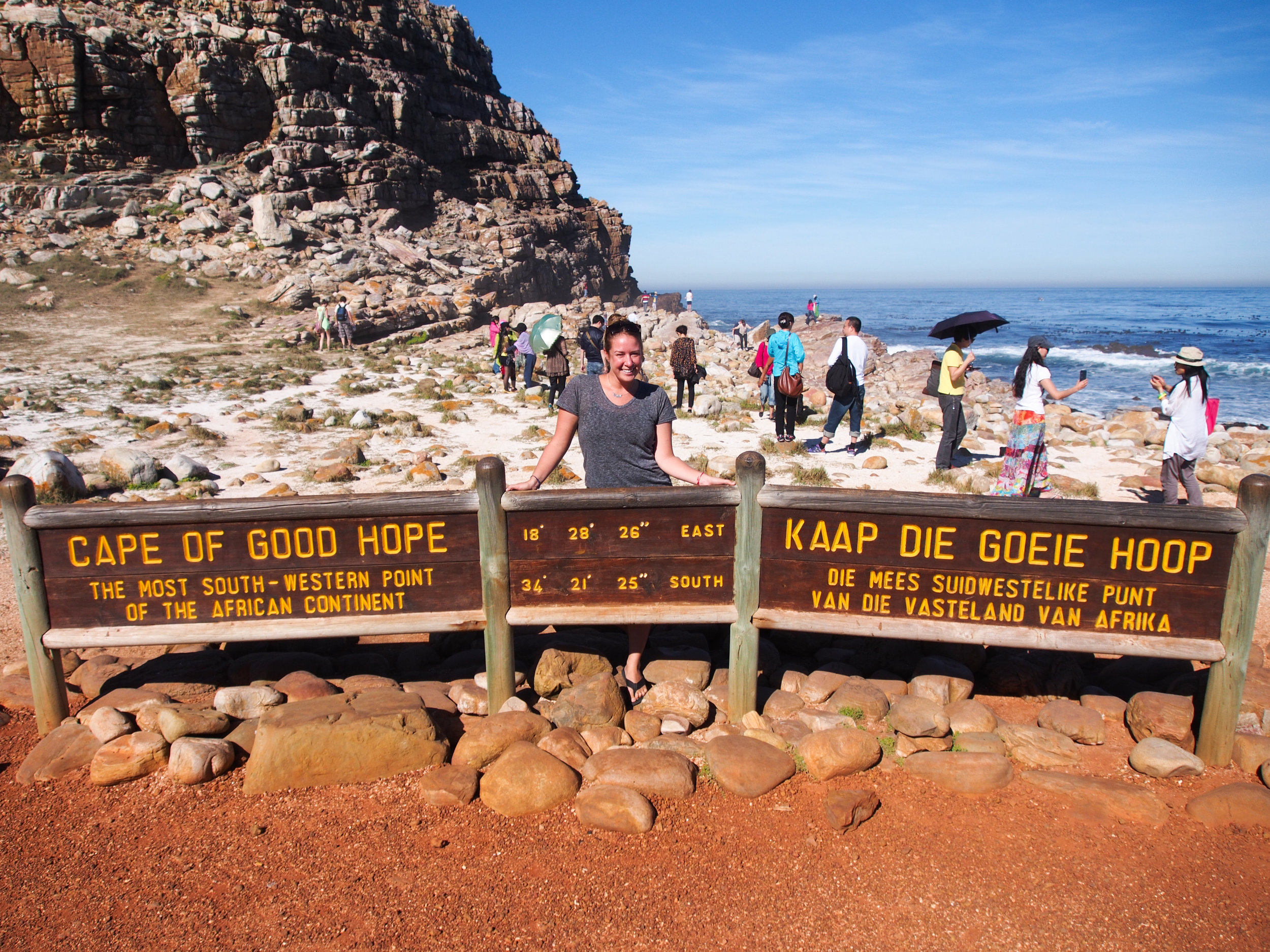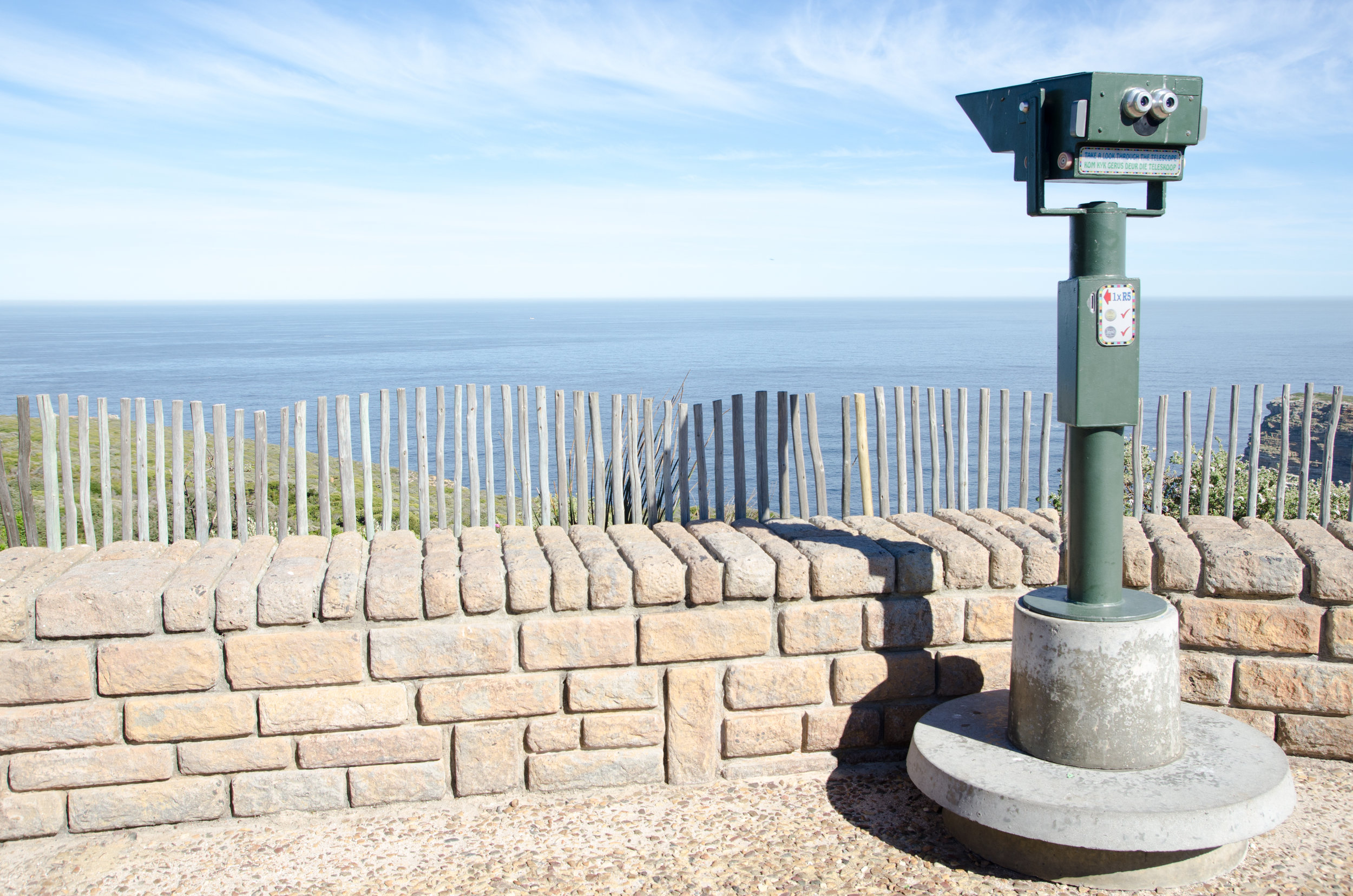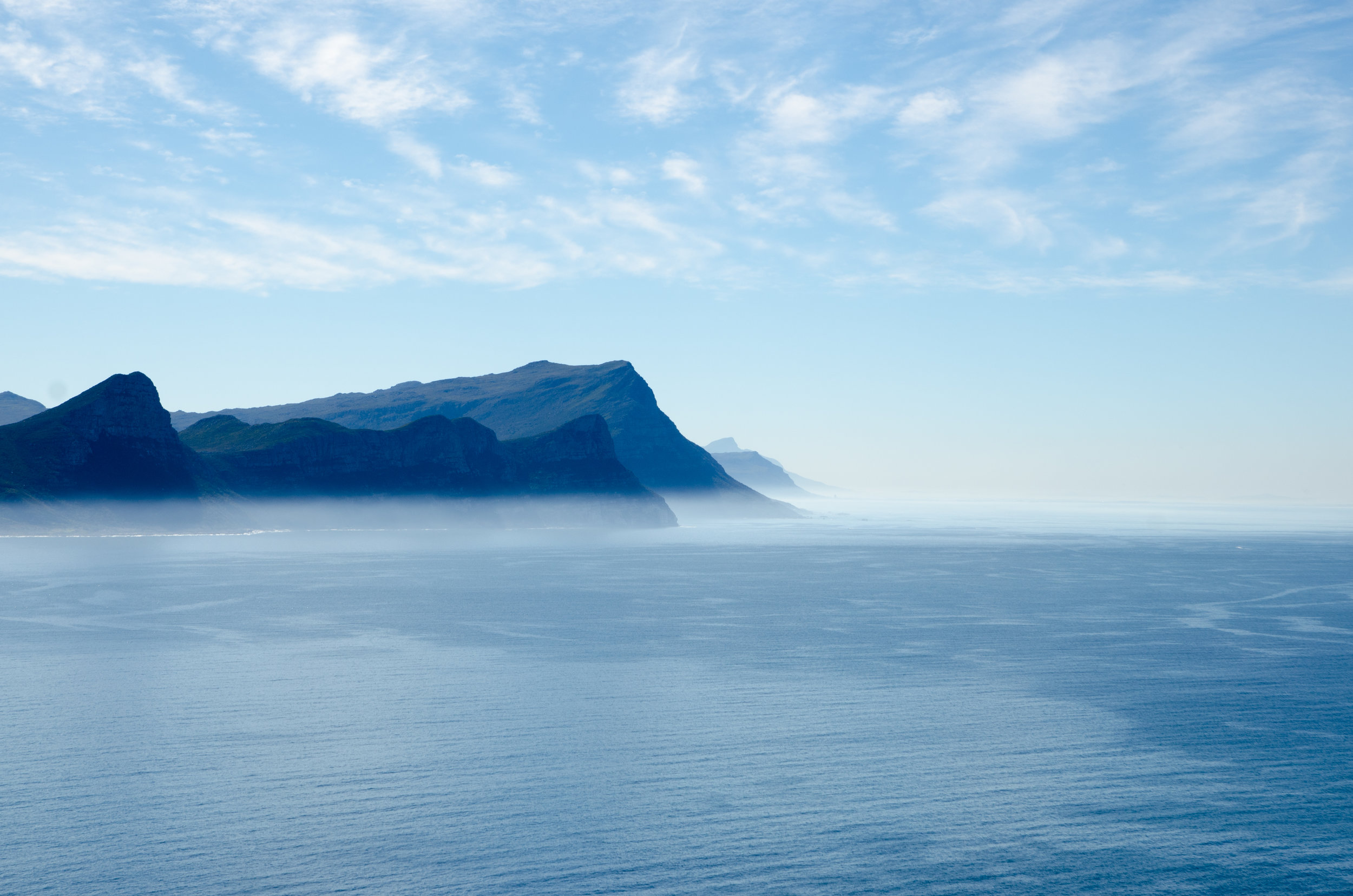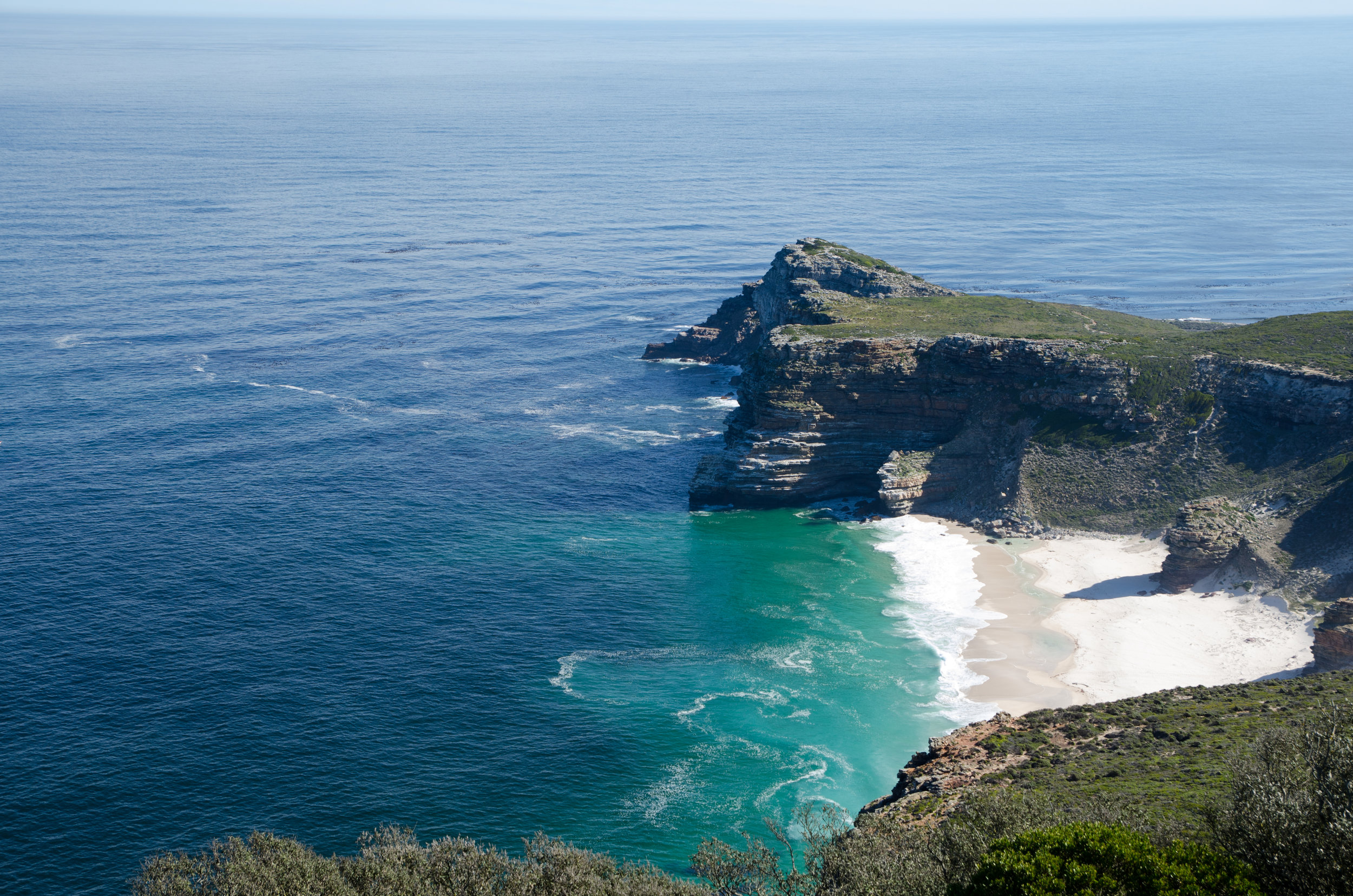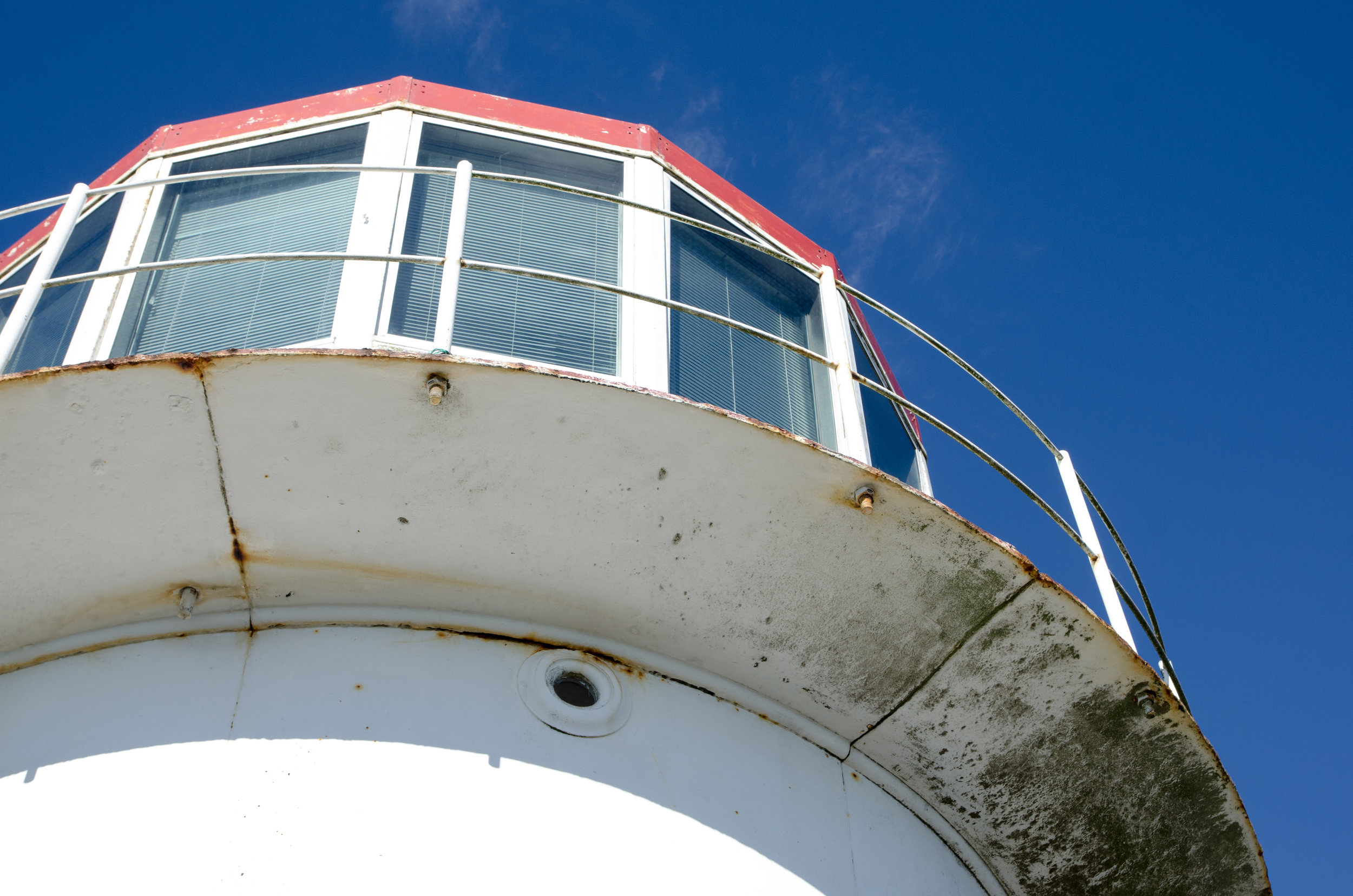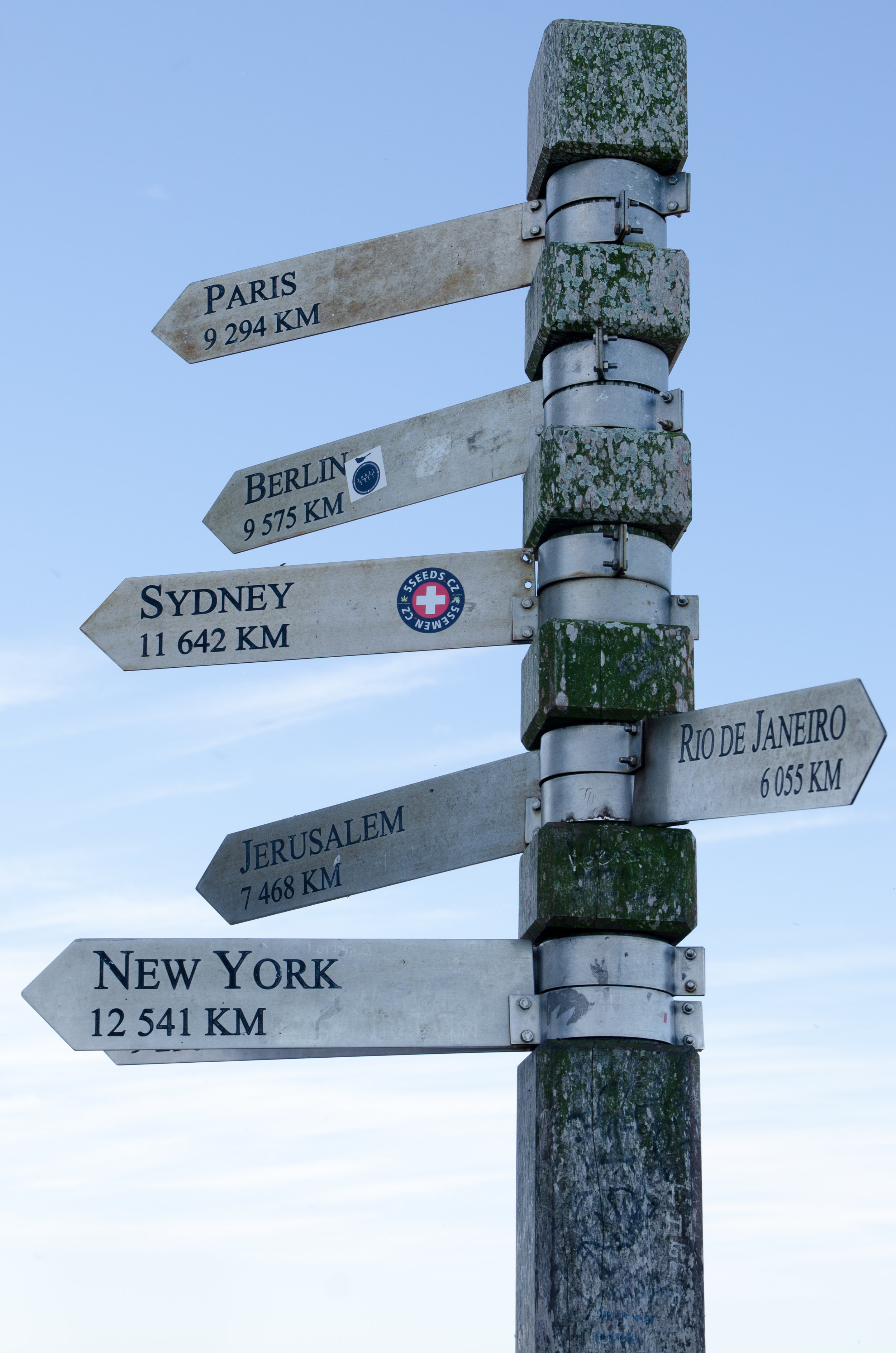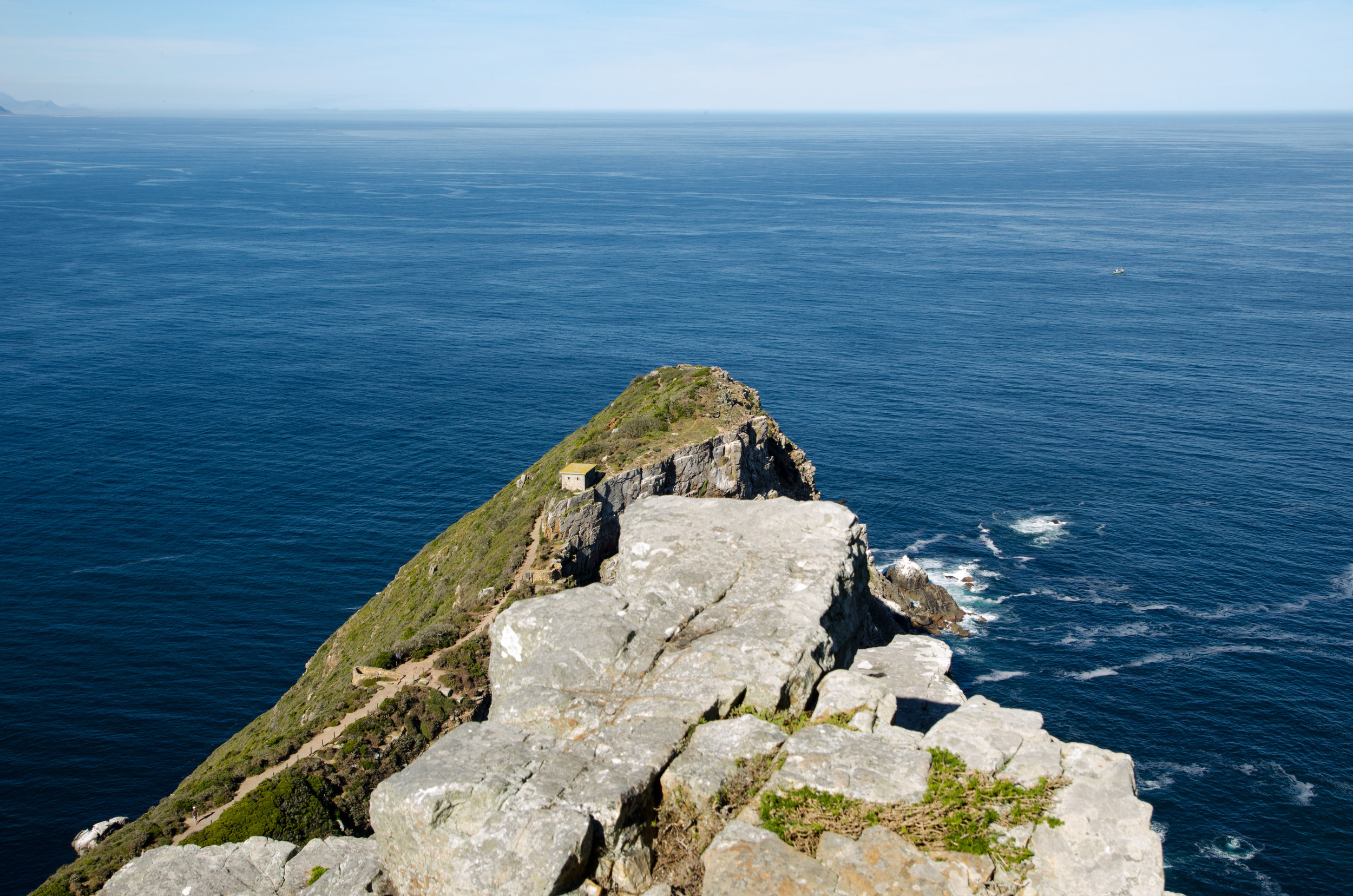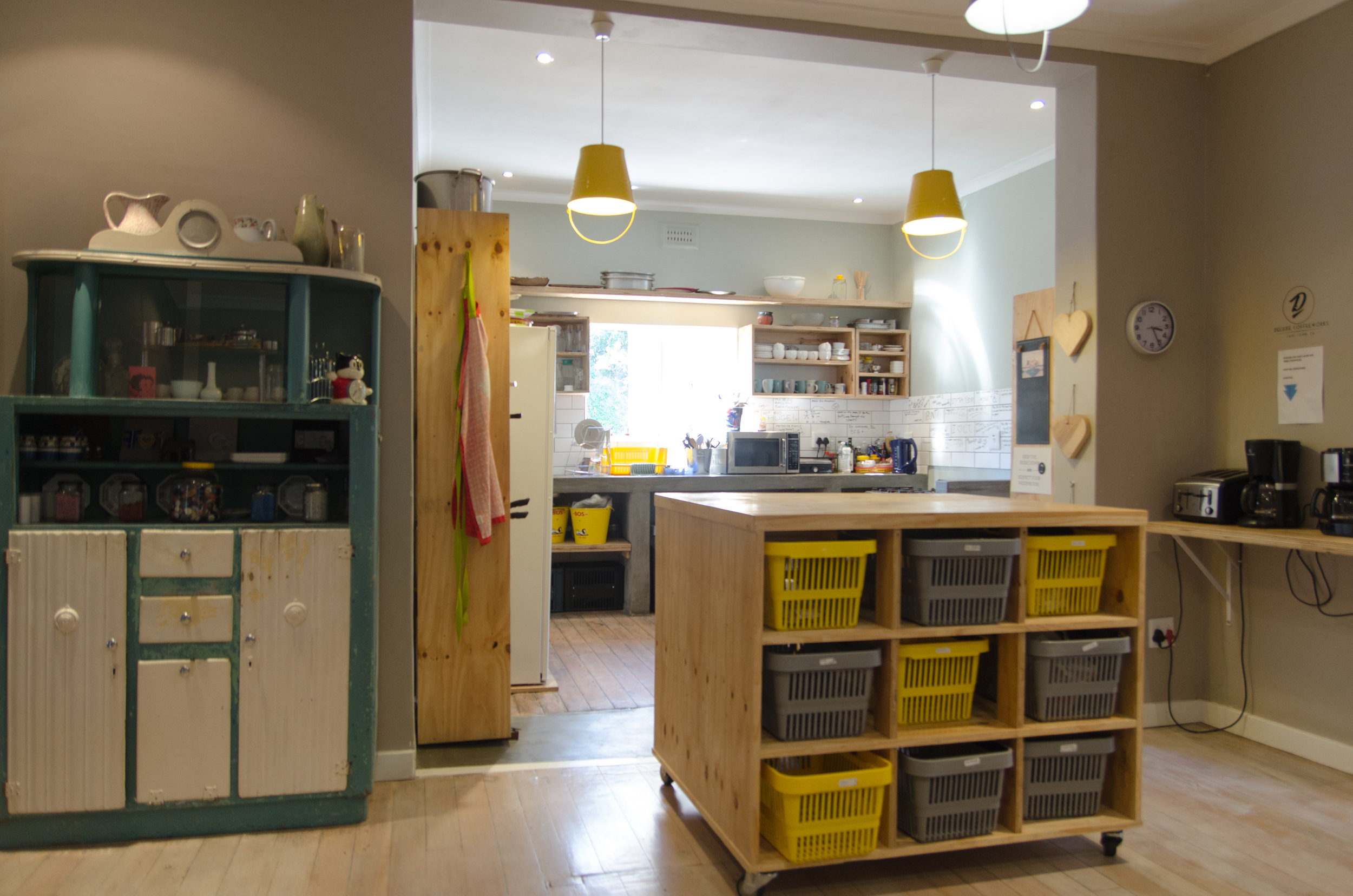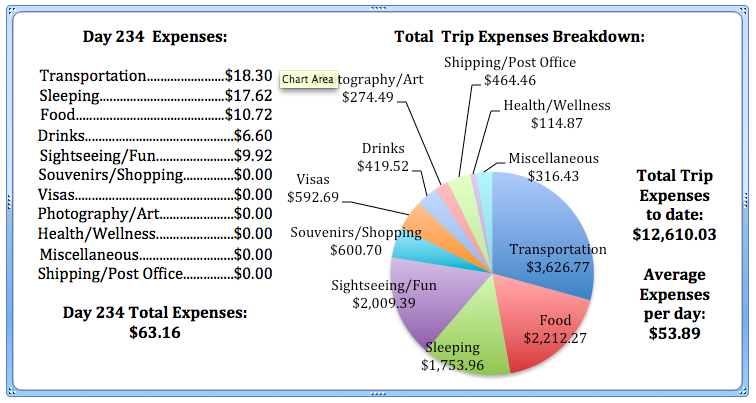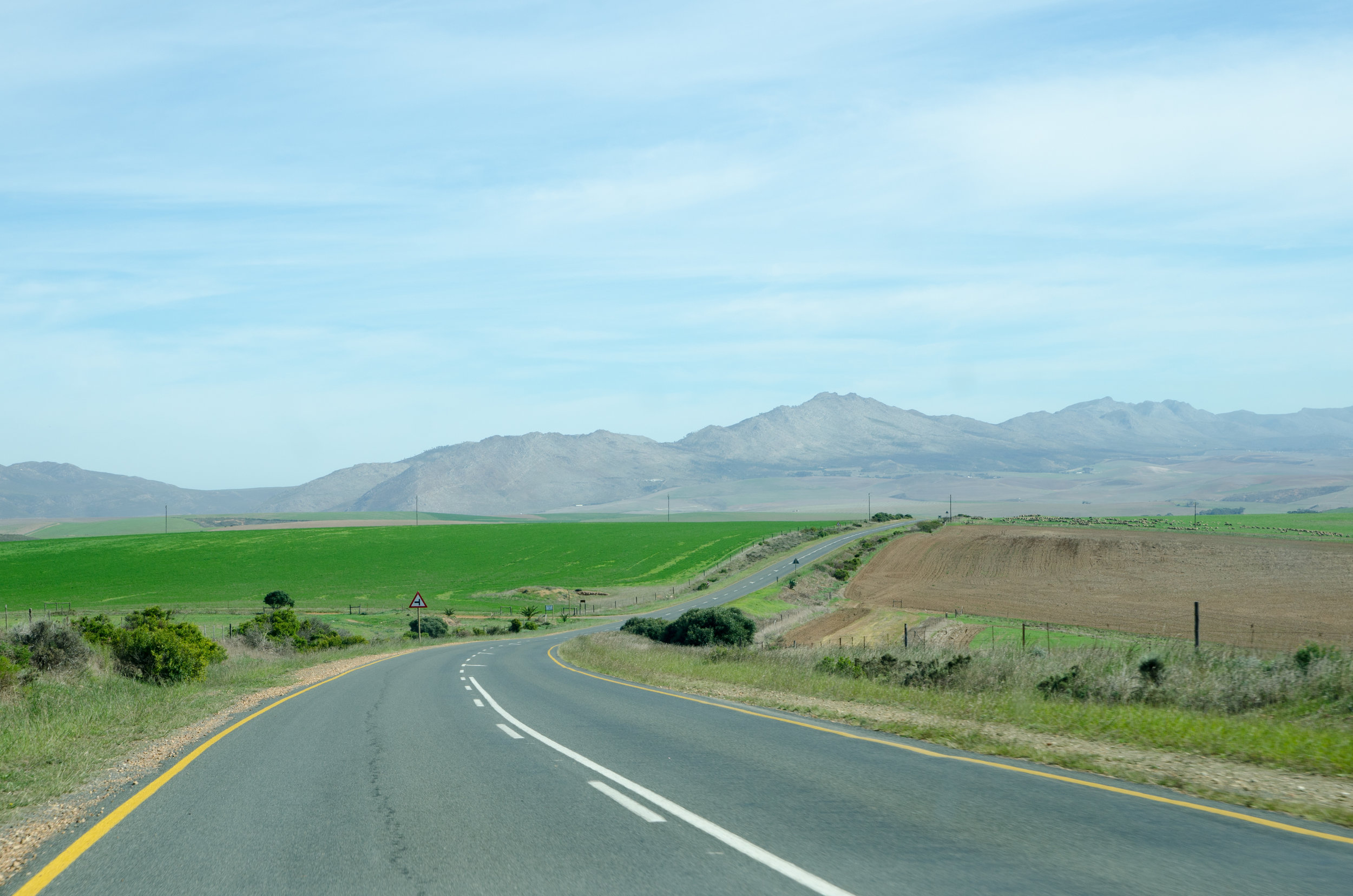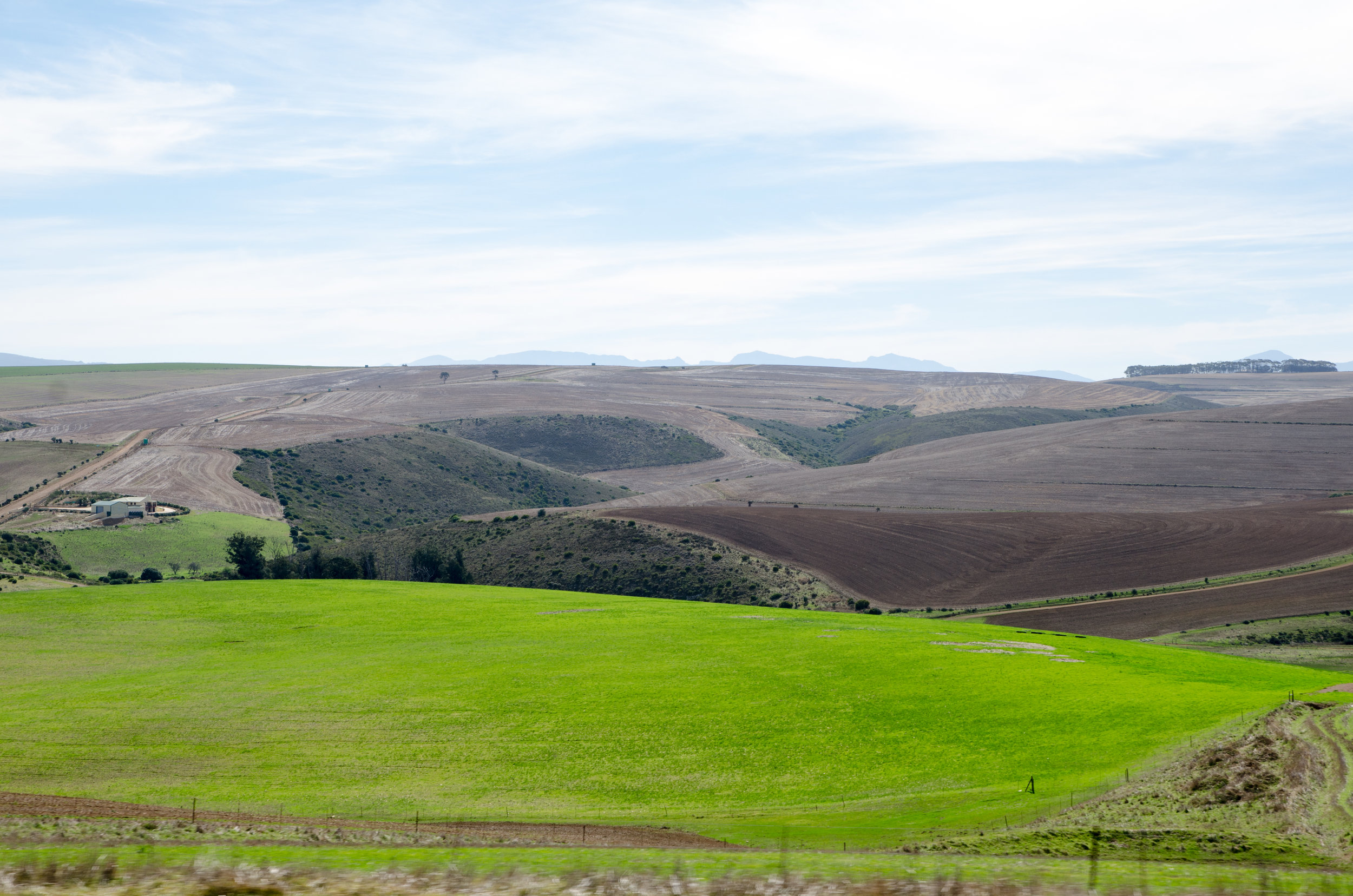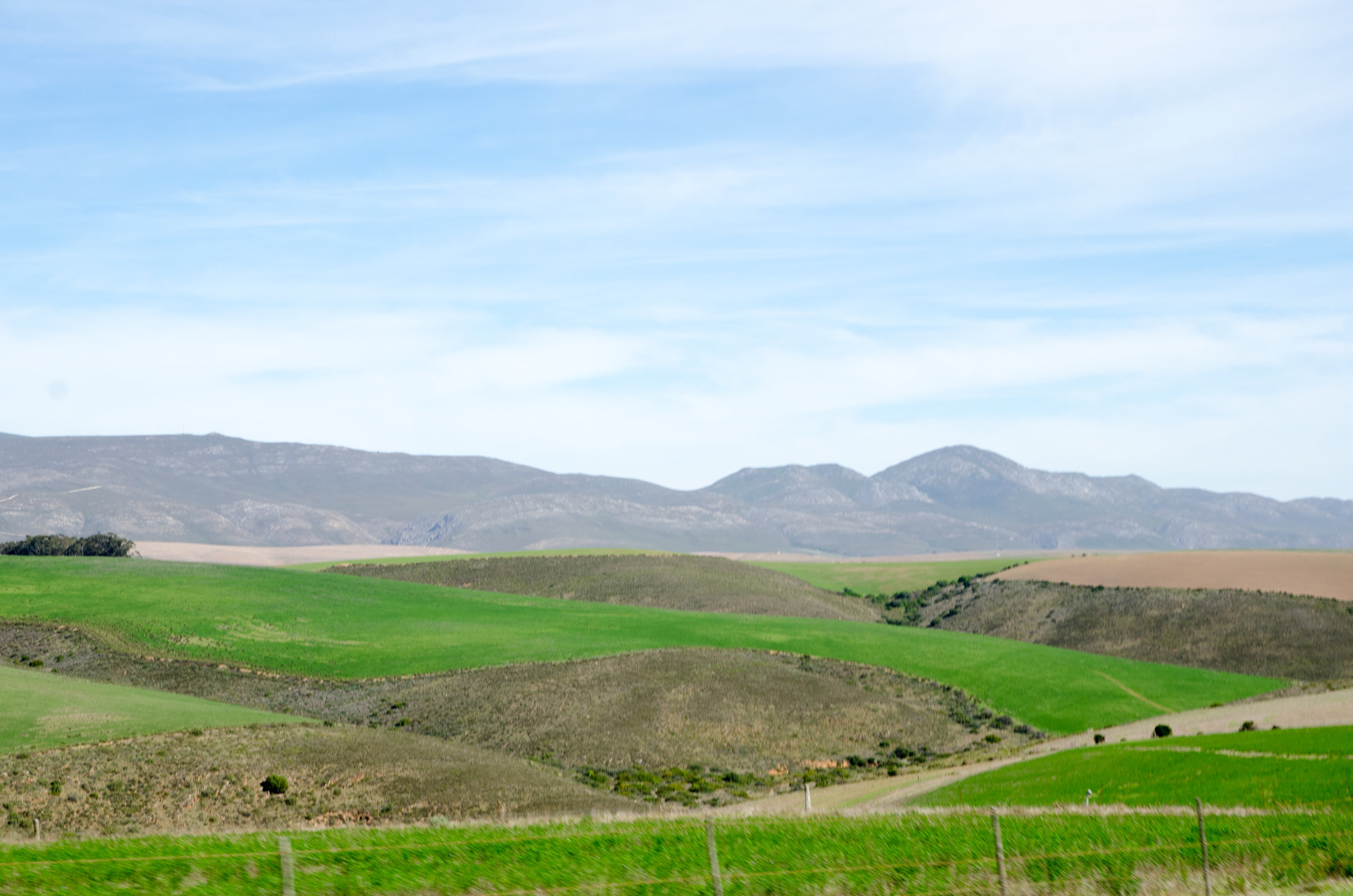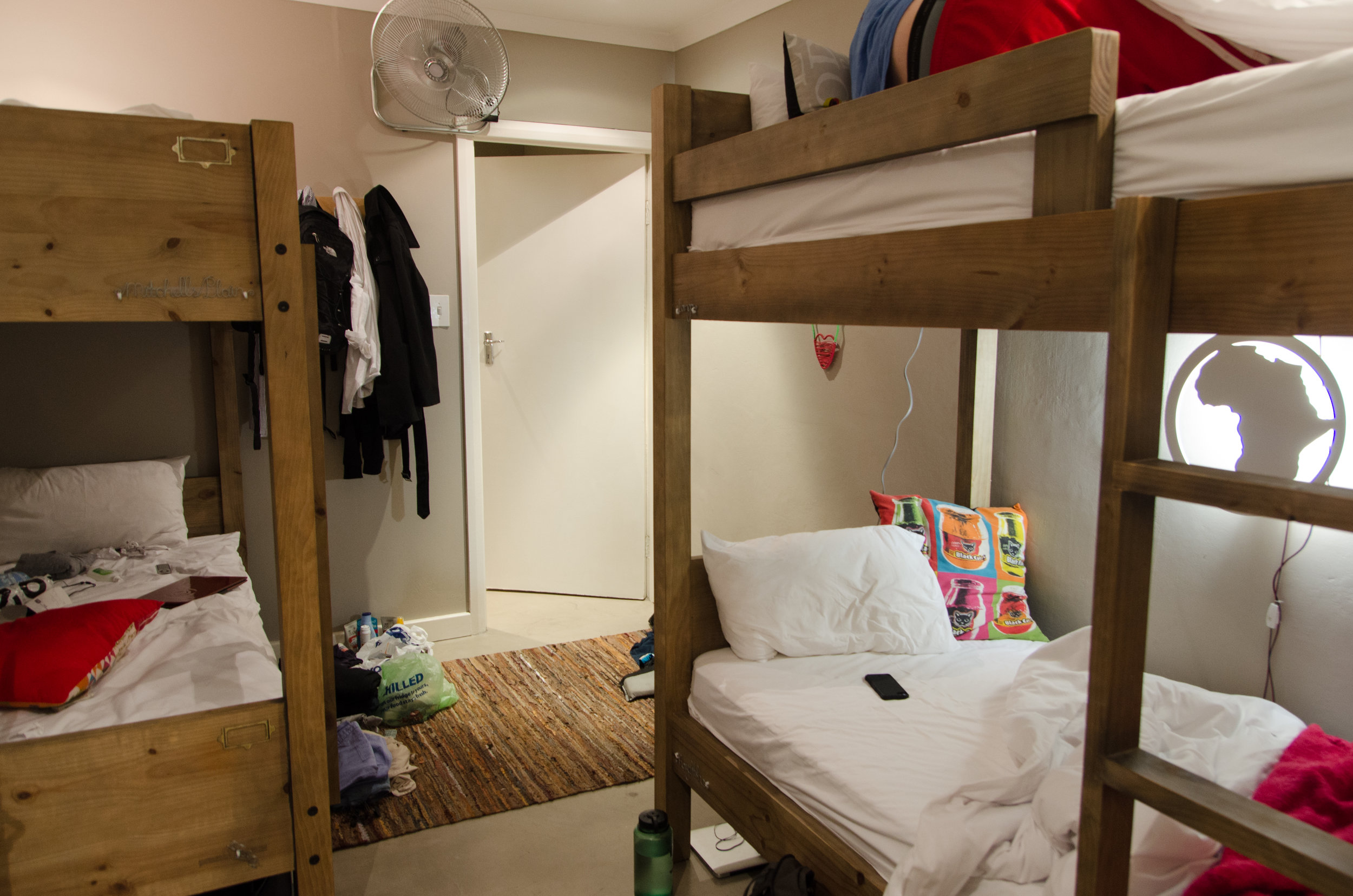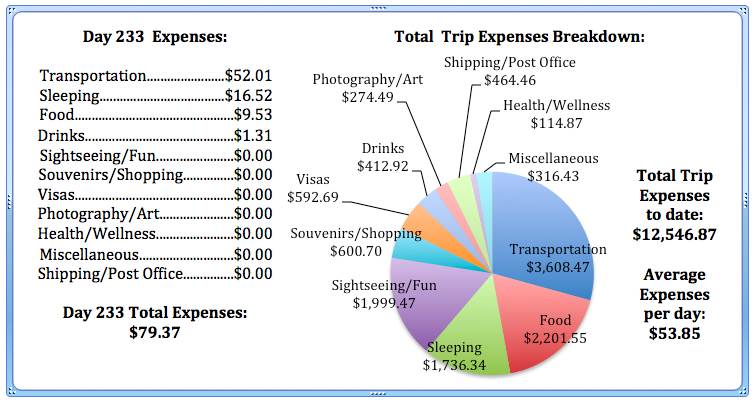Our trip began on the sun deck of a smaller speed boat to the island. We chatted with a fellow American, Gregg about his trip (a bucket-list trip for his father and a few of his friends) and exchanged stories from our own travels.
When we arrived on the island, we boarded a bus that came with a guide who told us about the island’s history. Early Dutch Settlers initially used the island as a prison, then for awhile it was a leper colony, an animal quarantine station, it was fortified during the Second World War, and around that time went back to being a prison.
We drove past a leper cemetery, and past the quarry where the prisoners worked while serving time. A pile of rocks was pointed out to us towards the entrance to the quarry. During a reunion visit, Mandela silently took a rock and laid it there. Other former prisoners followed suit. It’s now treated as a memorial to their imprisonment.
Three of the four post-apartheid South African presidents (even though one was not elected) were imprisoned for ten years on Robben Island. When we toured the prison, our guide was also a former prisoner. He described the prison to be more like a school. The more educated prisoners taught the lesser educated ones. There was always an open dialogue and many prisoners walked out with the equivalent of a university education because of it.
We were in a pretty large group, perhaps about forty people or so. I often trailed behind so I could take pictures of the prison without anyone lurking in my shot. Because of this, I couldn’t always hear what the former prisoner had to say. I also couldn’t stop wondering what would make him return to the prison to give tours after being imprisoned for ten (maybe more? maybe less) years there. I don’t think I could do it. Below is Nelson Mandela’s window out to the courtyard, the interior of his cell, and the hallway of his prison wing.
Prison has to be bad. Twenty seven years of it can’t be easy. But we’ve seen quite a bit of bad things on this trip (and for me, even more in past travels). I was kinda picturing something along the lines of the slave quarters that we visited on Zanzibar, a type of prison where slaves were kept before being sold at the market. Obviously, it was a lot longer time ago, but it was the most recent type of prison, so that’s what came to my mind when we arrived on Robben Island. I’m also rather sure that an empty, clean facility now, several years later is much more attractive than it would have looked back when there were prisoners. But, I couldn’t help thinking that their conditions really didn’t look that bad. Again, this is coming from someone who in the back of her mind was thinking back on the Vietnam War Museum in Saigon, or the Killing Fields in Cambodia, or even the daily poverty in India and in some of Africa…
At this point, as I was photographing the empty hallway, I realized I could no longer hear the tour group. I had passed the door to get out of the prison wing and started to panic slightly that I might be lost inside. This panic was equal annoyance at myself for needing to lag behind to take a few photographs.
“Great.” I thought. “I’m lost. in a prison.” I rolled my eyes at the thought and tried to find my way out. I found one door that led to yet another courtyard. I tried to listen for the group. I still couldn’t hear them. I opted for another door that looked as if it continued to lead outside, rather than back in. I was in Another courtyard, but this time I could hear voices. I quickened my pace and found a few other stragglers talking to our guide, and Andrew waiting with an expression I’m all too familiar with. It’s the face he makes when he’s lost track of me and he doesn’t know whether to be concerned or annoyed. I popped out of the door and told him I got lost. He rolled his eyes, none too surprised.
Back on a different (bigger, less charming) ferry boat back to Cape Town, we chatted more with our new friend, Gregg. He invited us out to lunch with his father and his father’s friends. Not yet sure what we were going to do with the rest of our day, we accepted and had a really lovely lunch! Gregg warned us that we would have to field a lot of questions and we’d probably have to entertain his company, but we enjoyed it and had to laugh when they expressed gratitude no one in their family was traveling for as long and to as many places as we were.
“What do your parents think?” They demanded. We laughed and explained, after living abroad for so long, they were probably used to it. We told them about couch-surfing and shared our funnier and scarier moments of the trip, and then thanked them over and over again for lunch. (Really, thanks again, Gregg and family!) I cannot express how much of this trip is owed to generous people we have met along the way. A free night’s stay, lunch, a drink, even to borrow a cell phone every now and then. I need to make a “Thank You!” page just to give you a glimpse of how fortunate we’ve been to come across so many wonderful people around the world.


